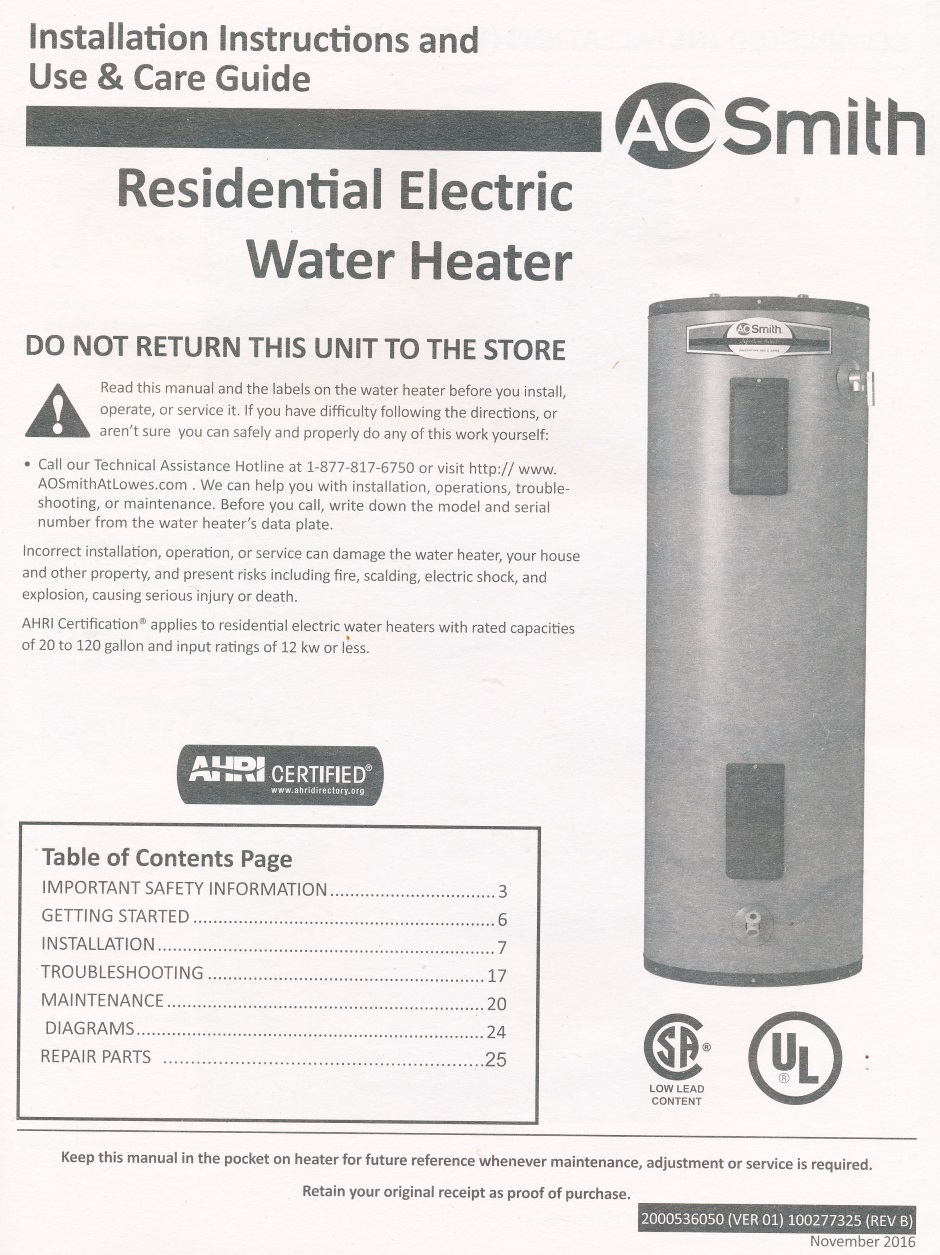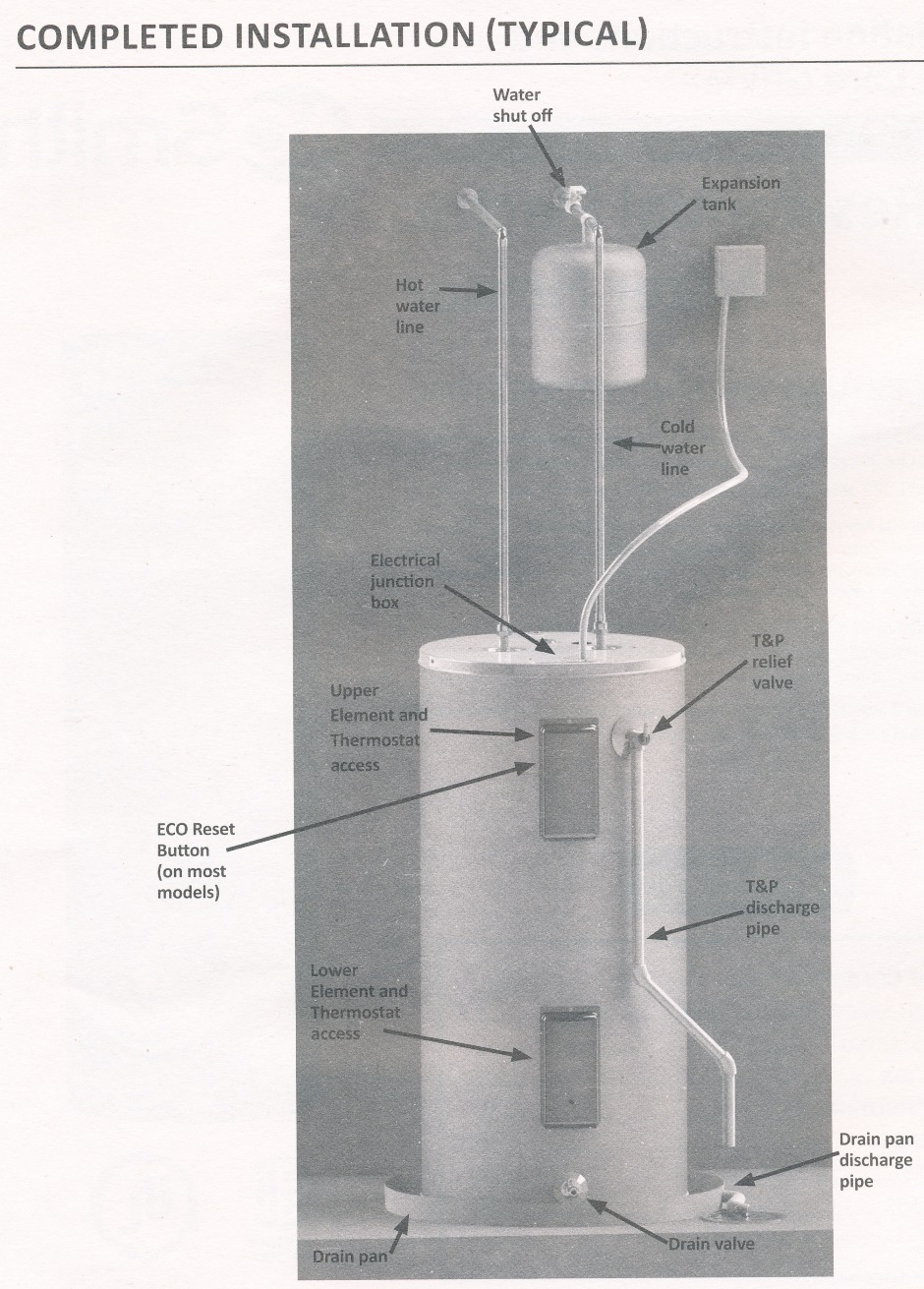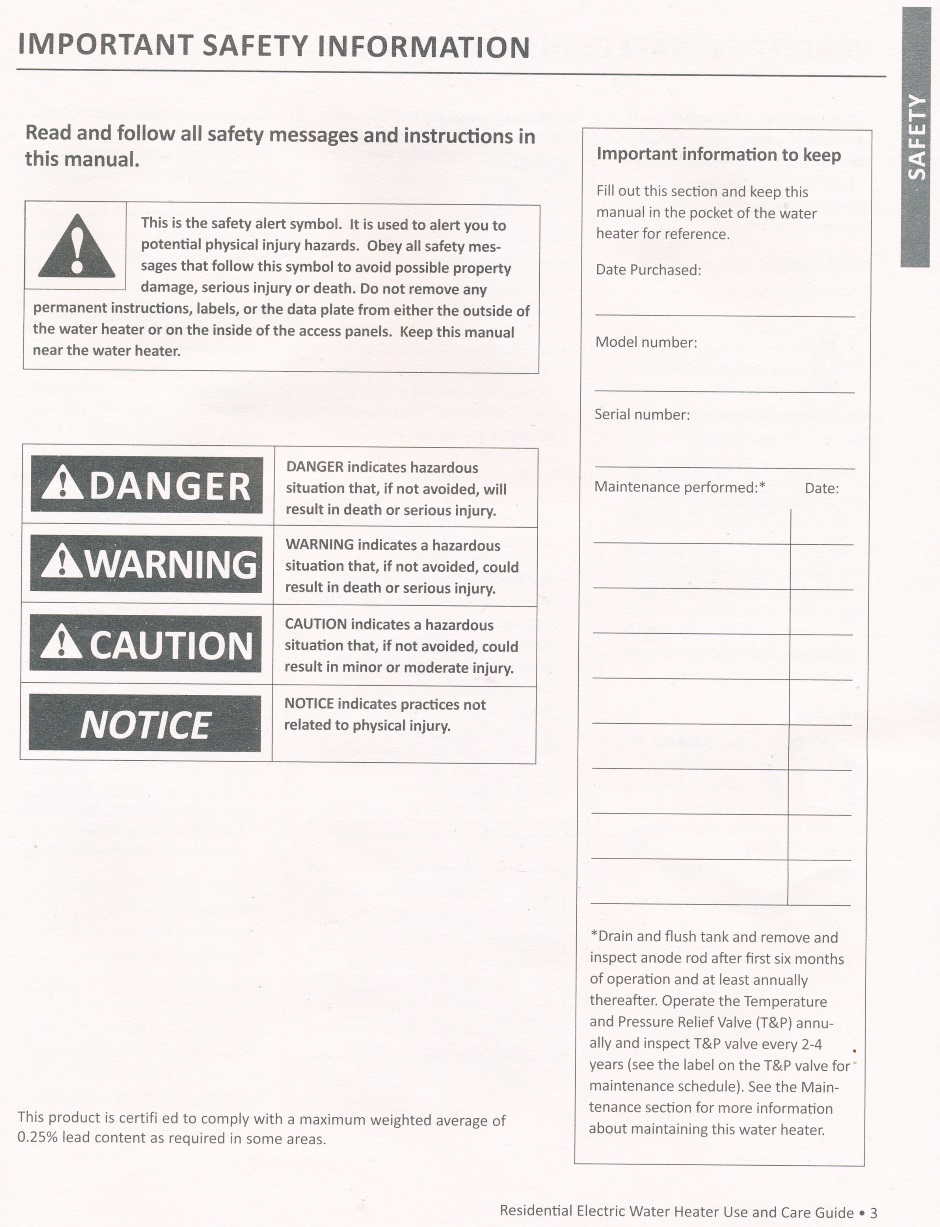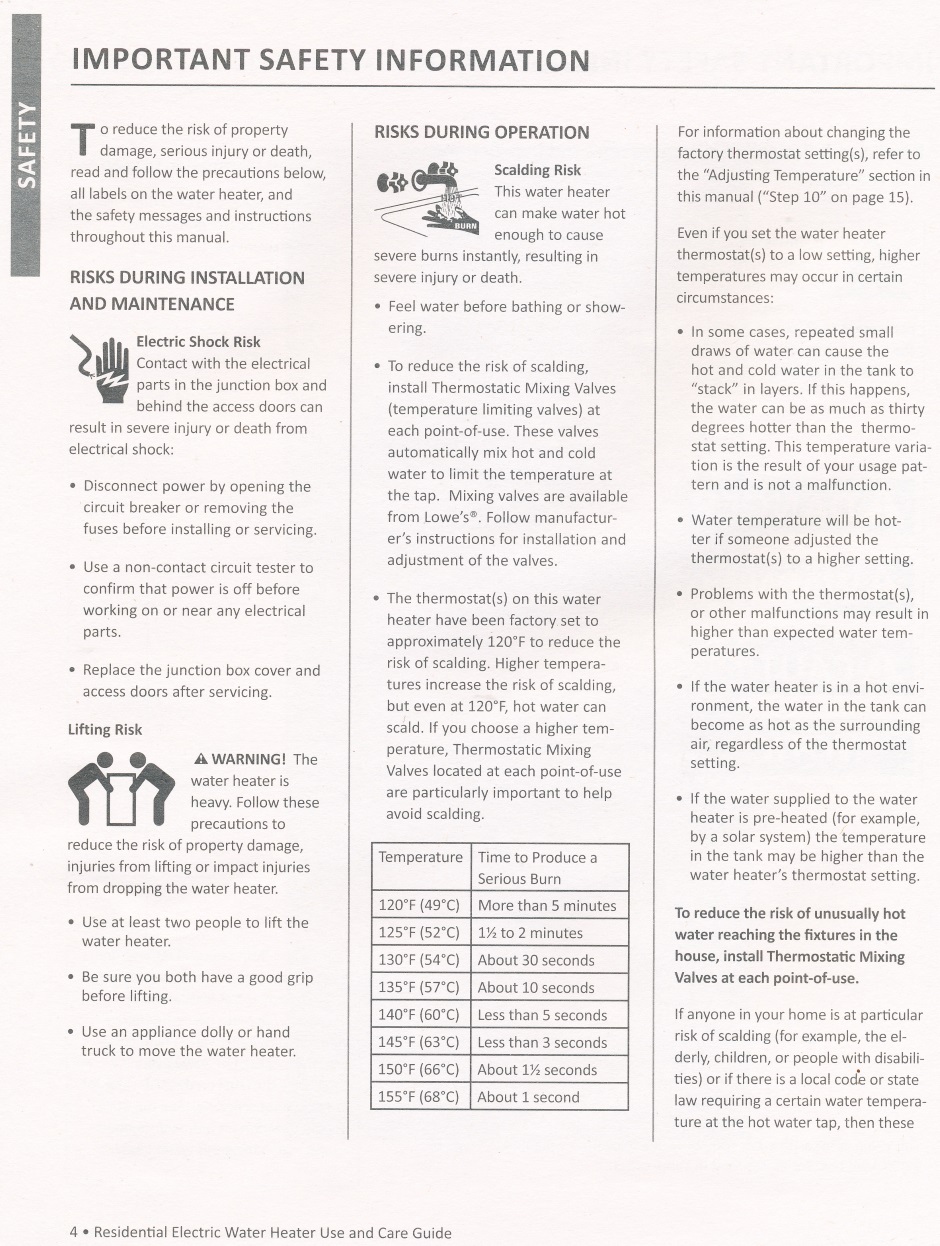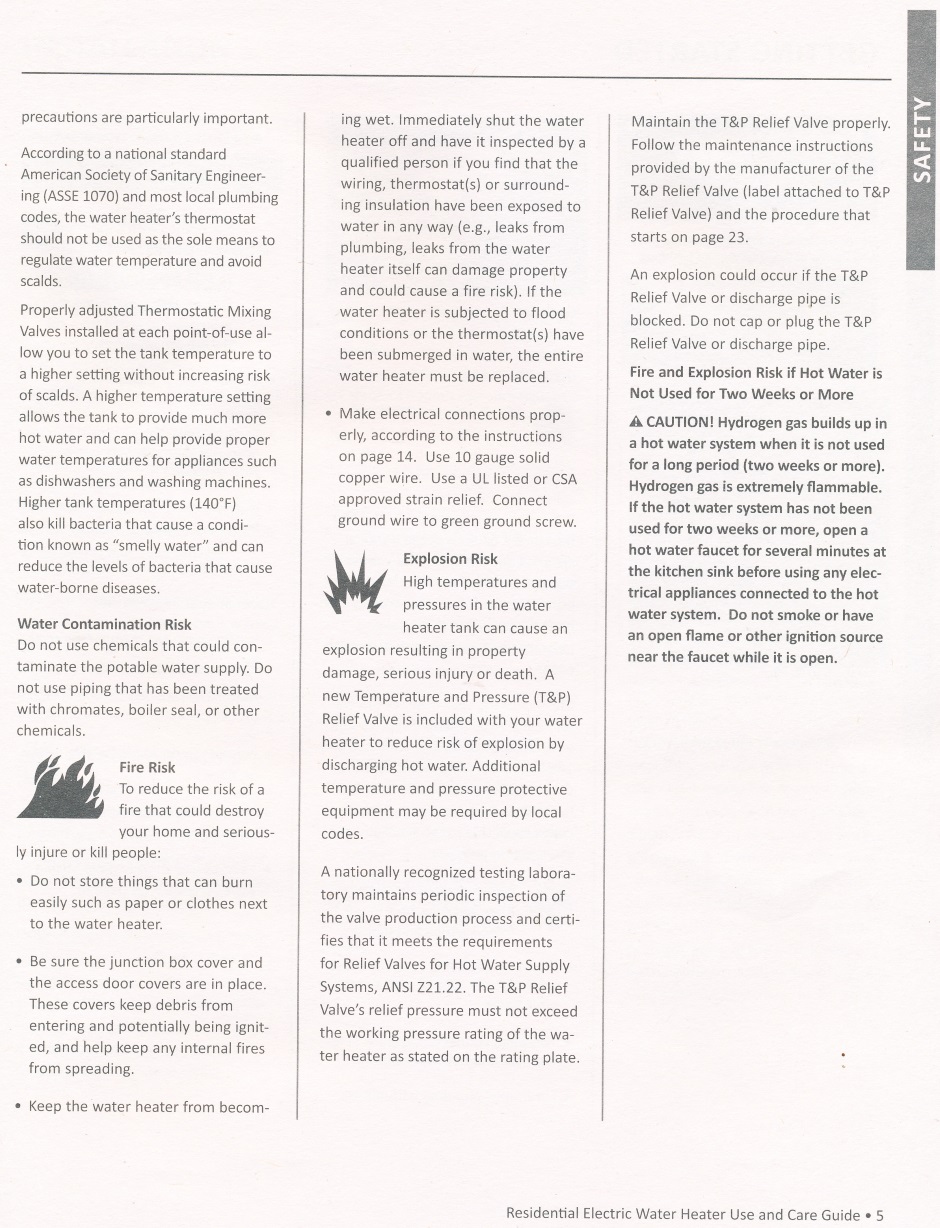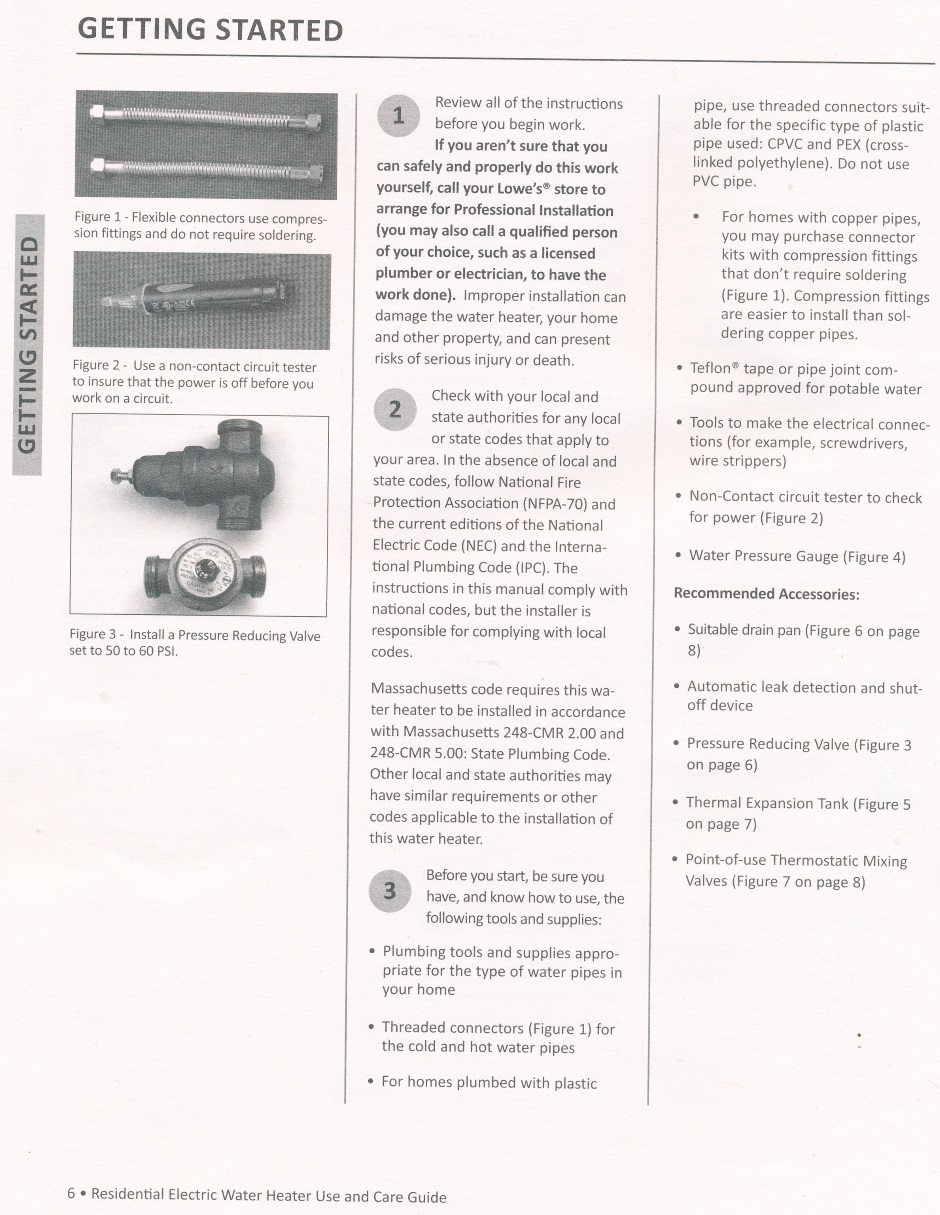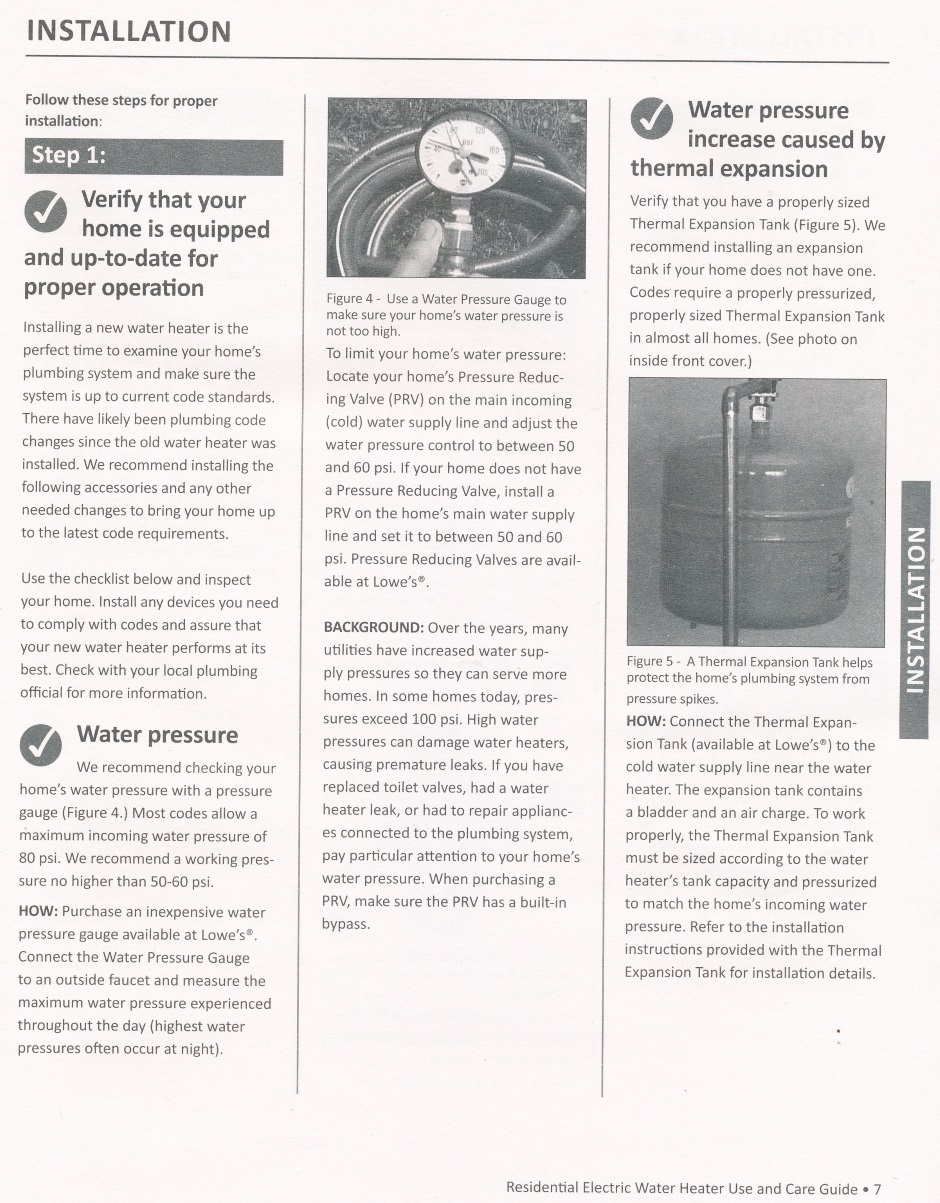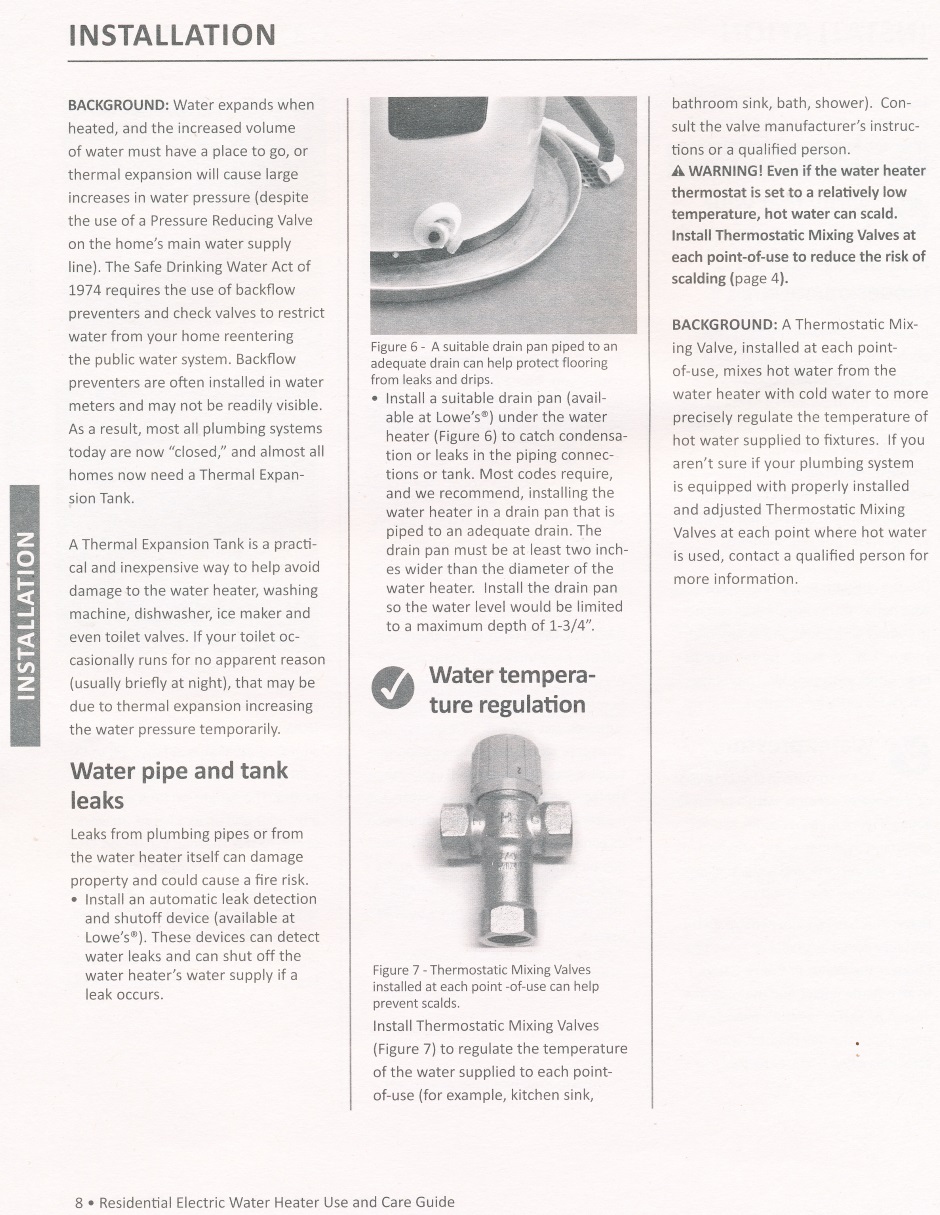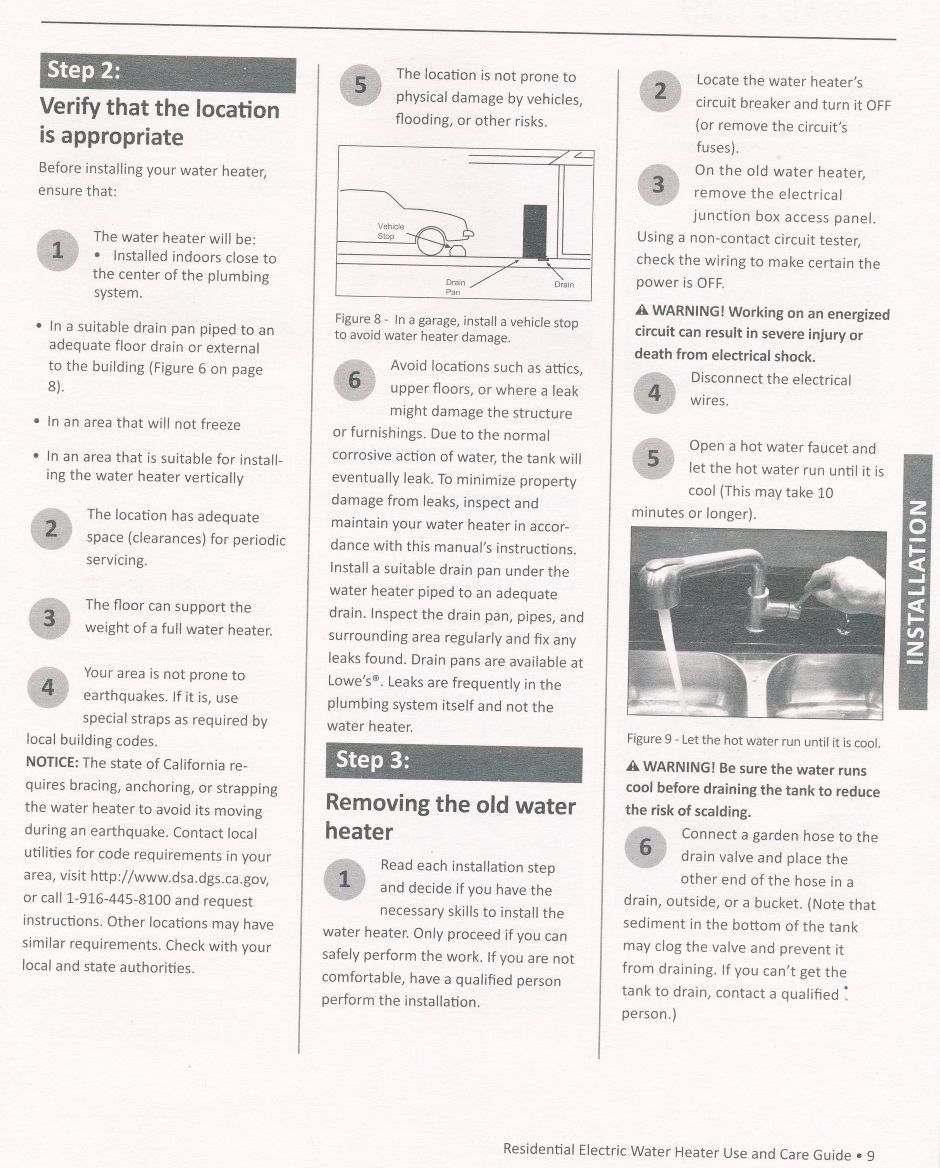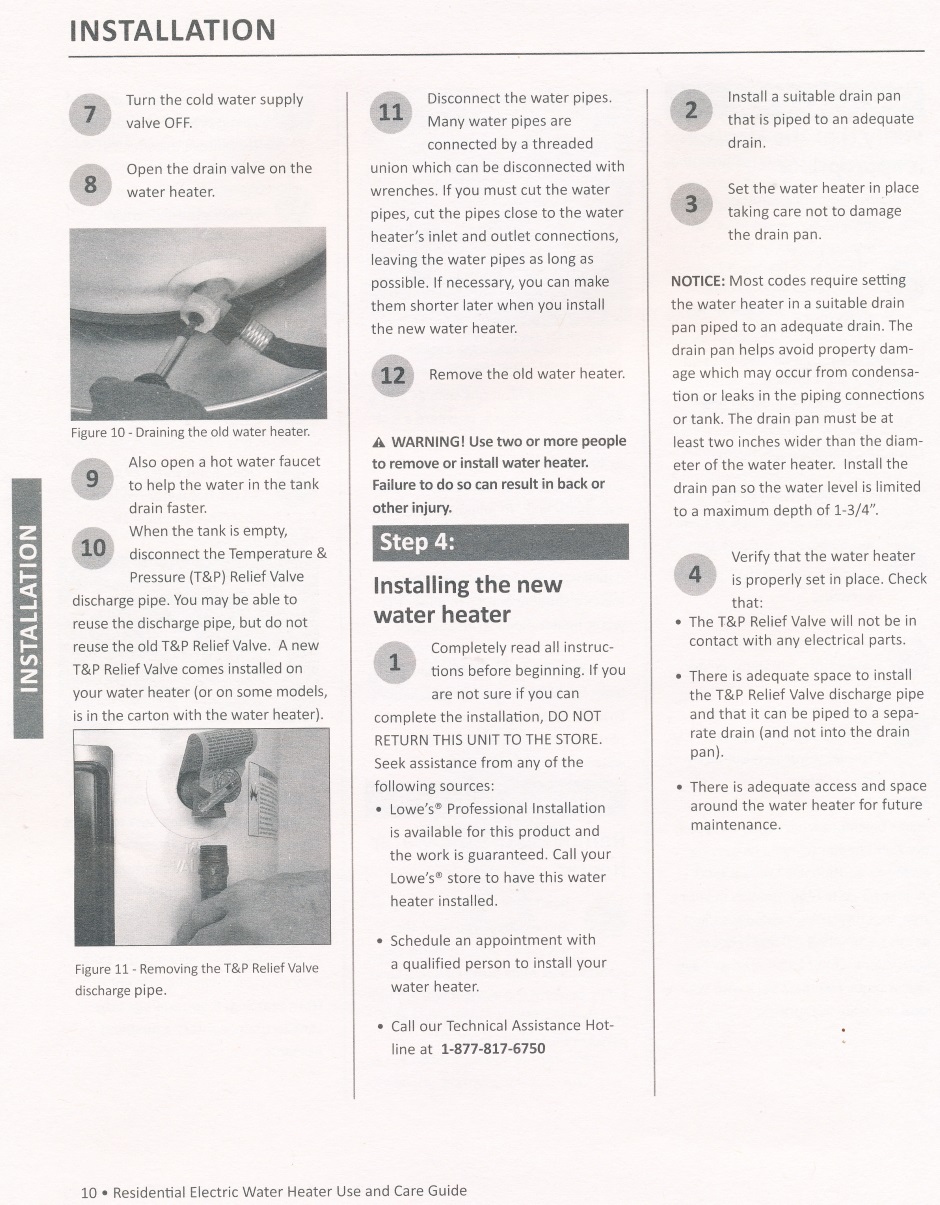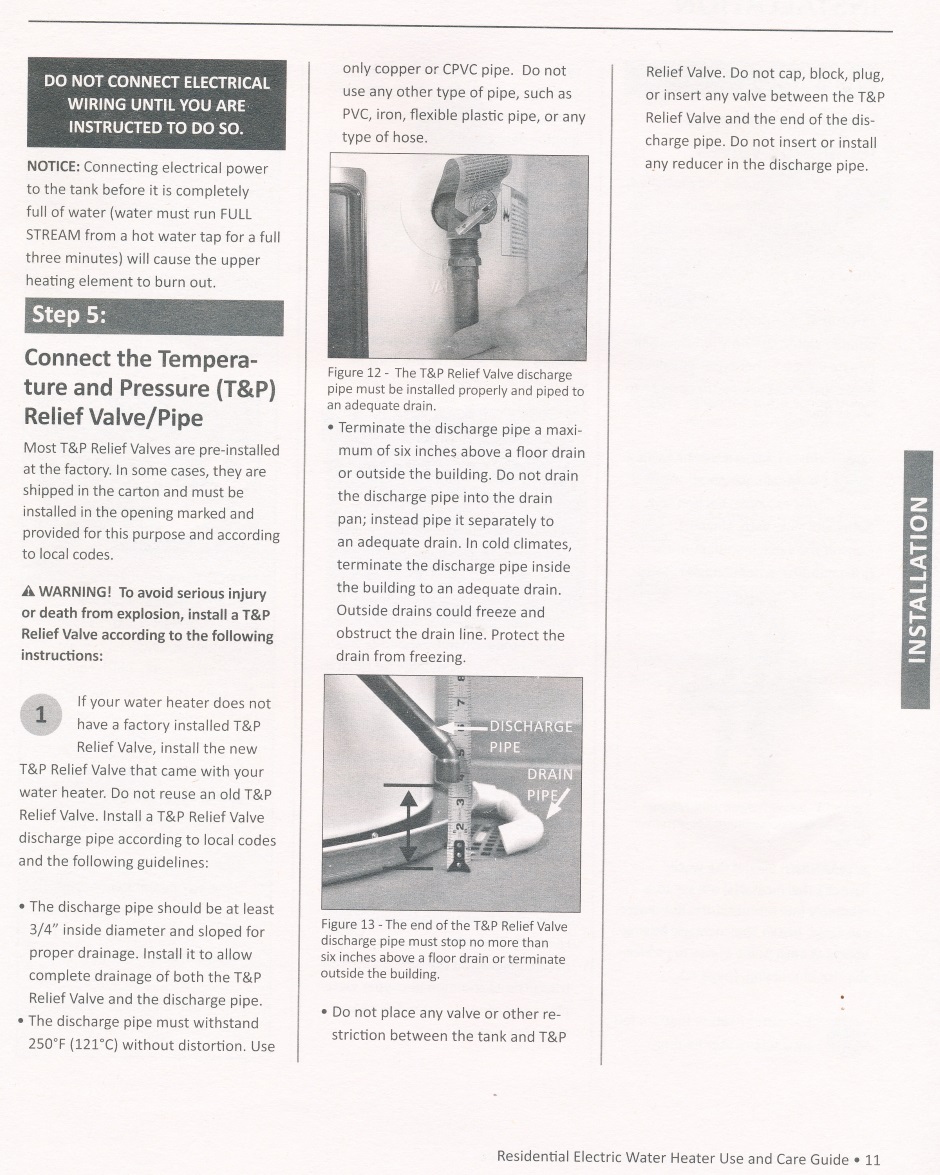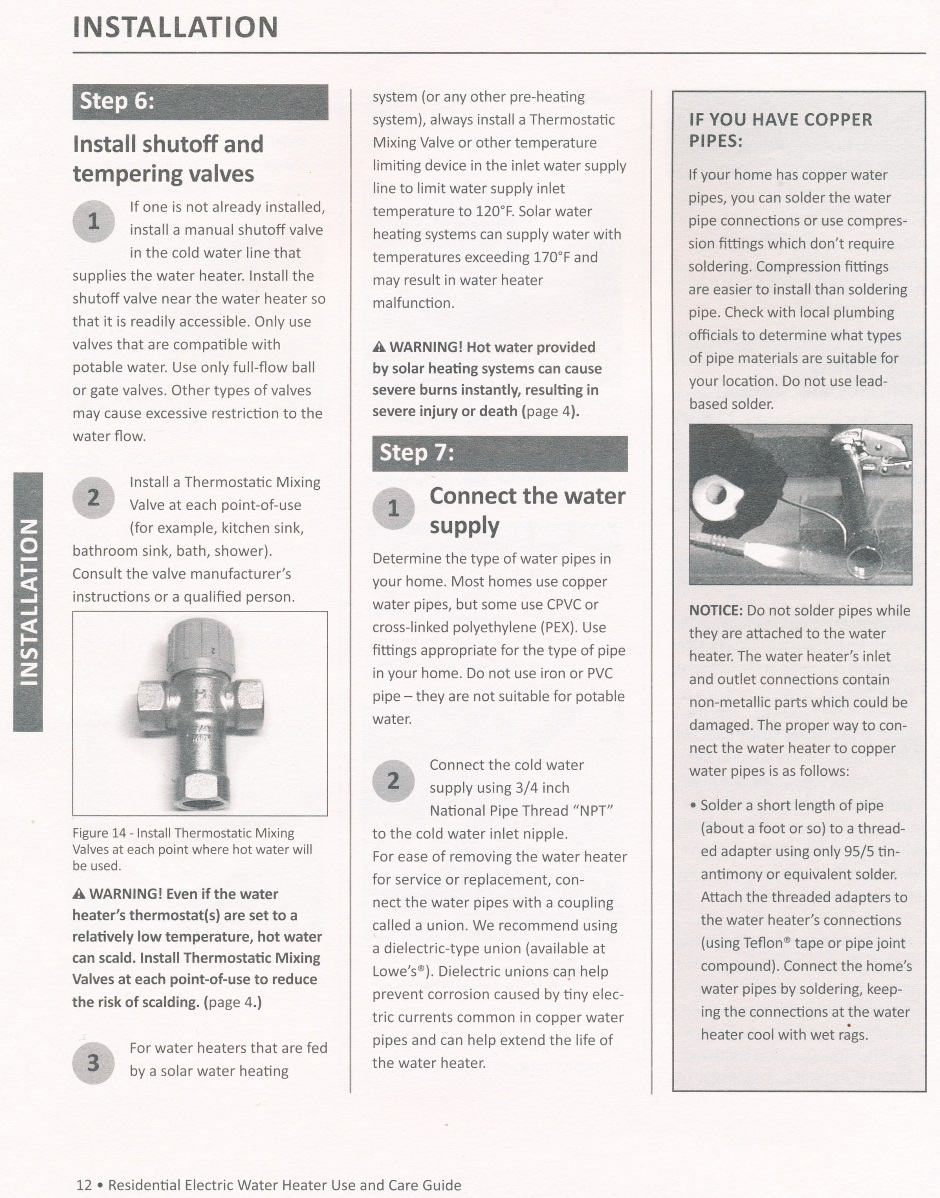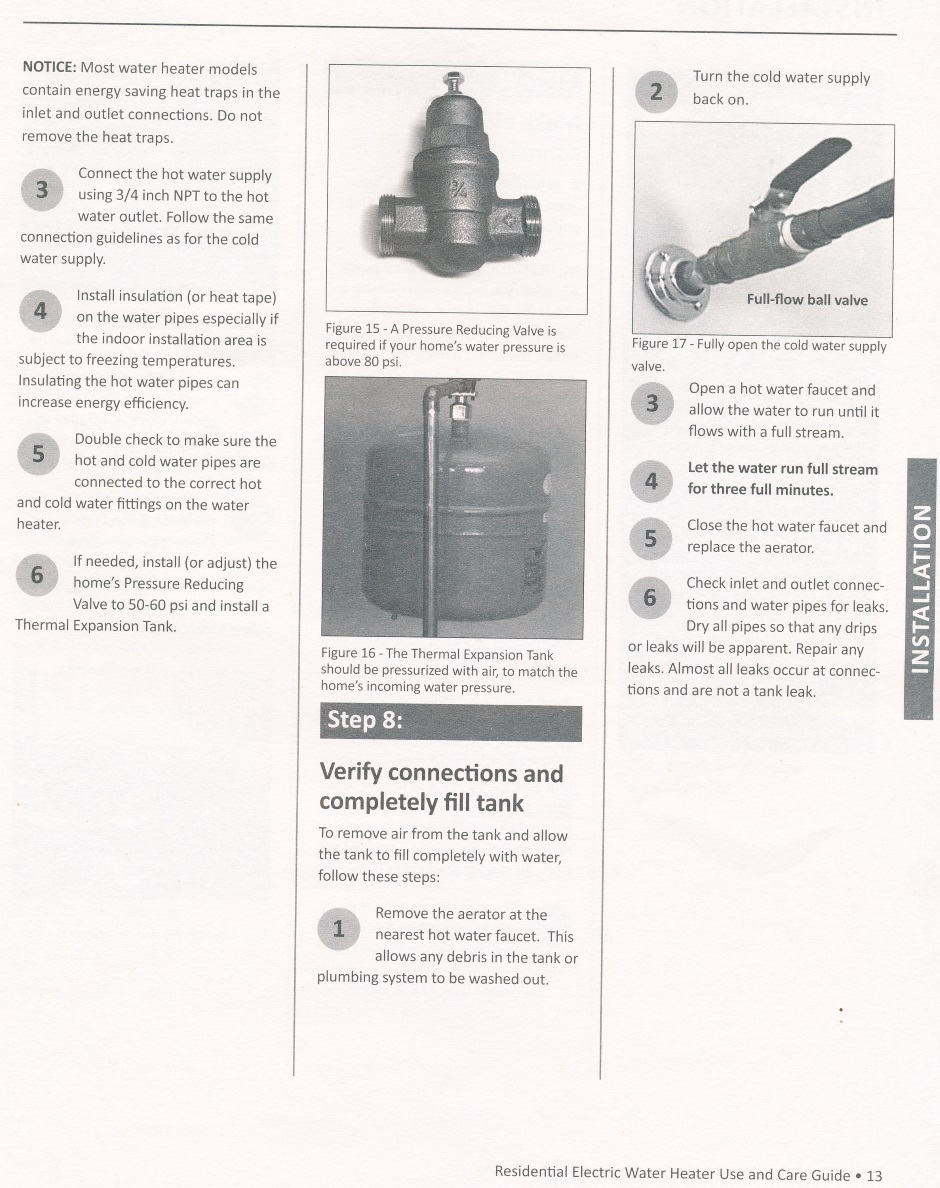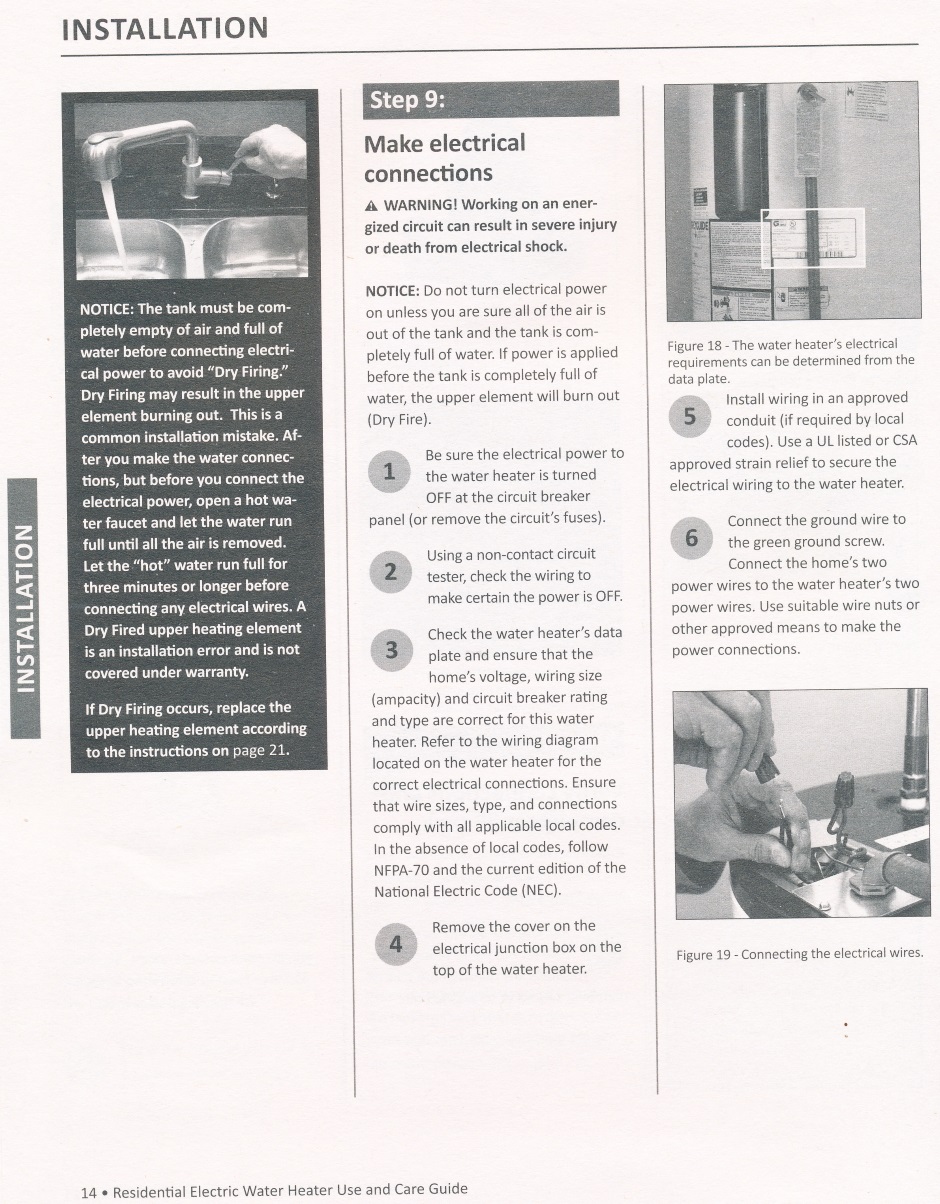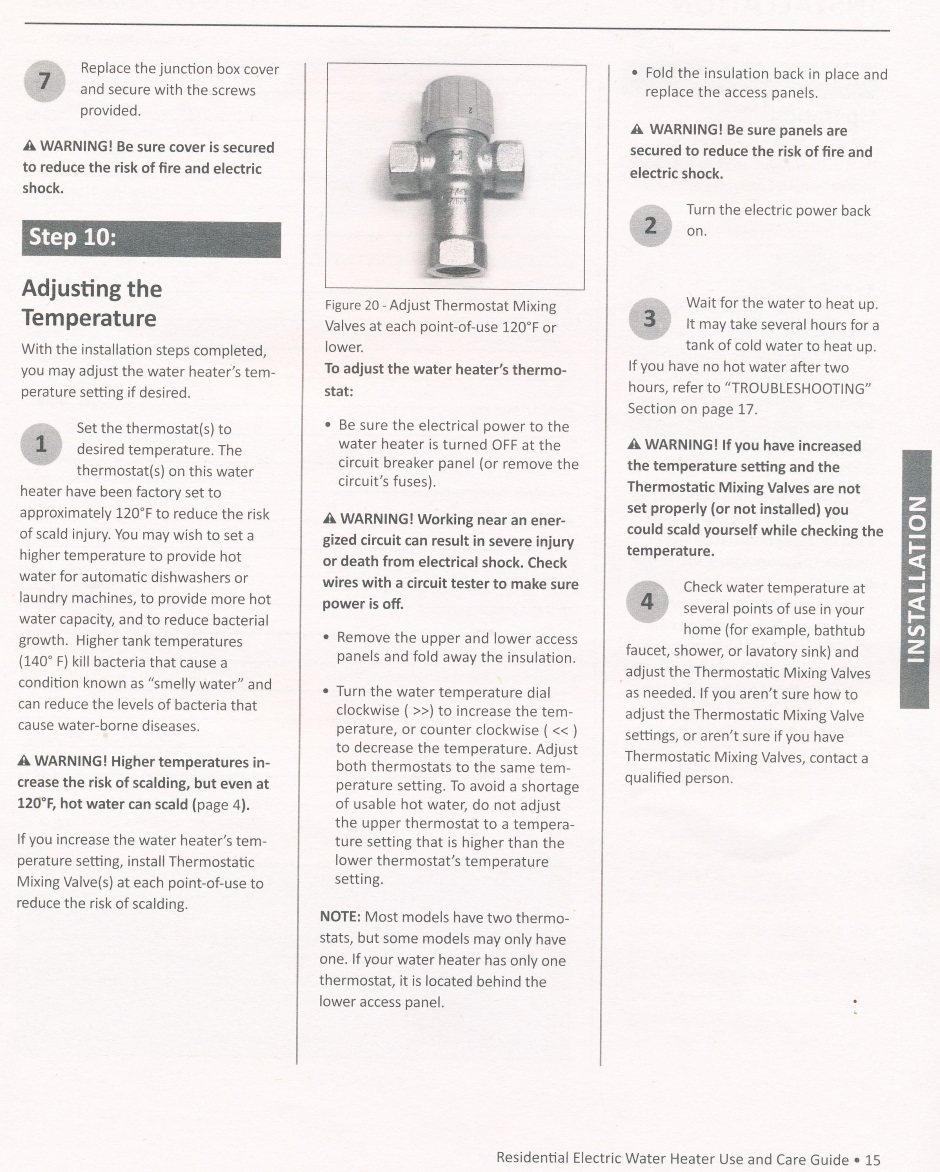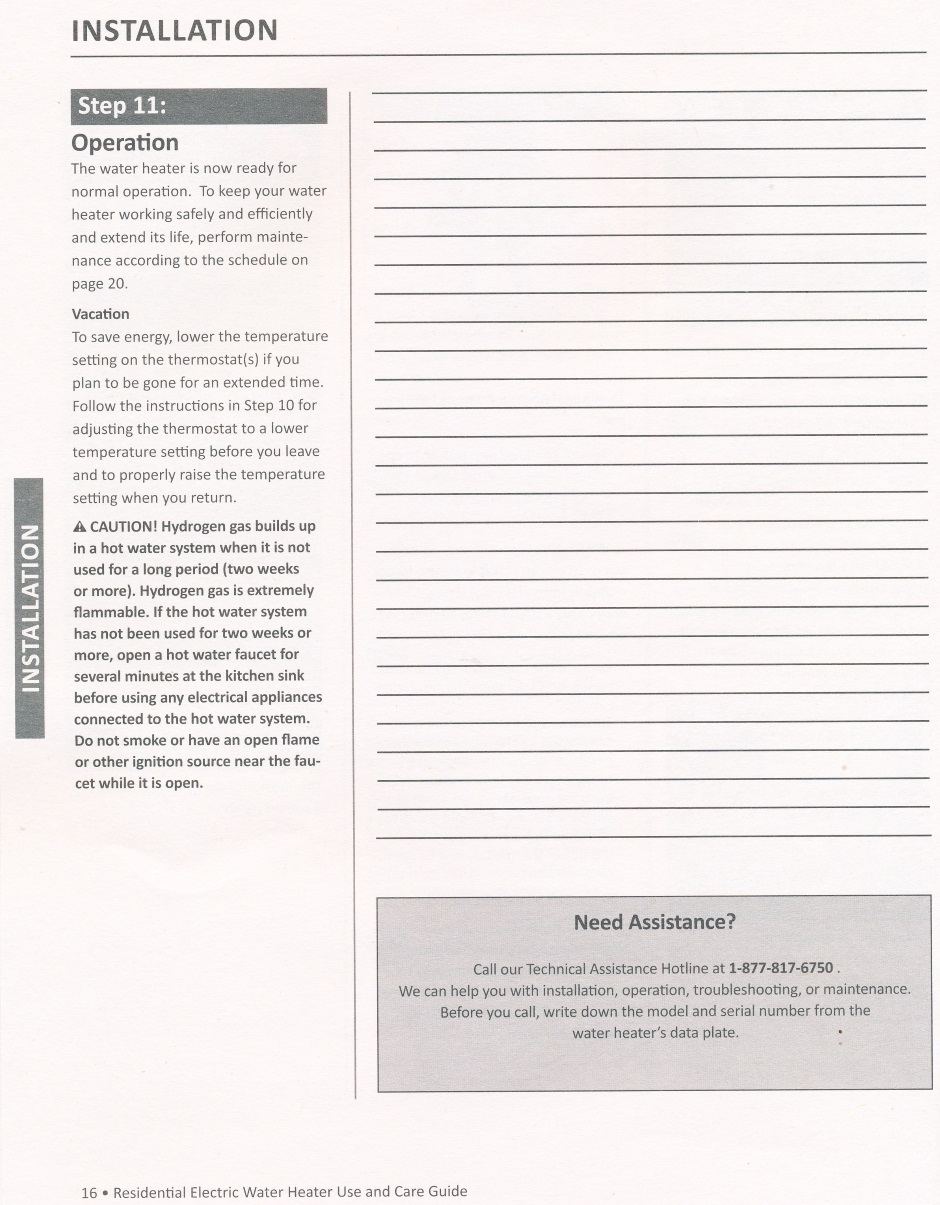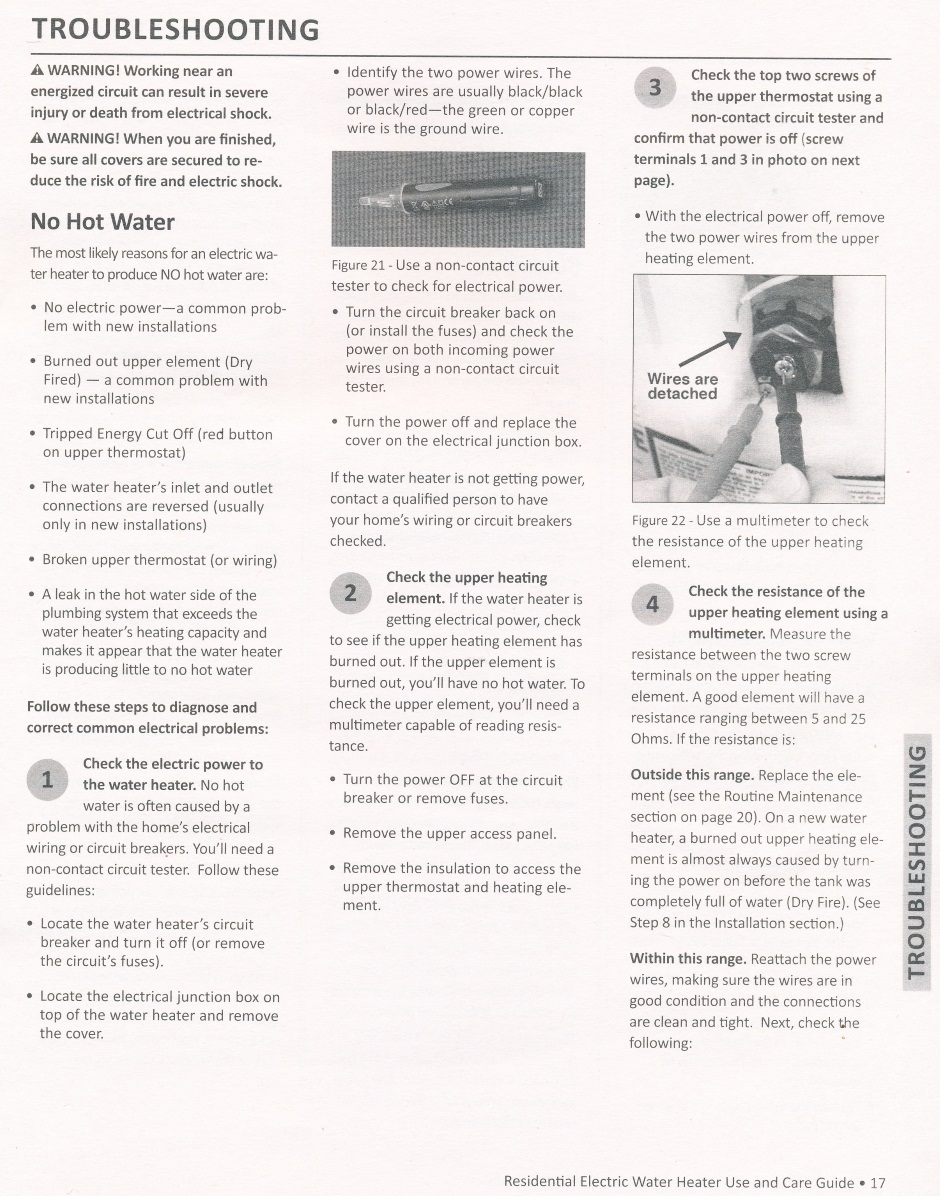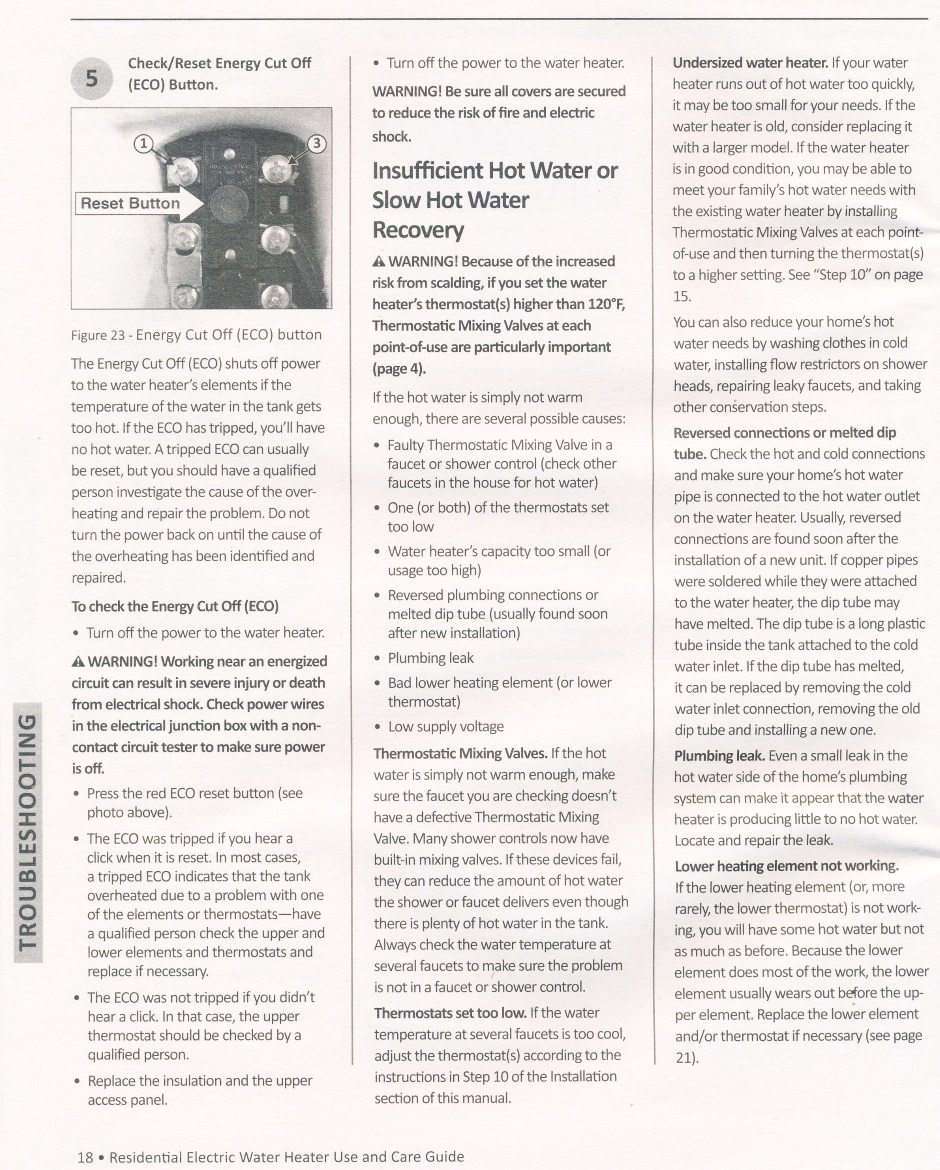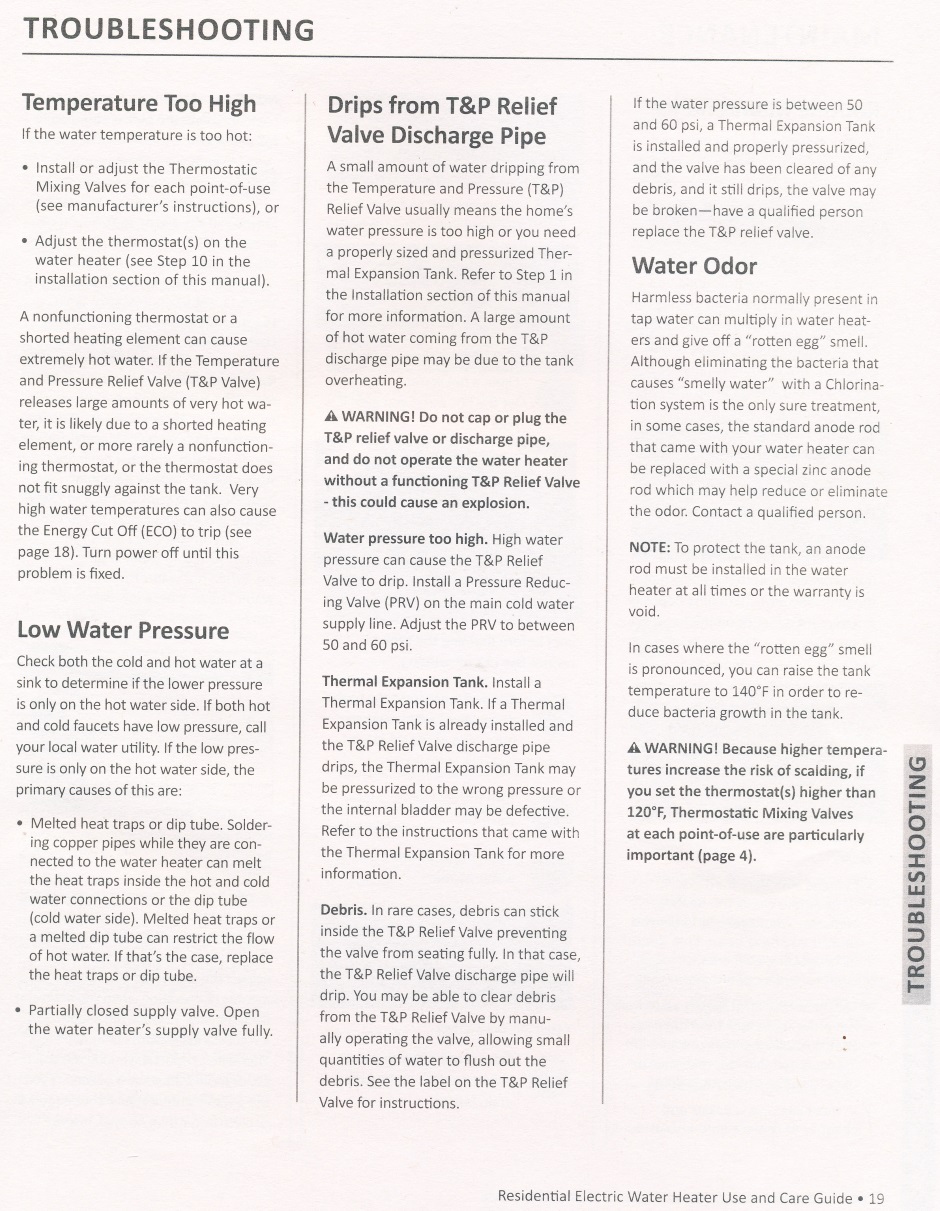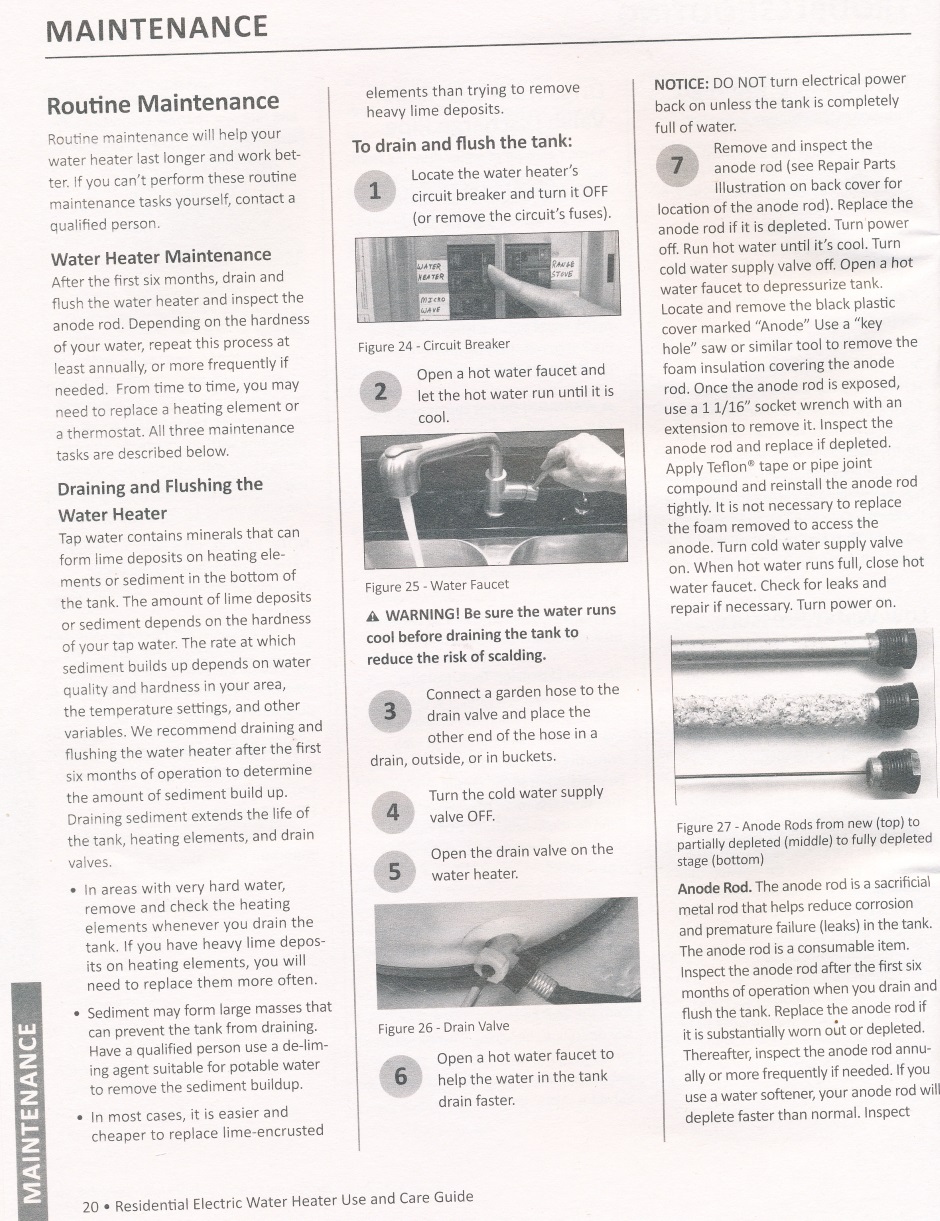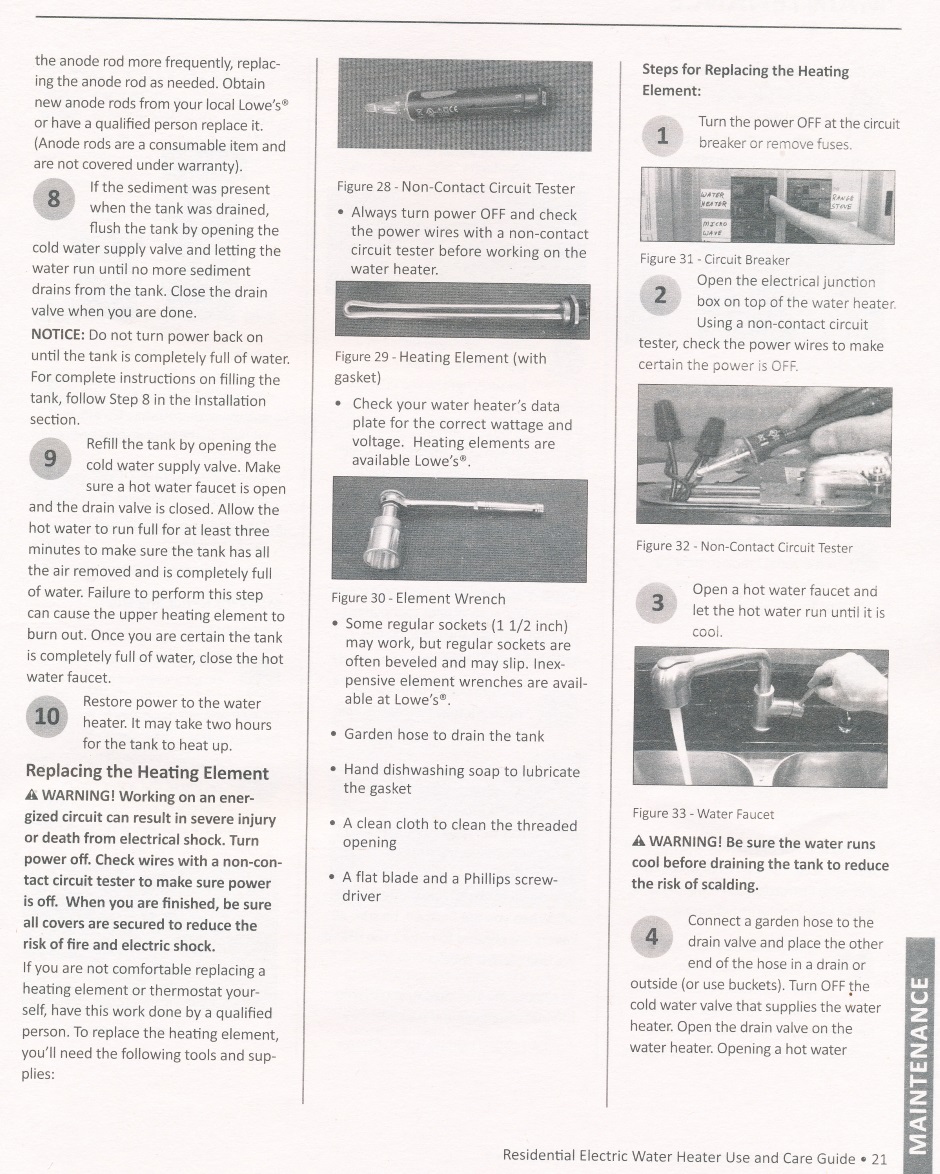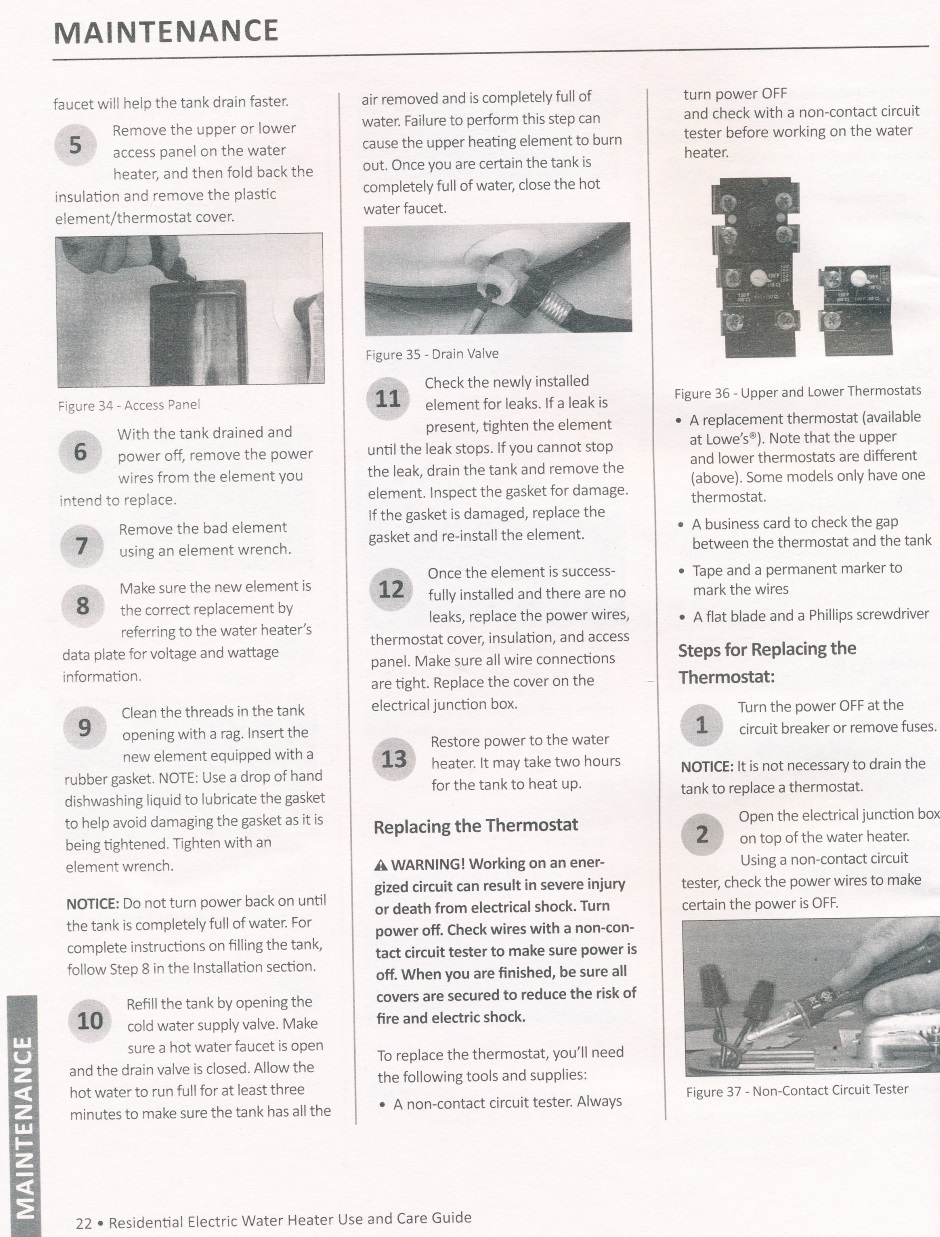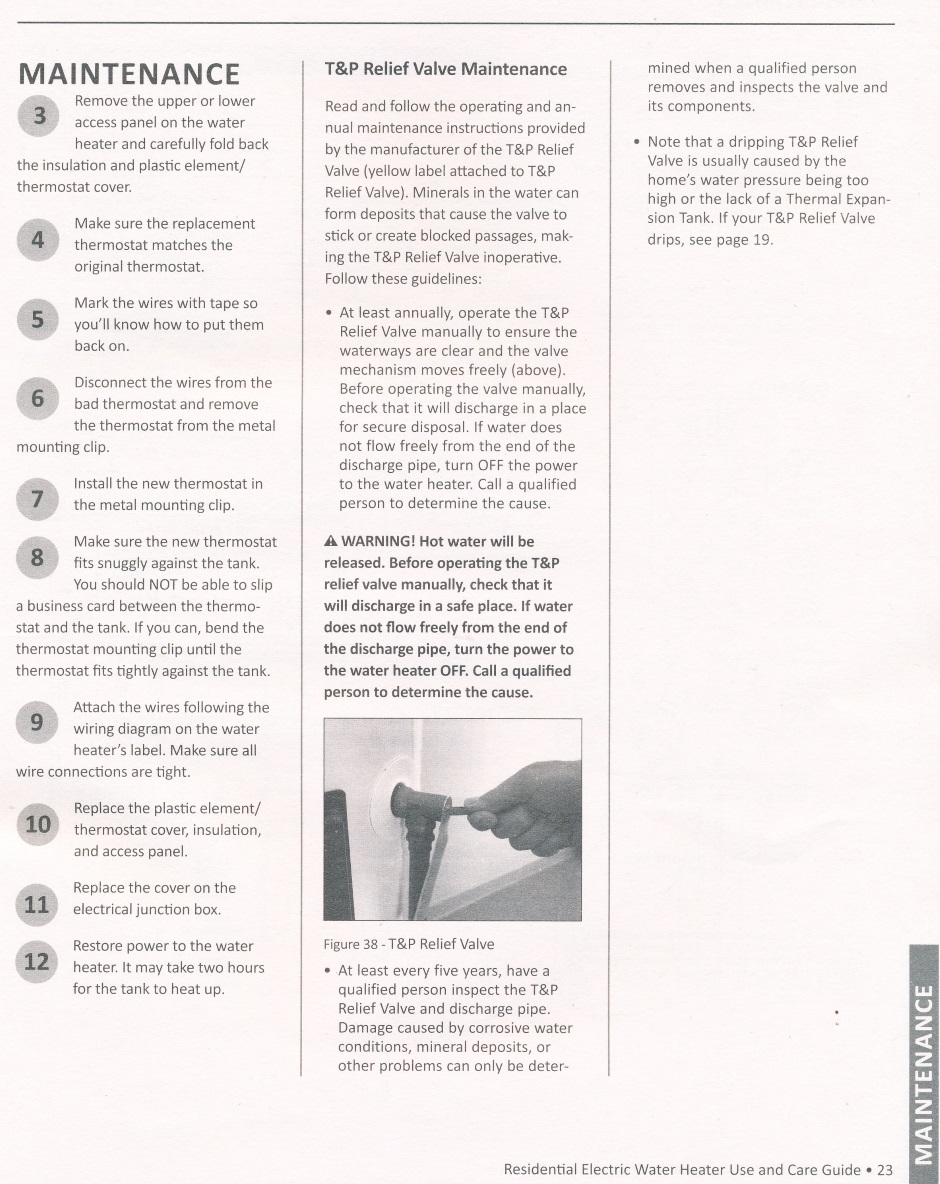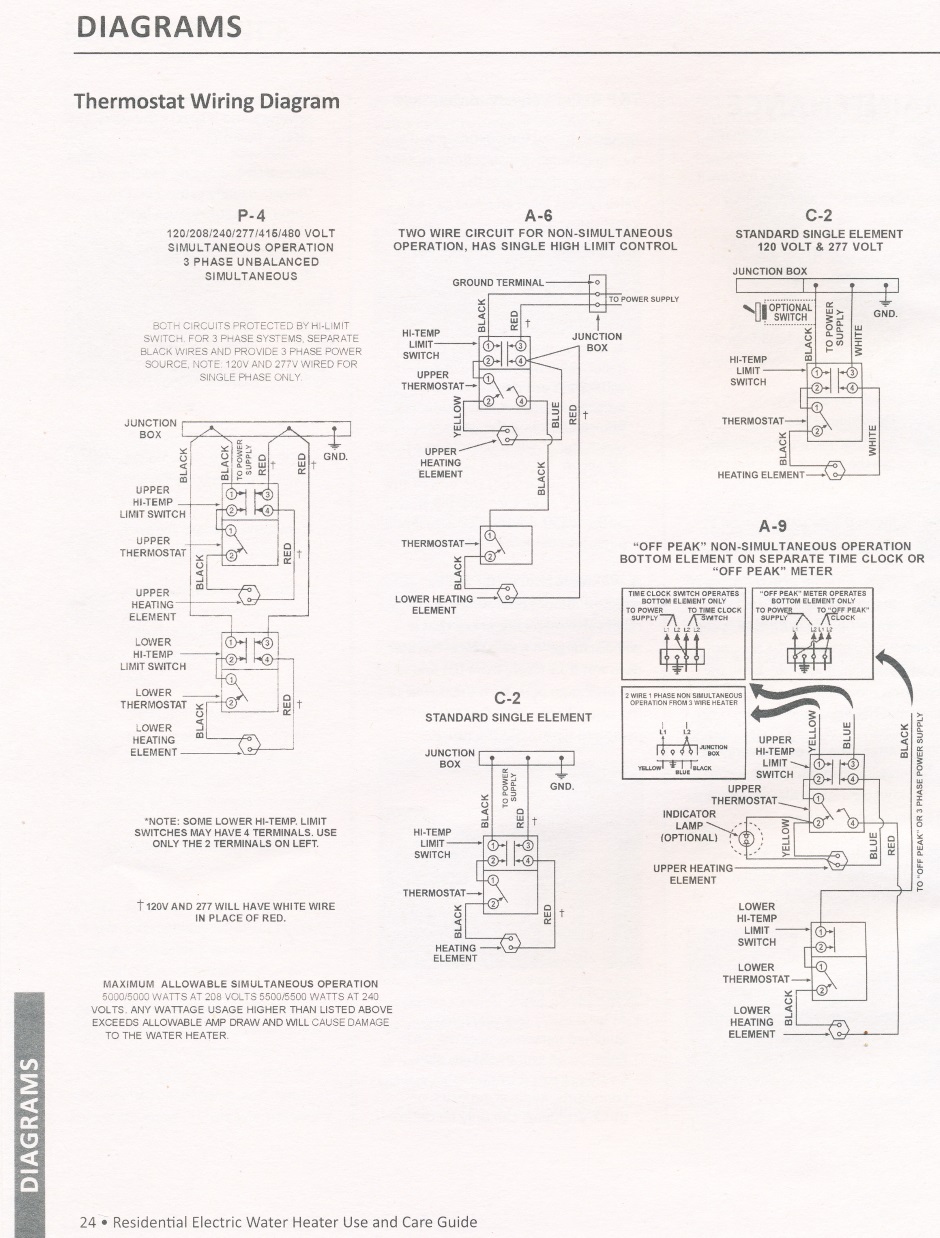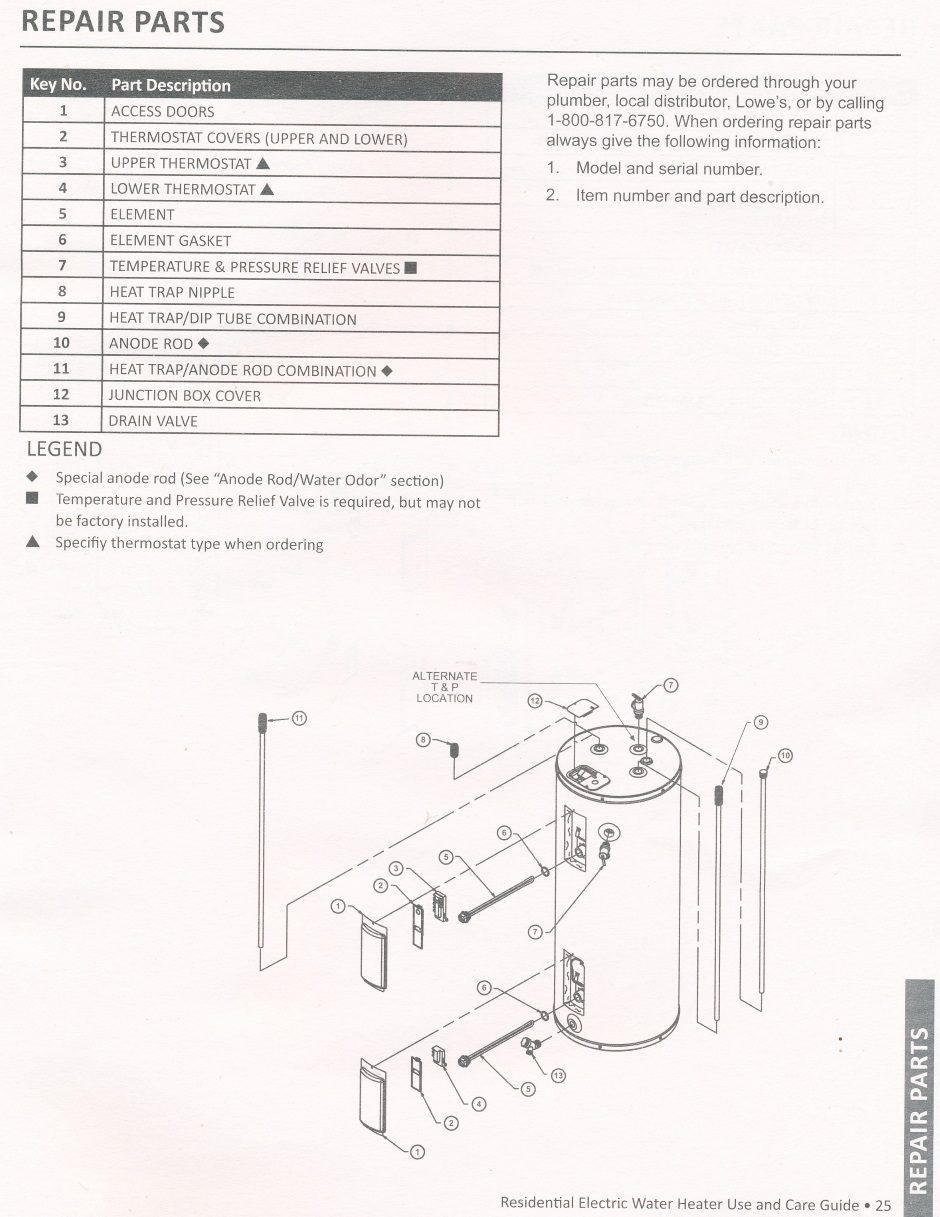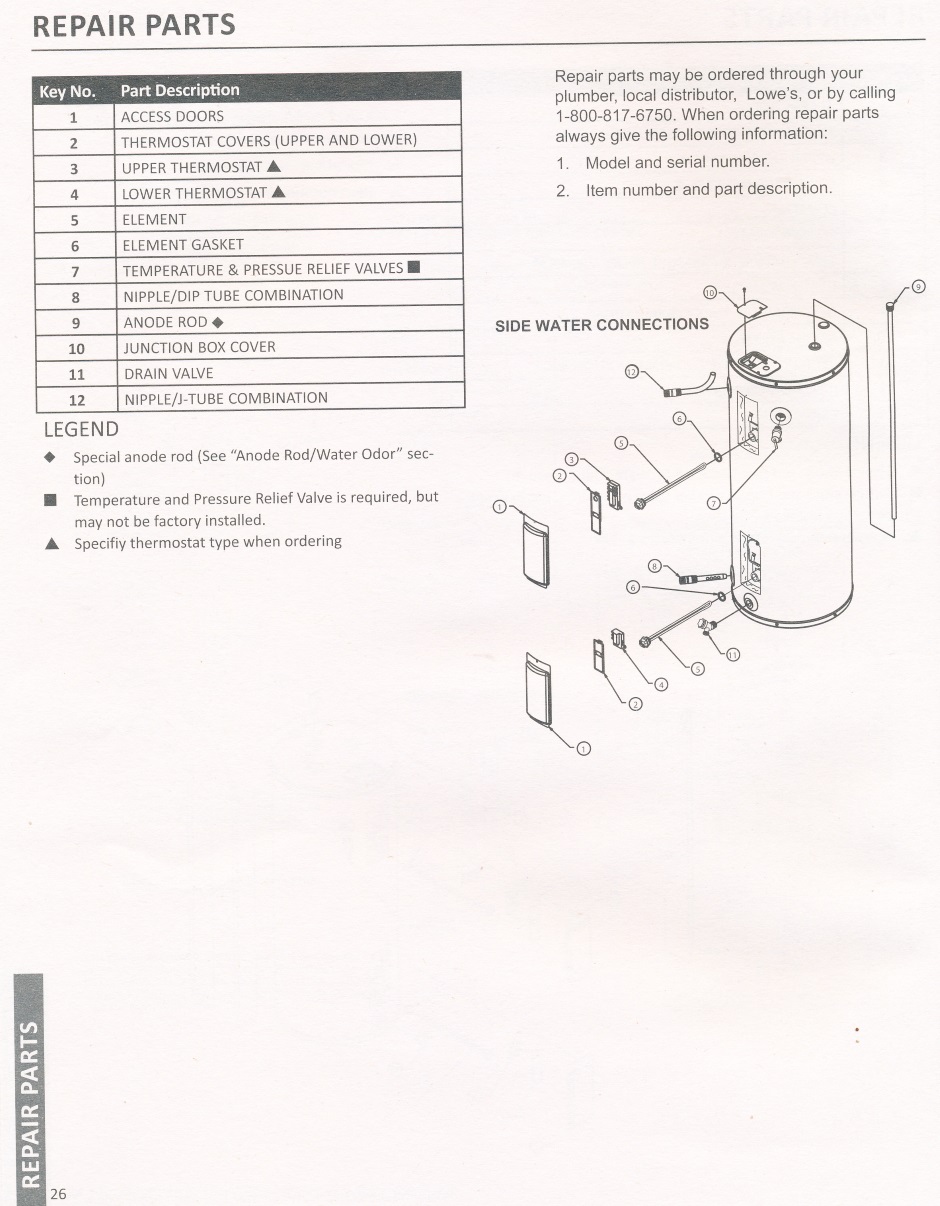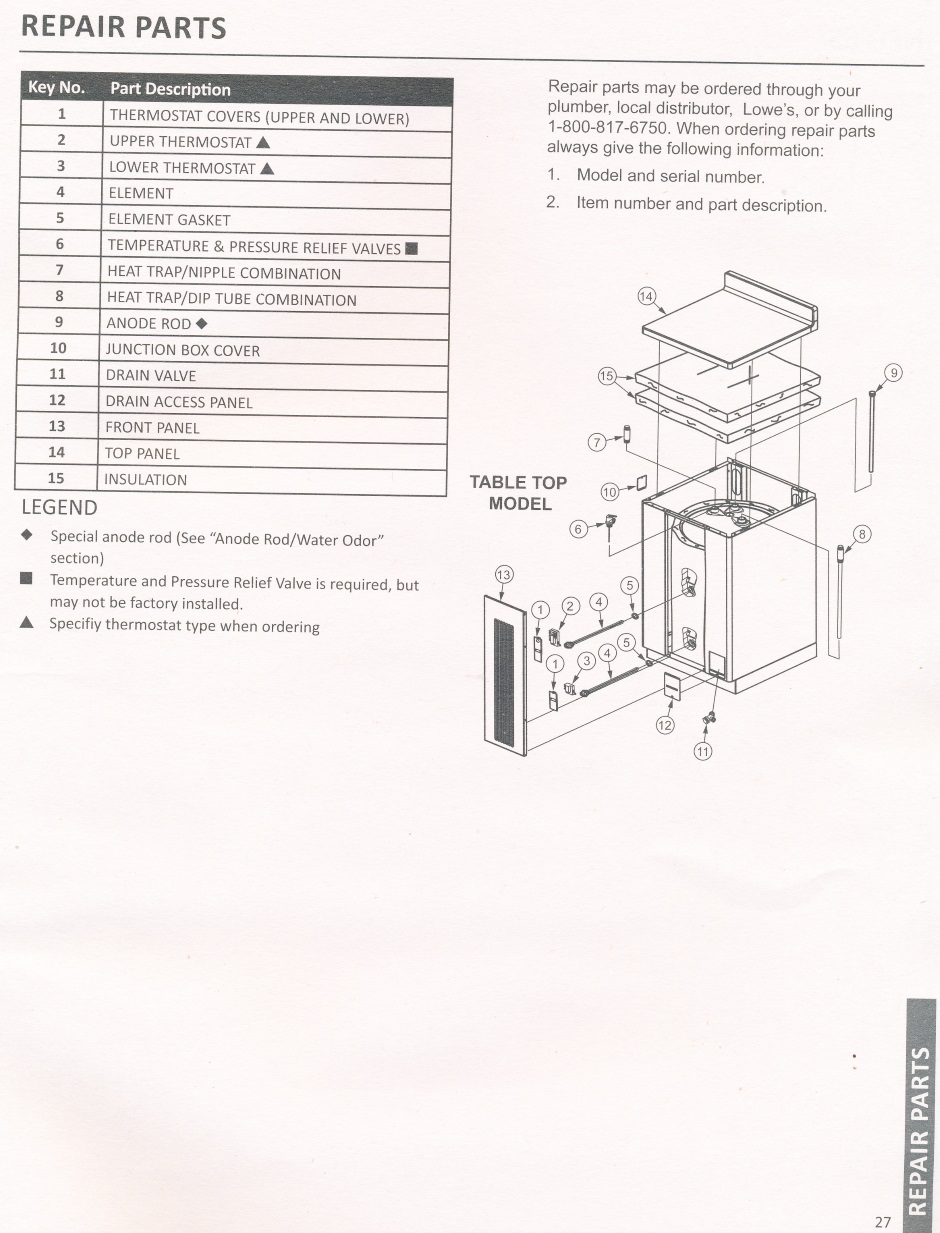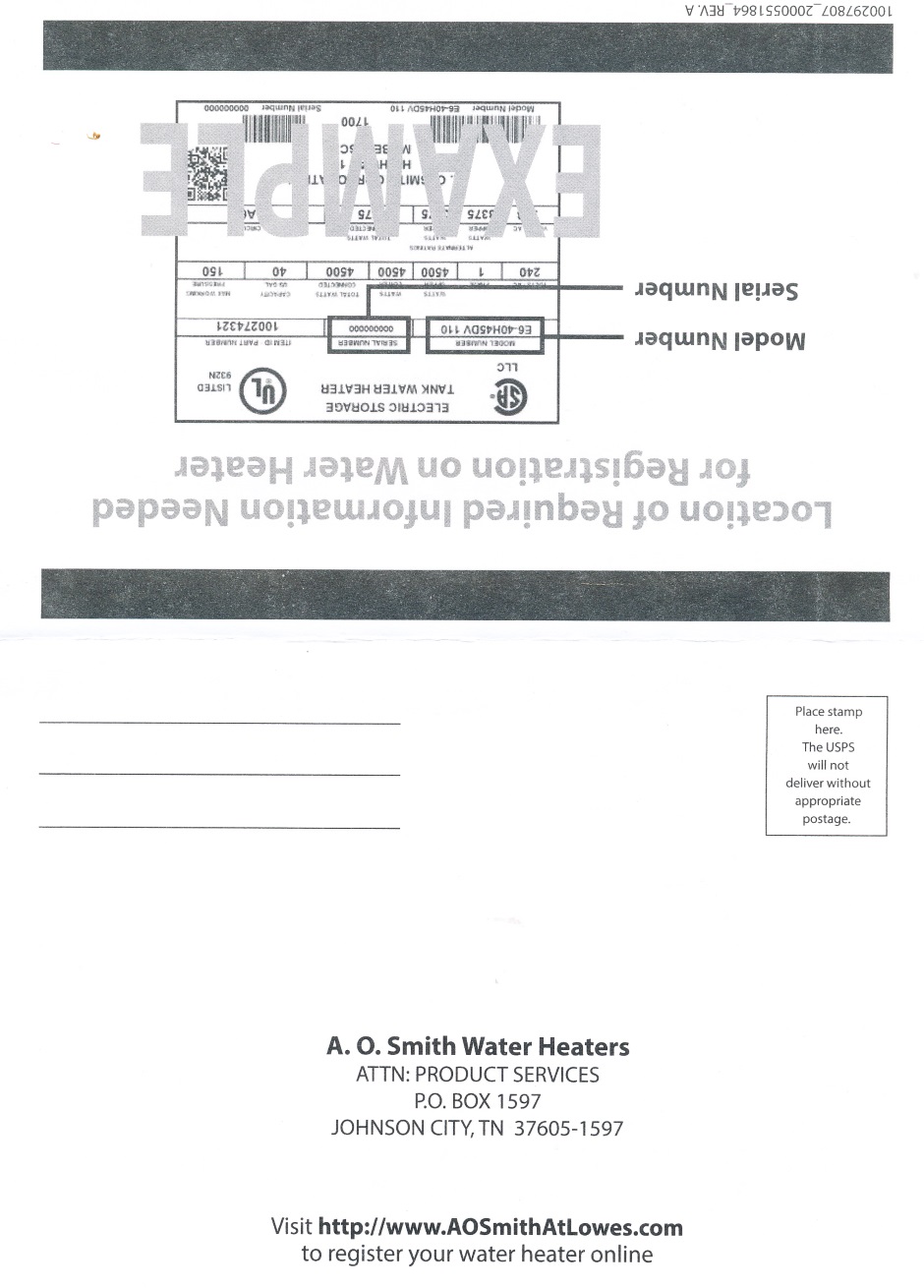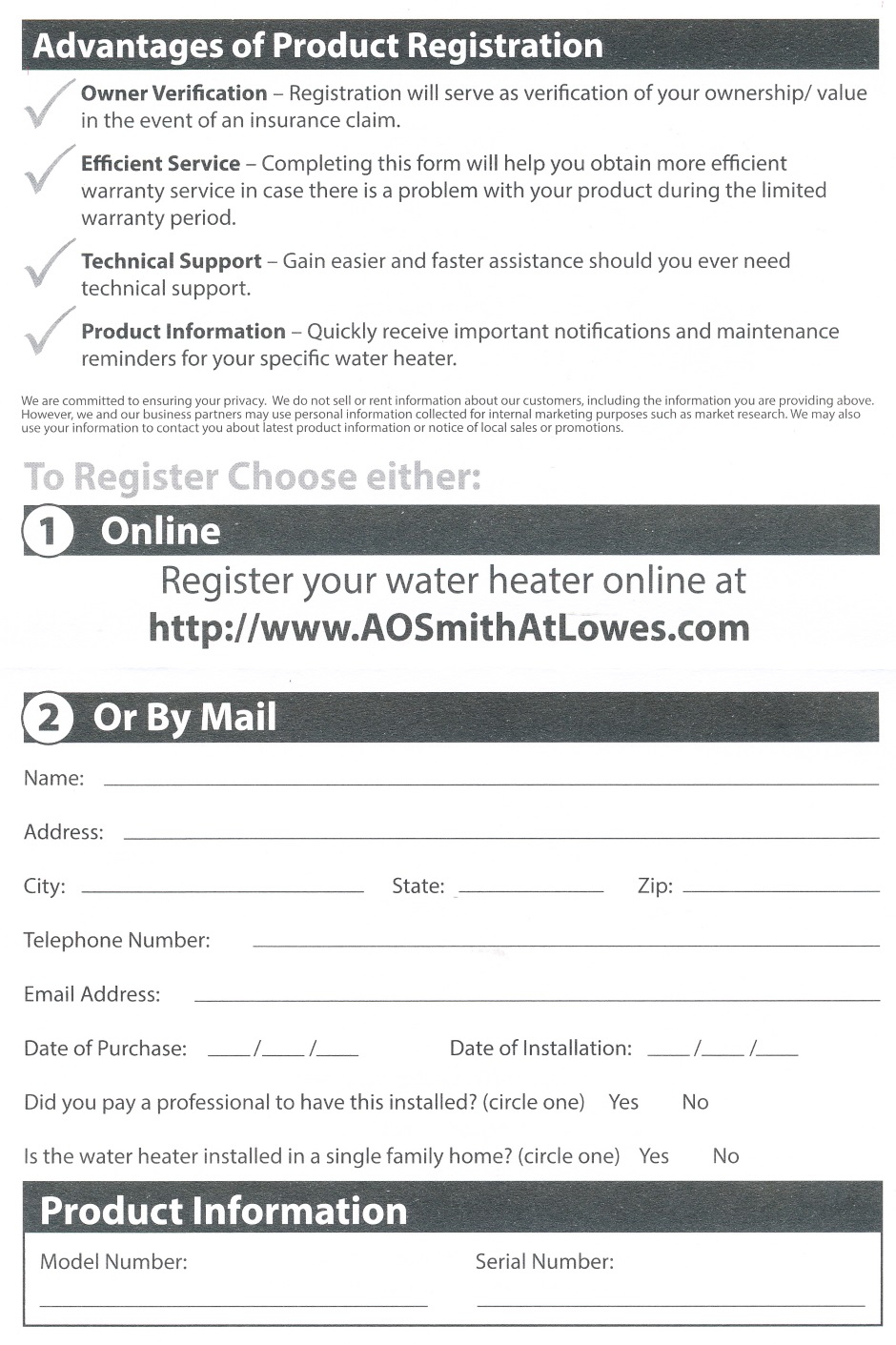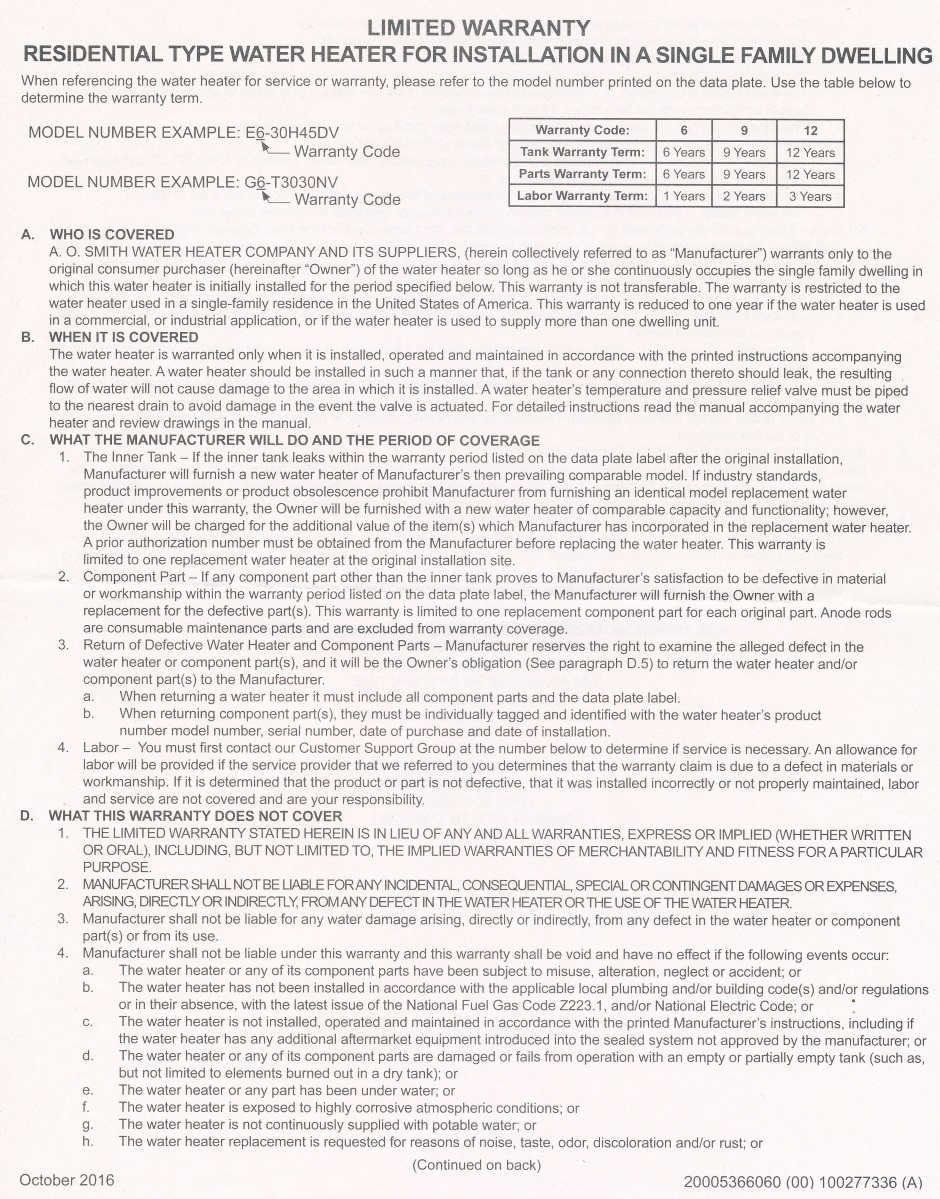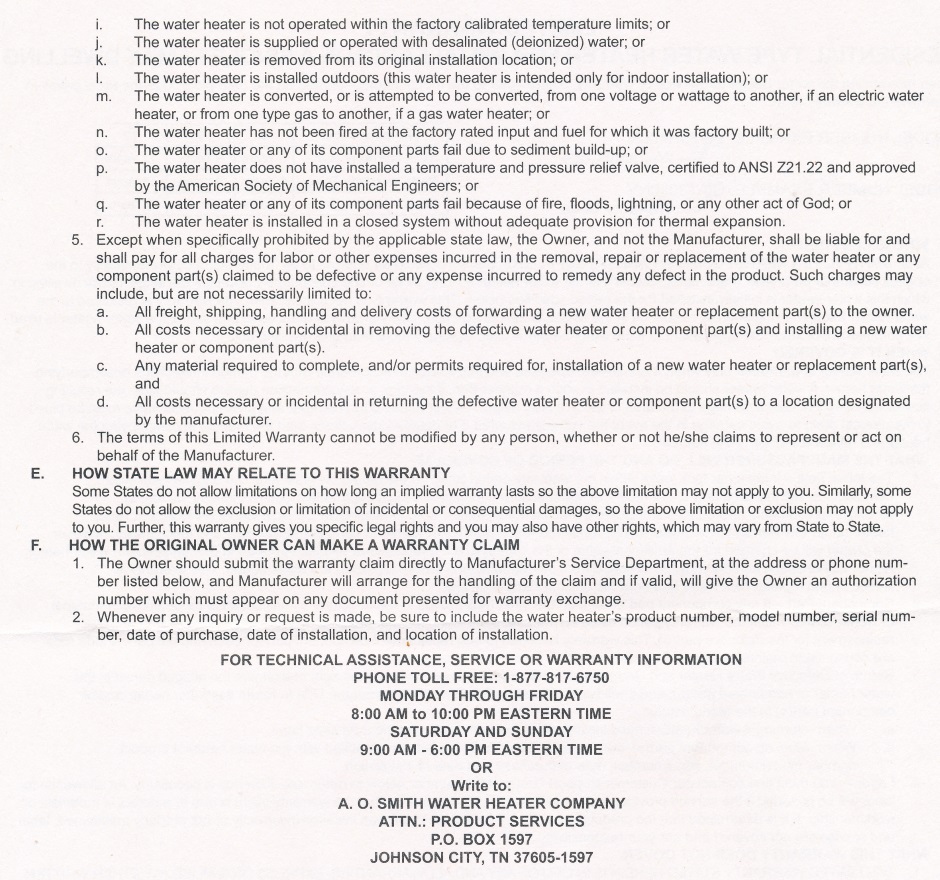Heating - Water Heater Large
I want an electric water heater. Two of these are required in the house basement. Typically large electric water heaters have two elements. For power outage scenarios need to be able to operate just one element at 115V 20A, but it is easy and inexpensive to put in whatever elements you want.
AO Smith
Heat Pump Water Heater
A.O. Smith Signature 900 50-Gallon Tall 10-year Limited Warranty 4500-Watt Double Element Electric Water Heater with Hybrid Heat Pump
Mounted Above Wood Fire
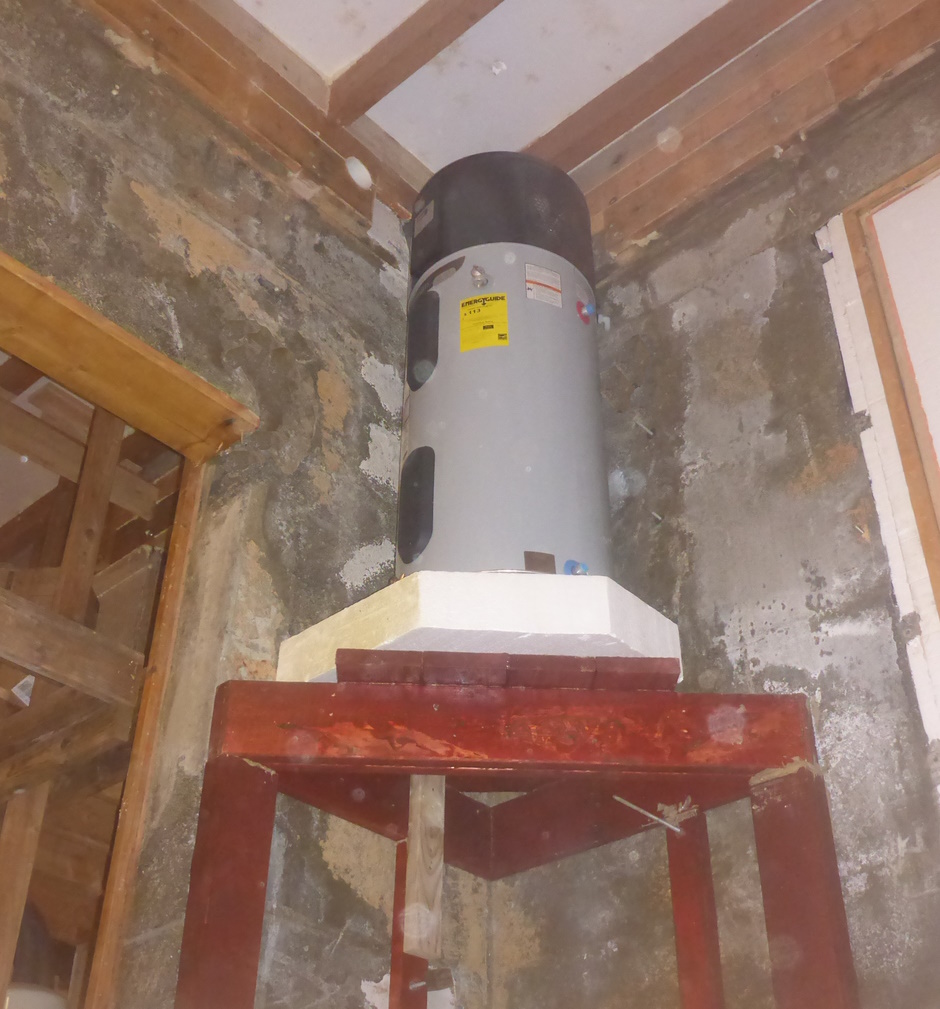
Lifting it to platform
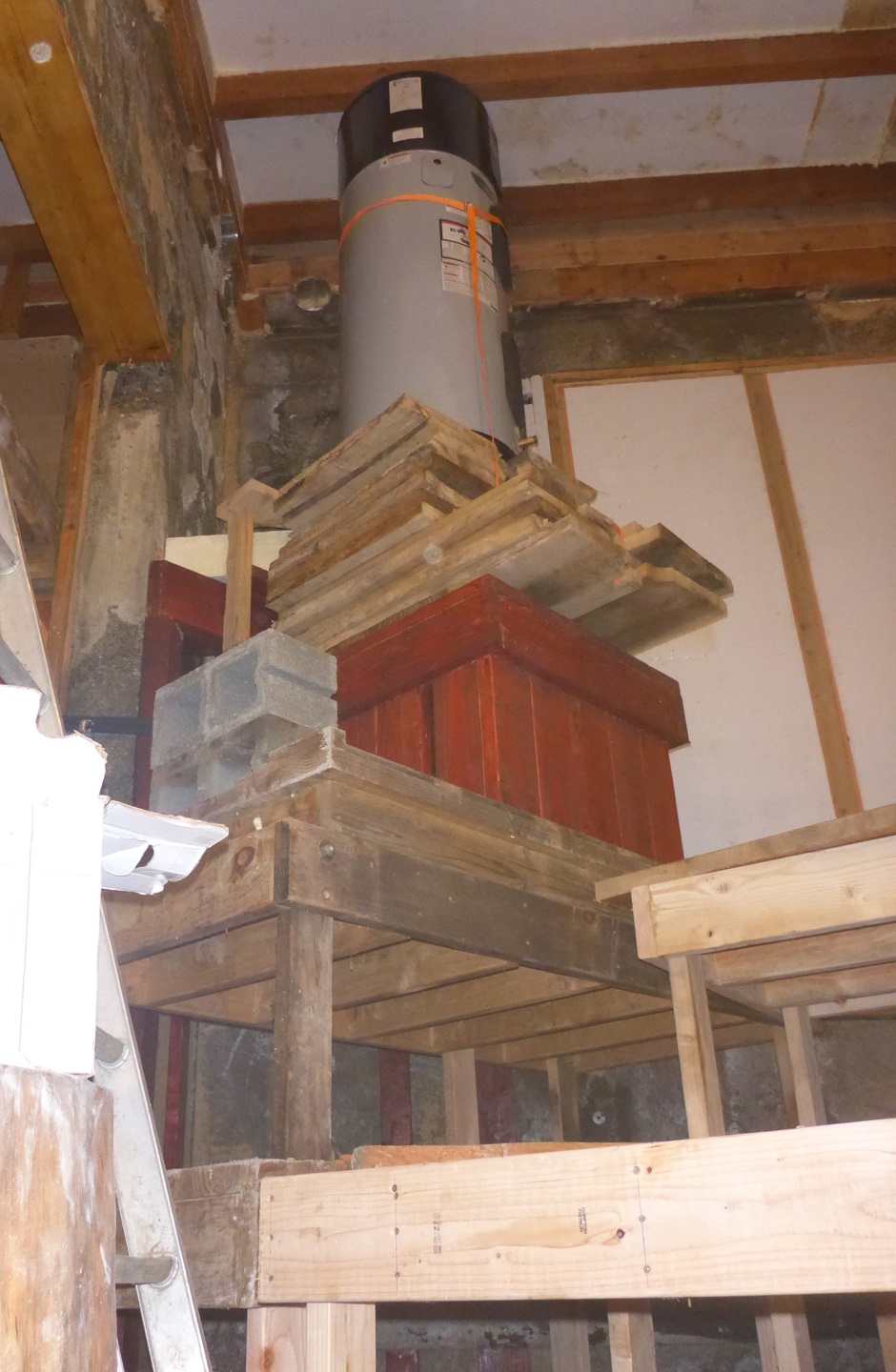
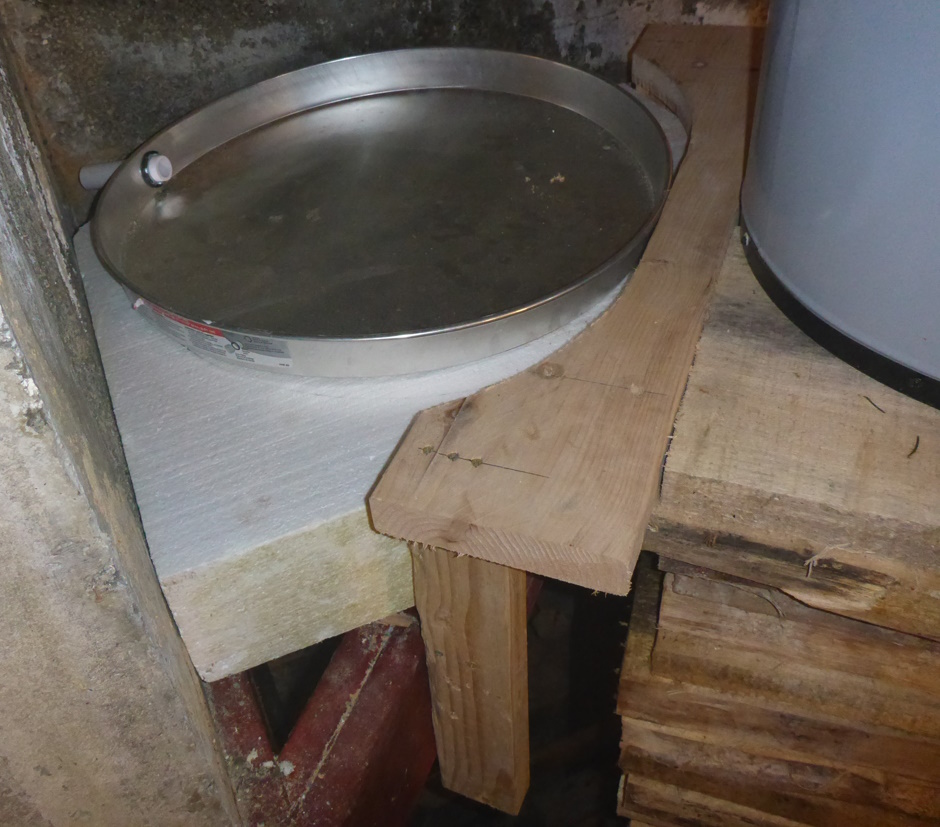
Manual
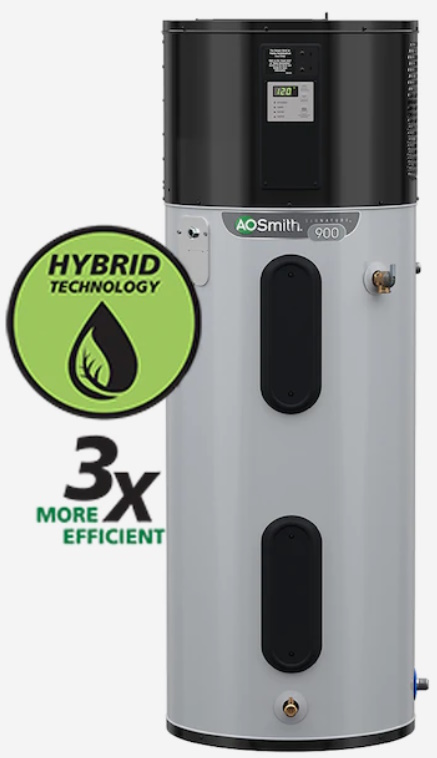
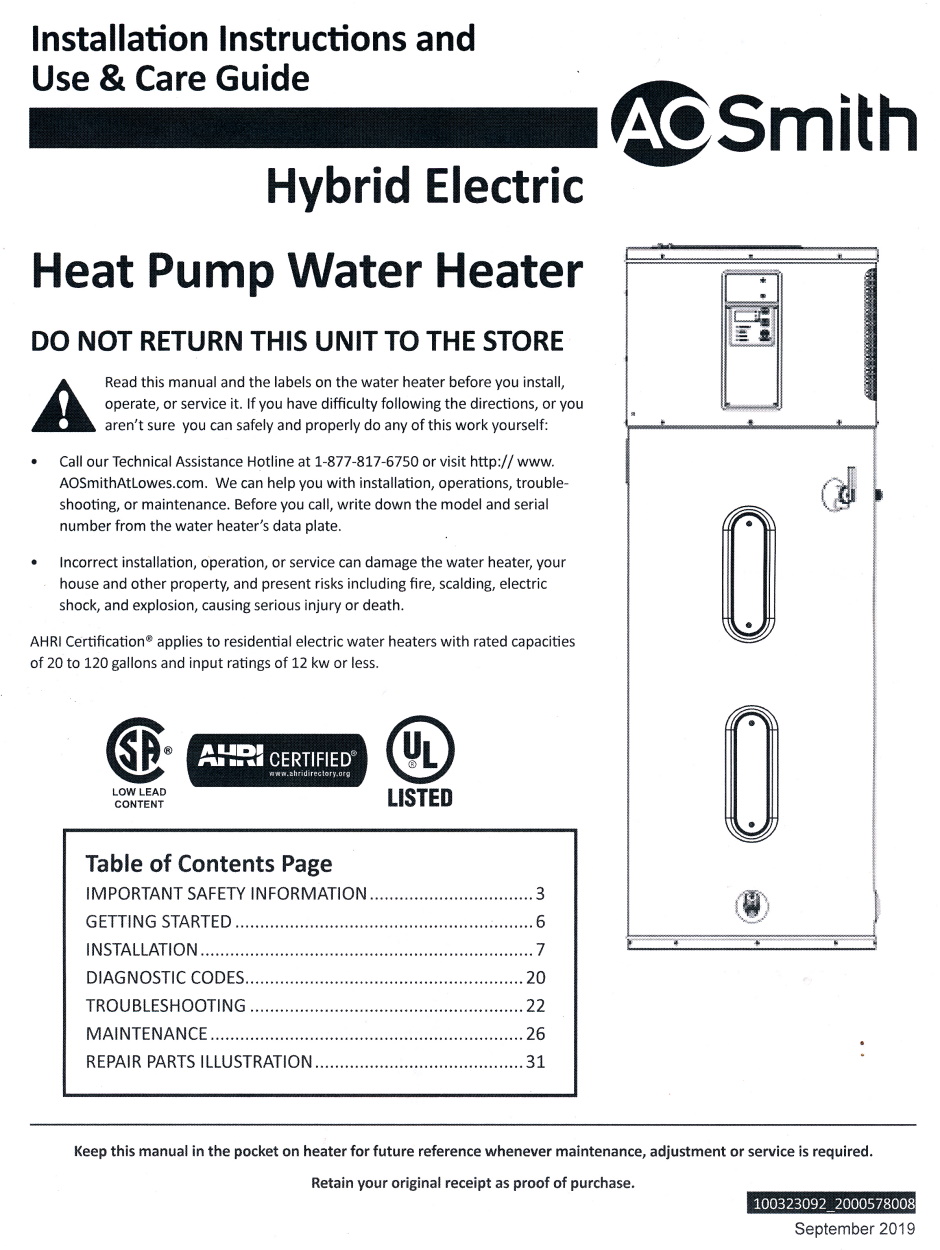
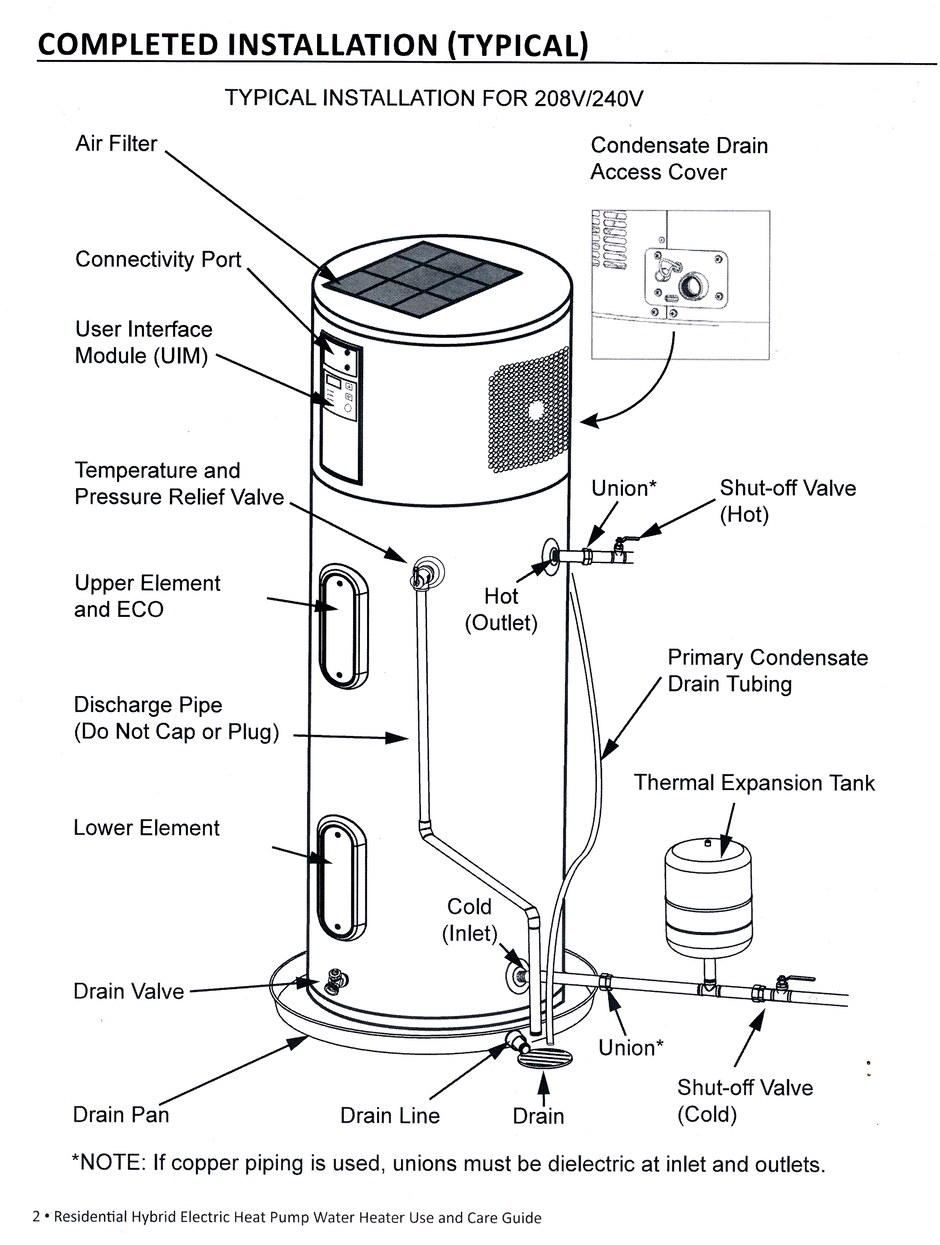
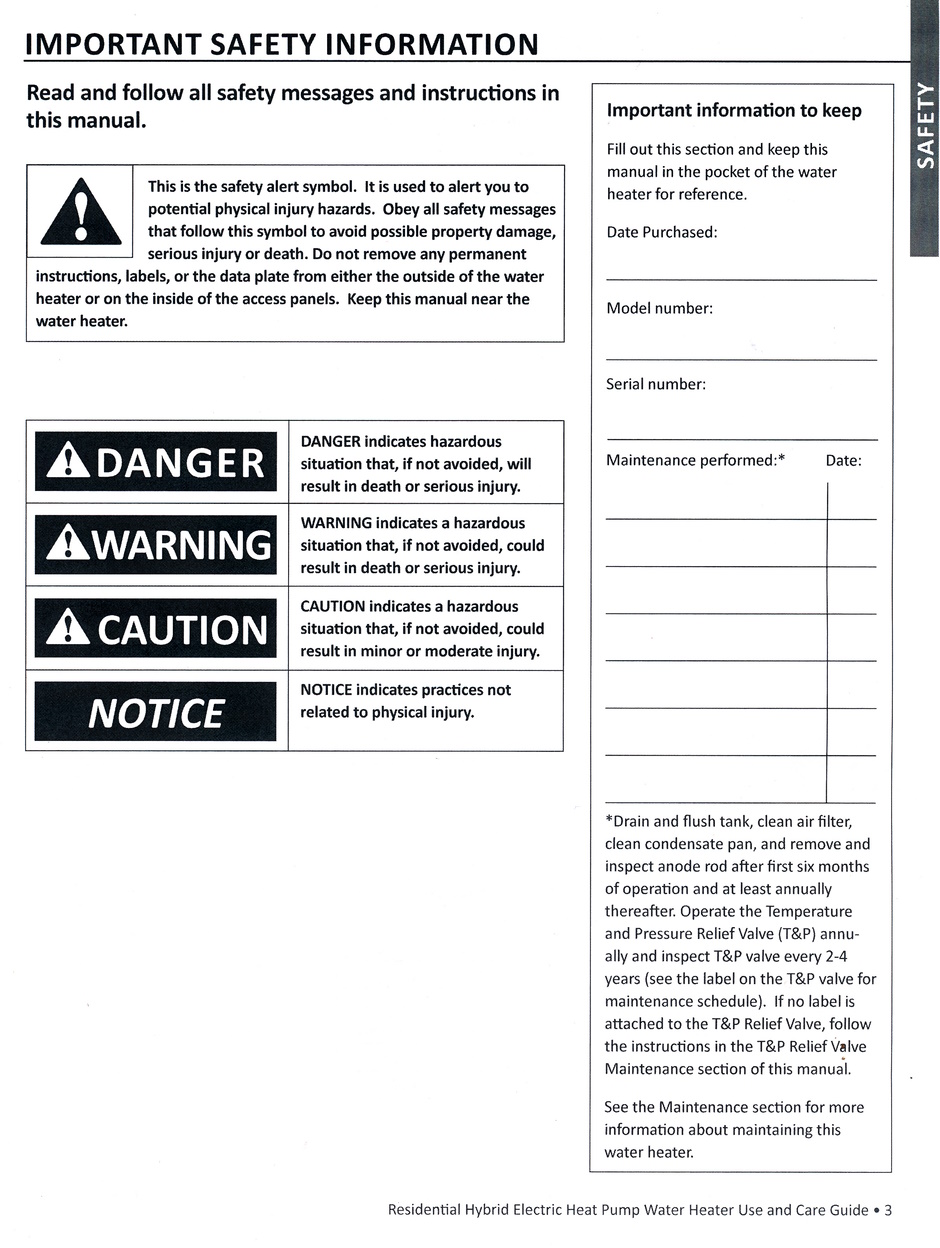
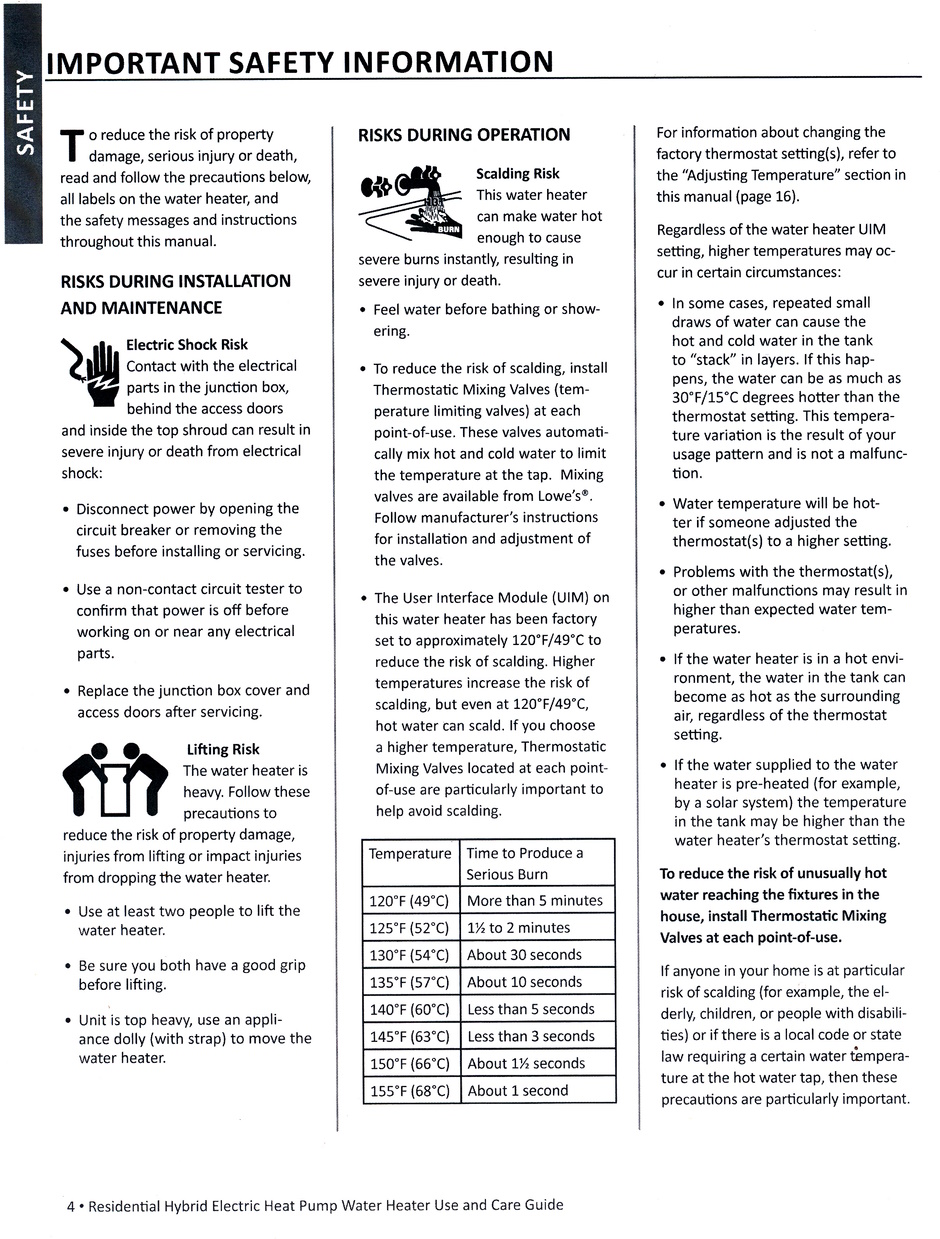
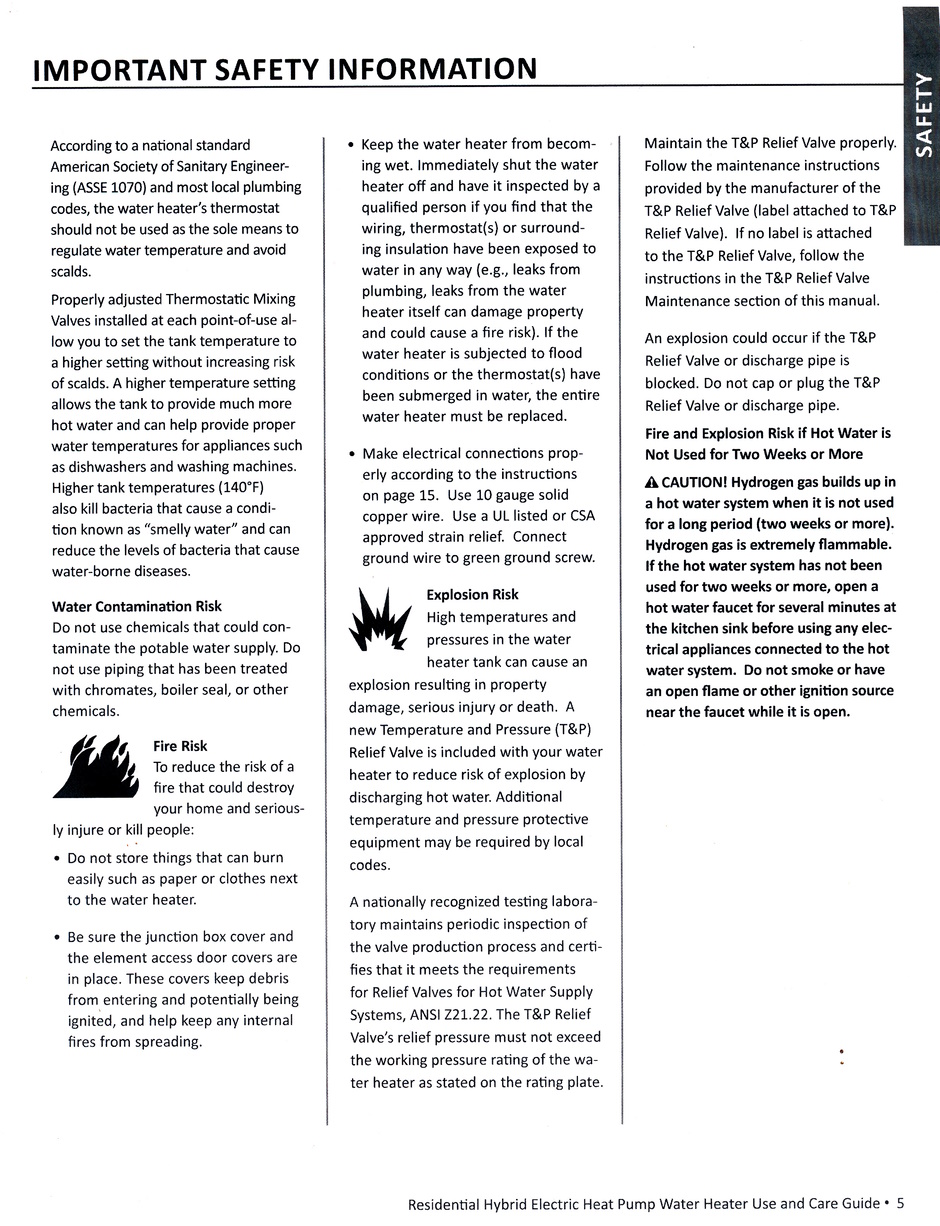
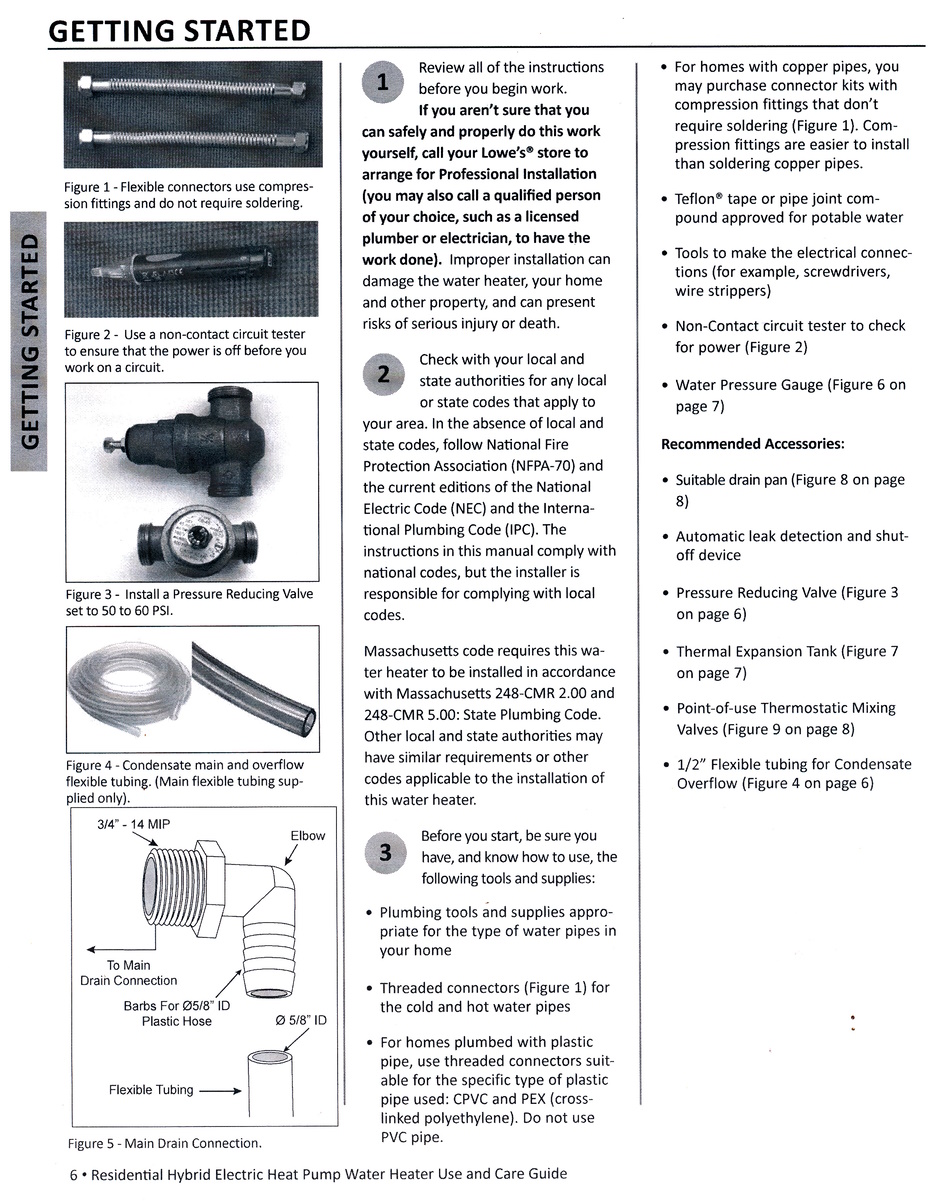
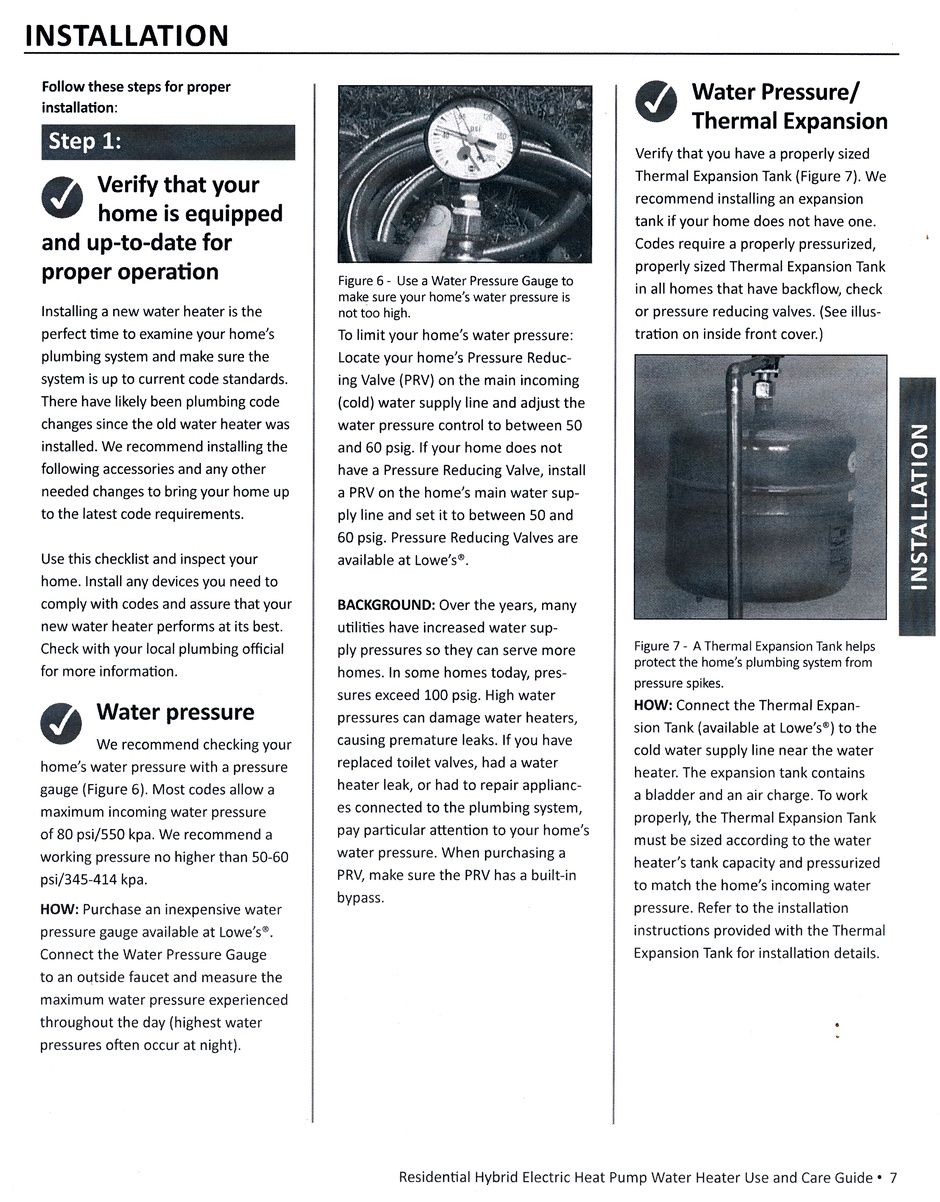
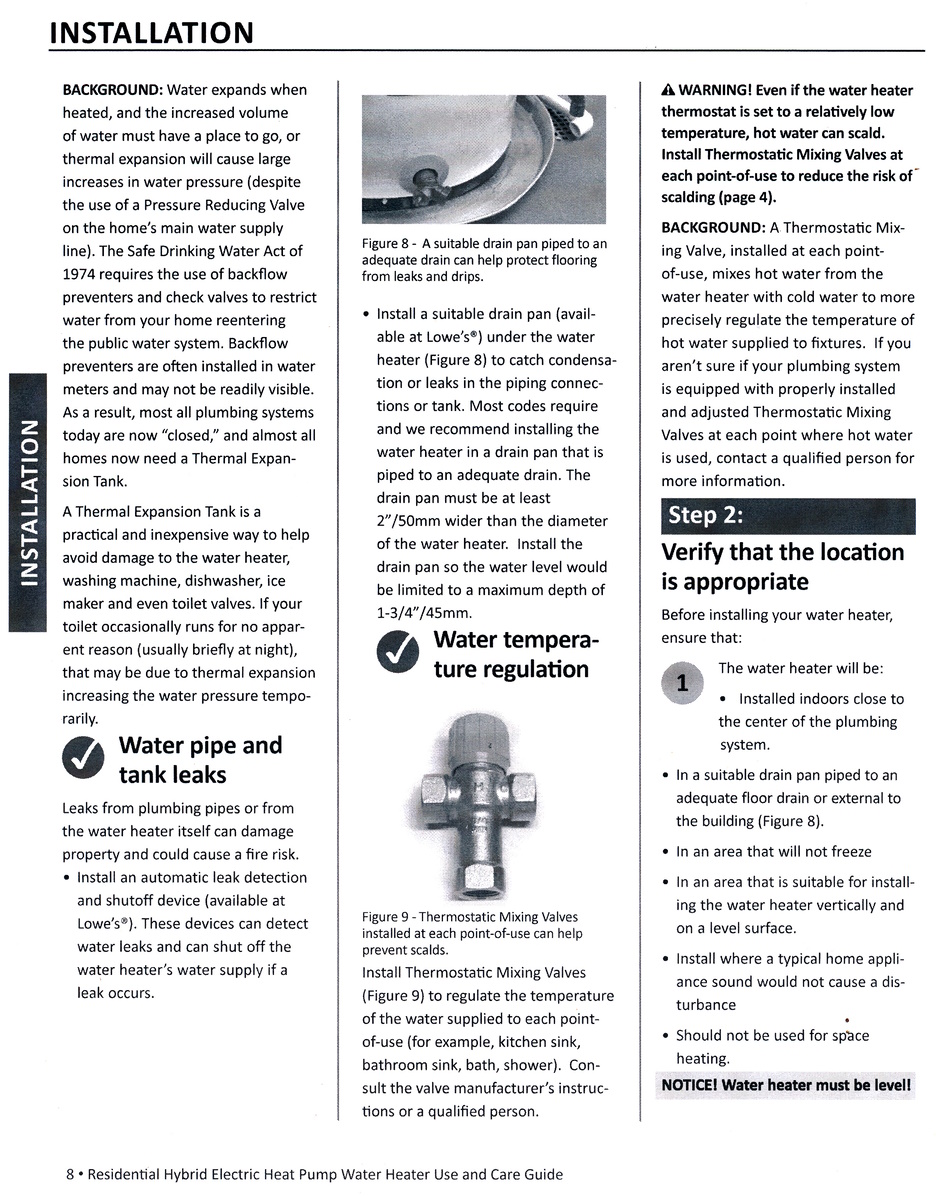
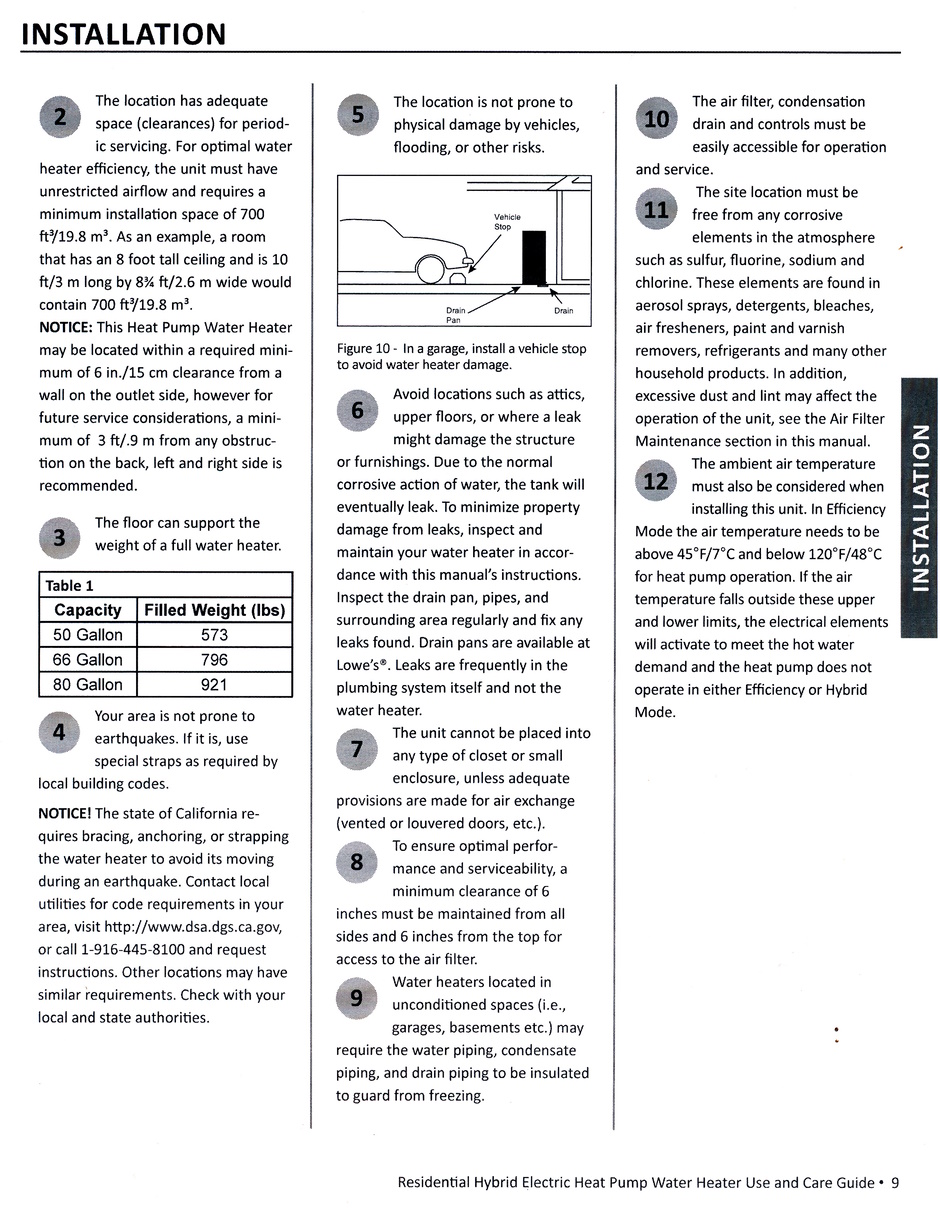
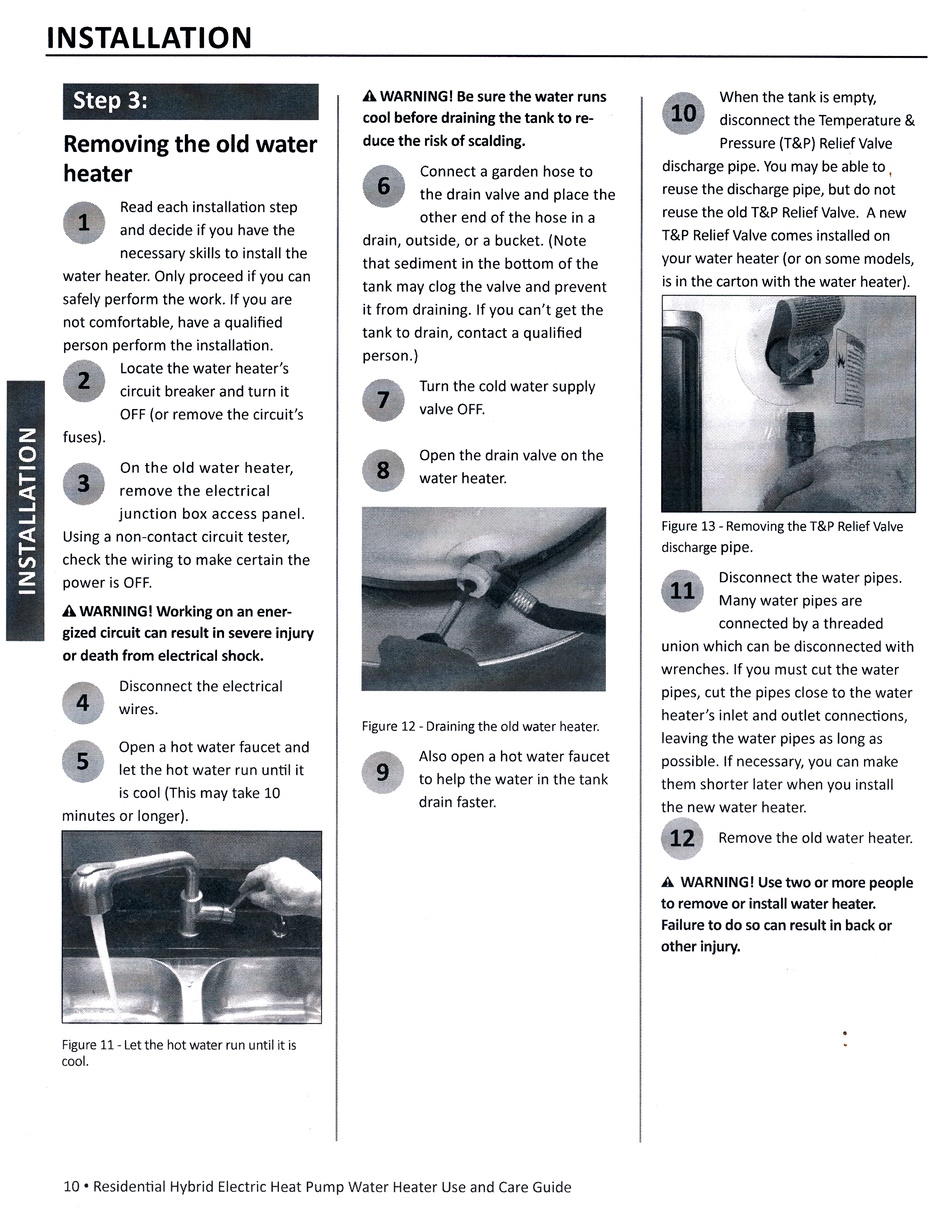
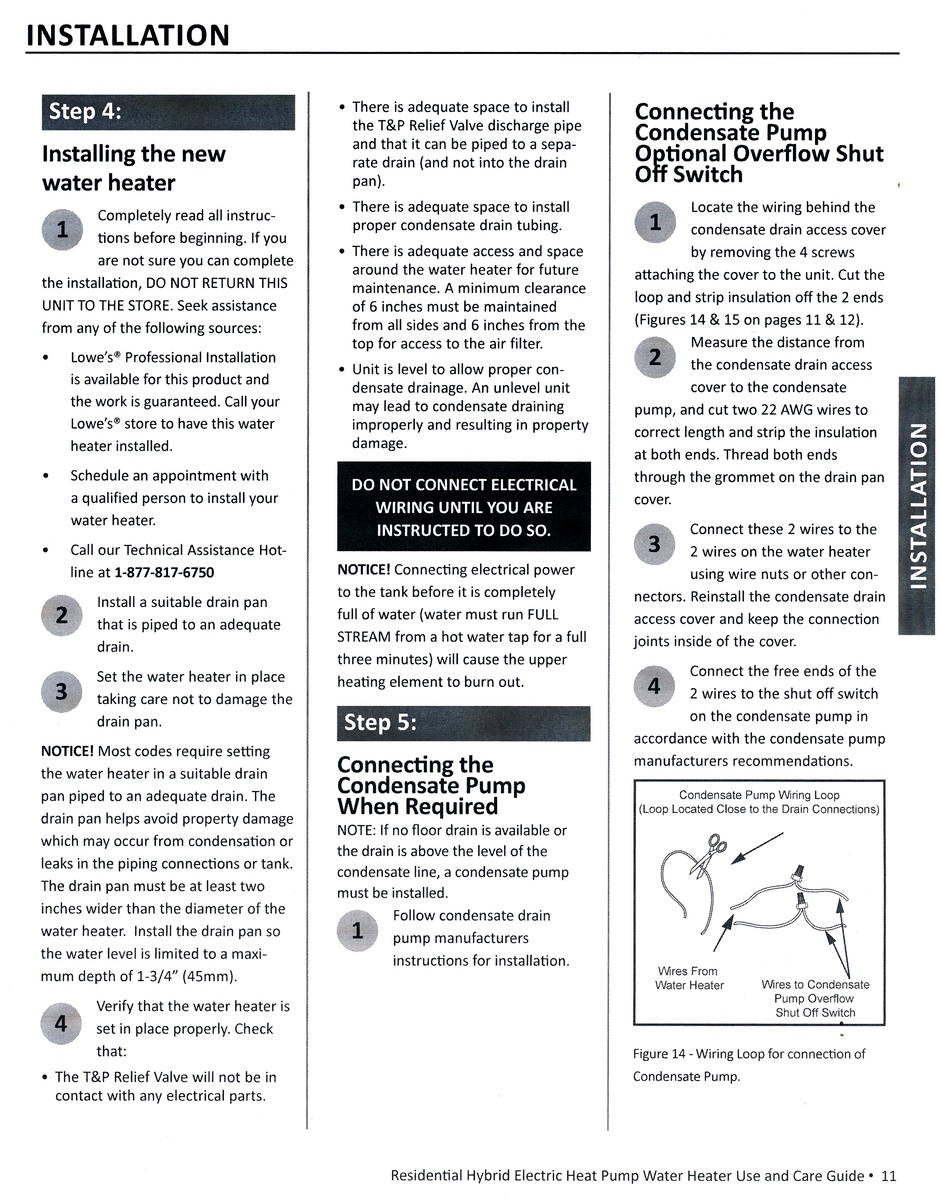
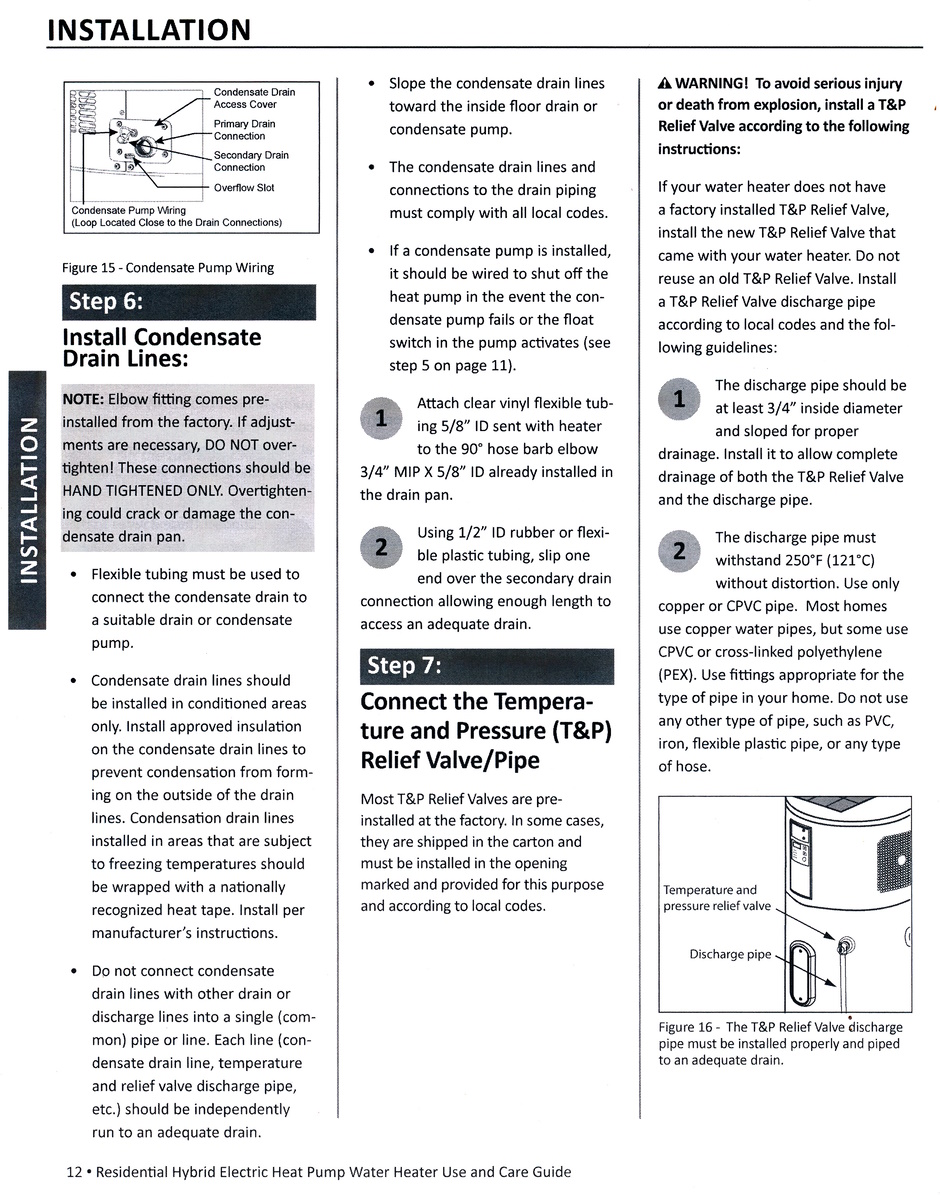
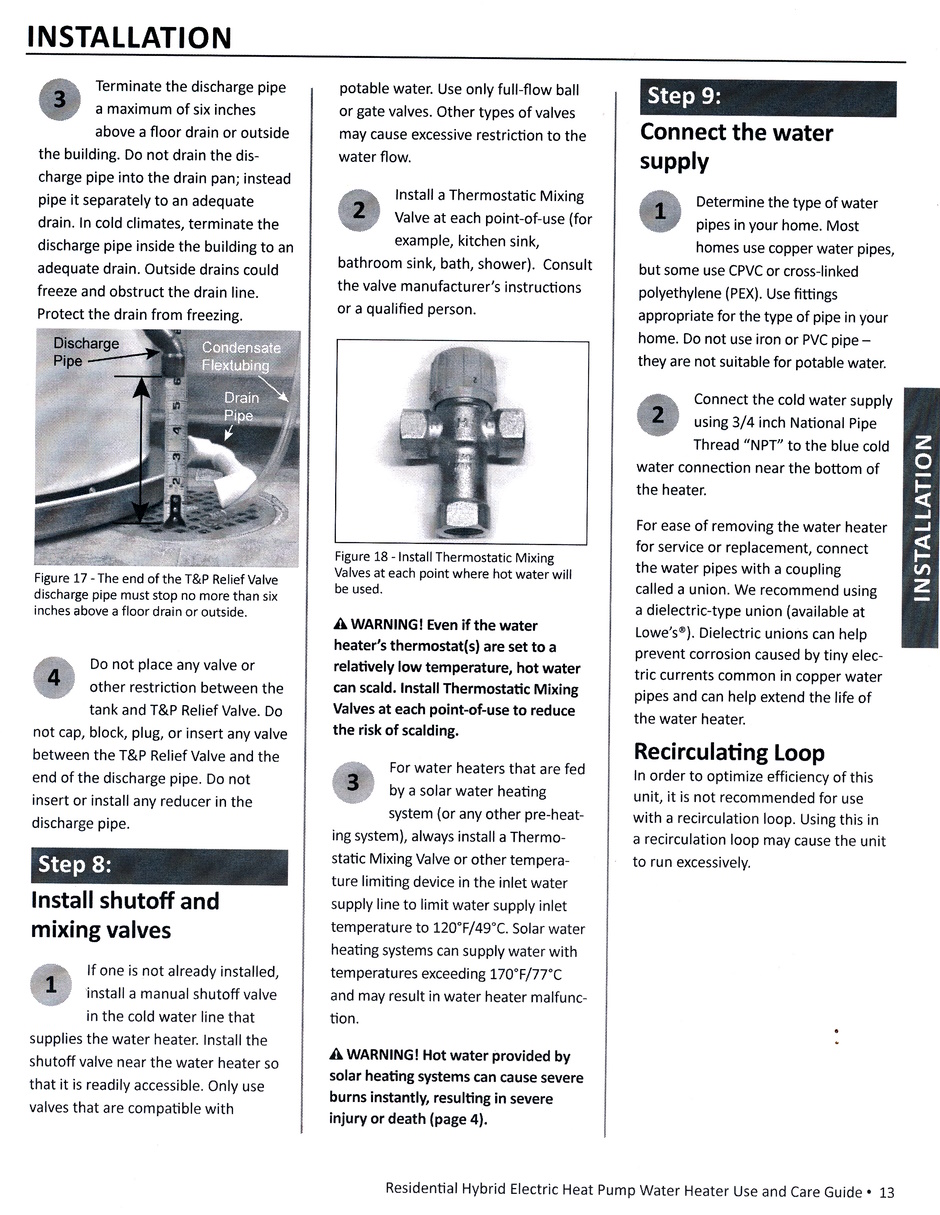
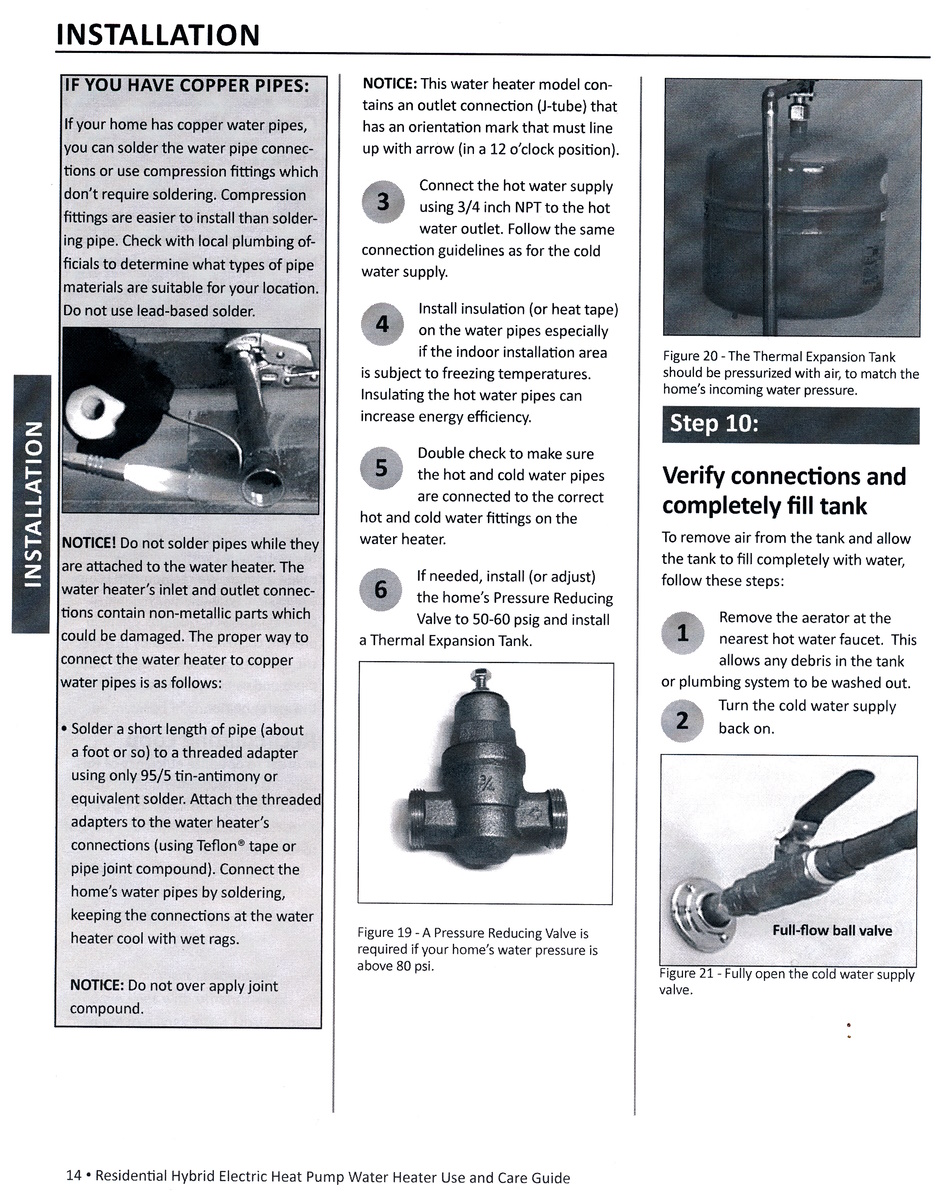
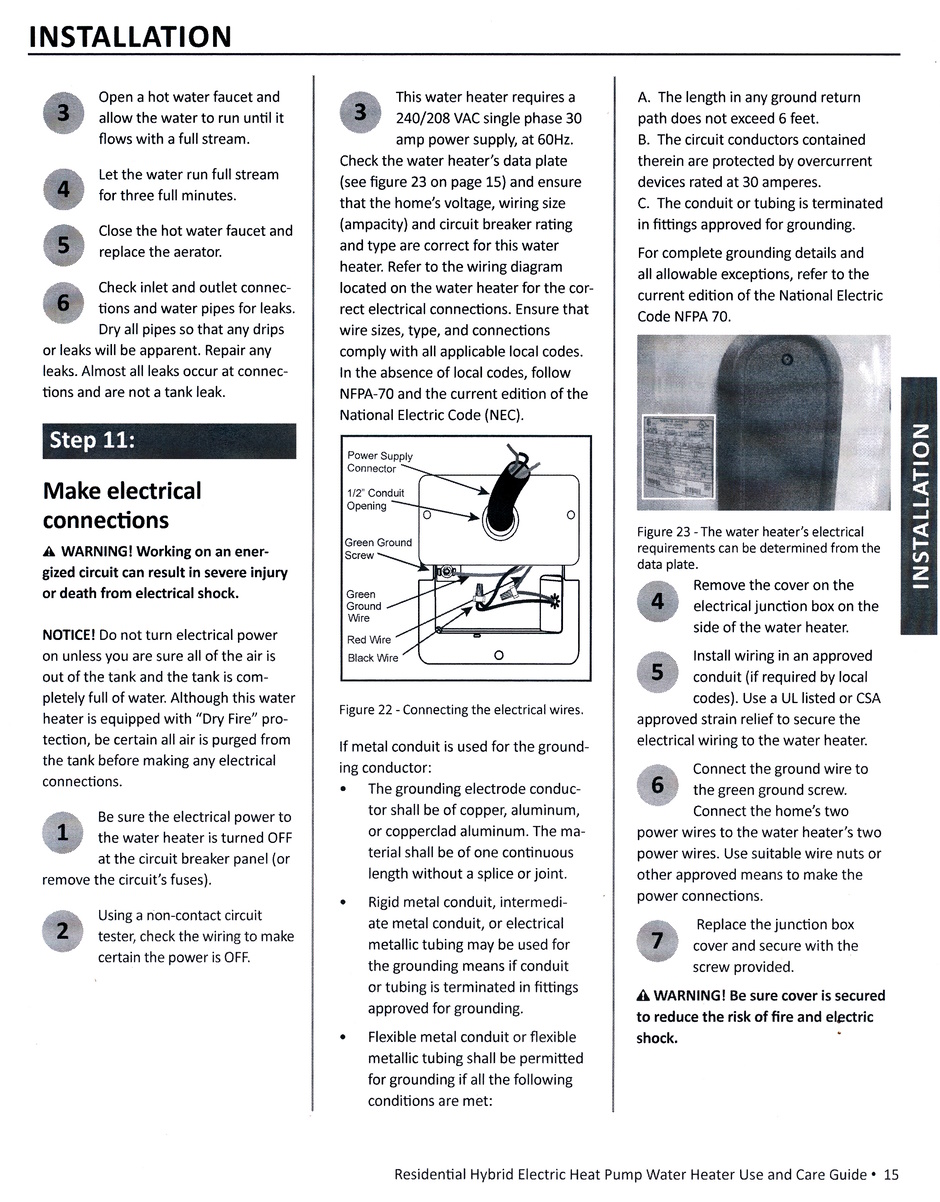
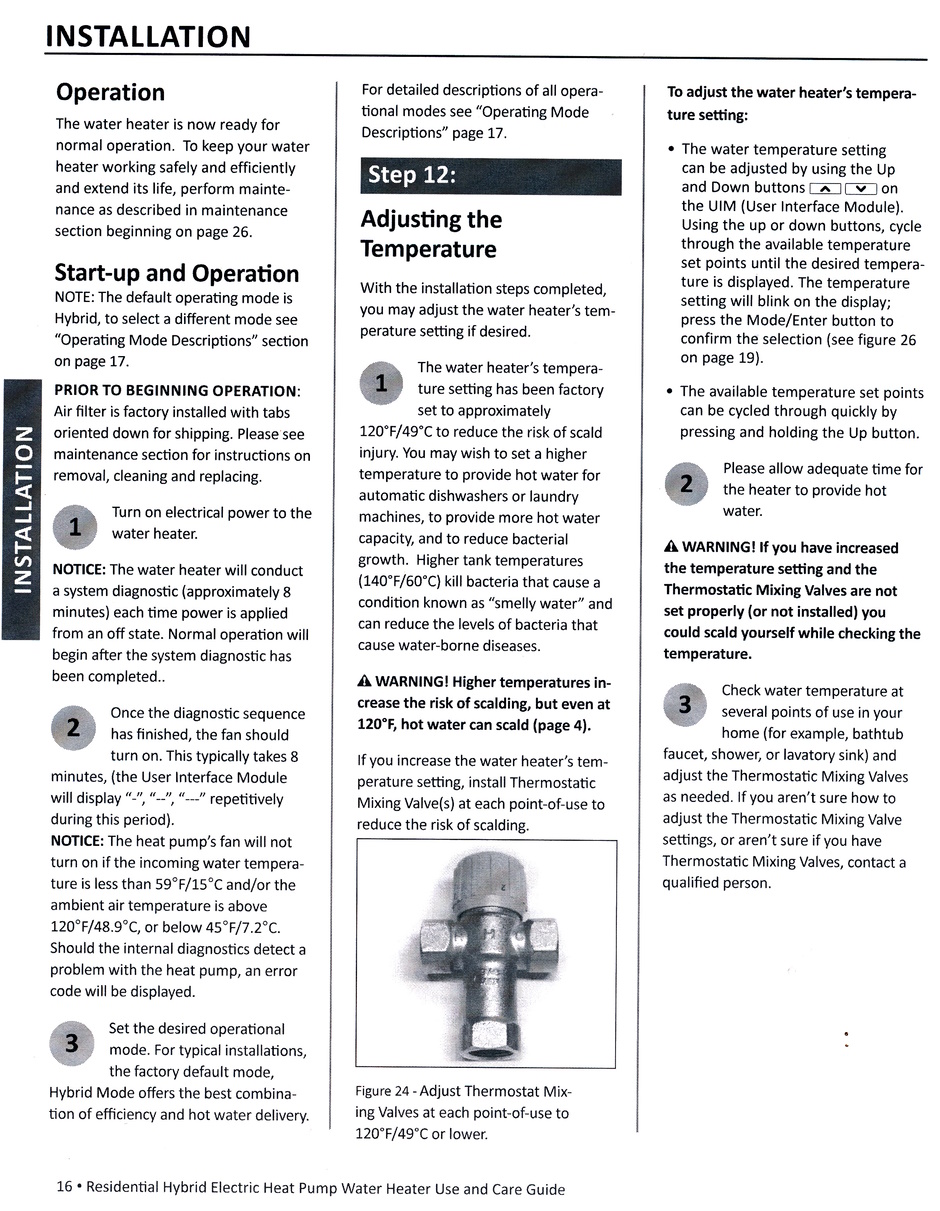
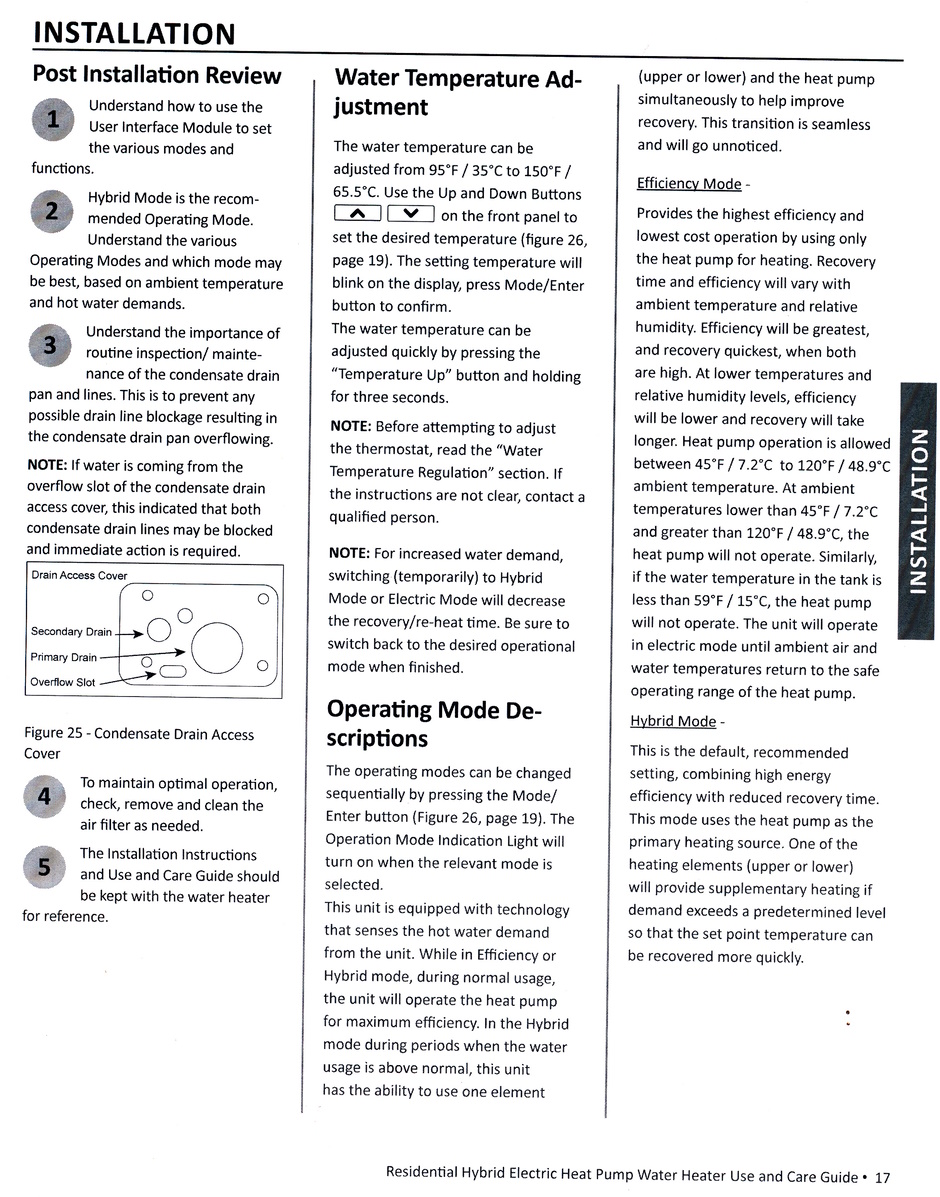
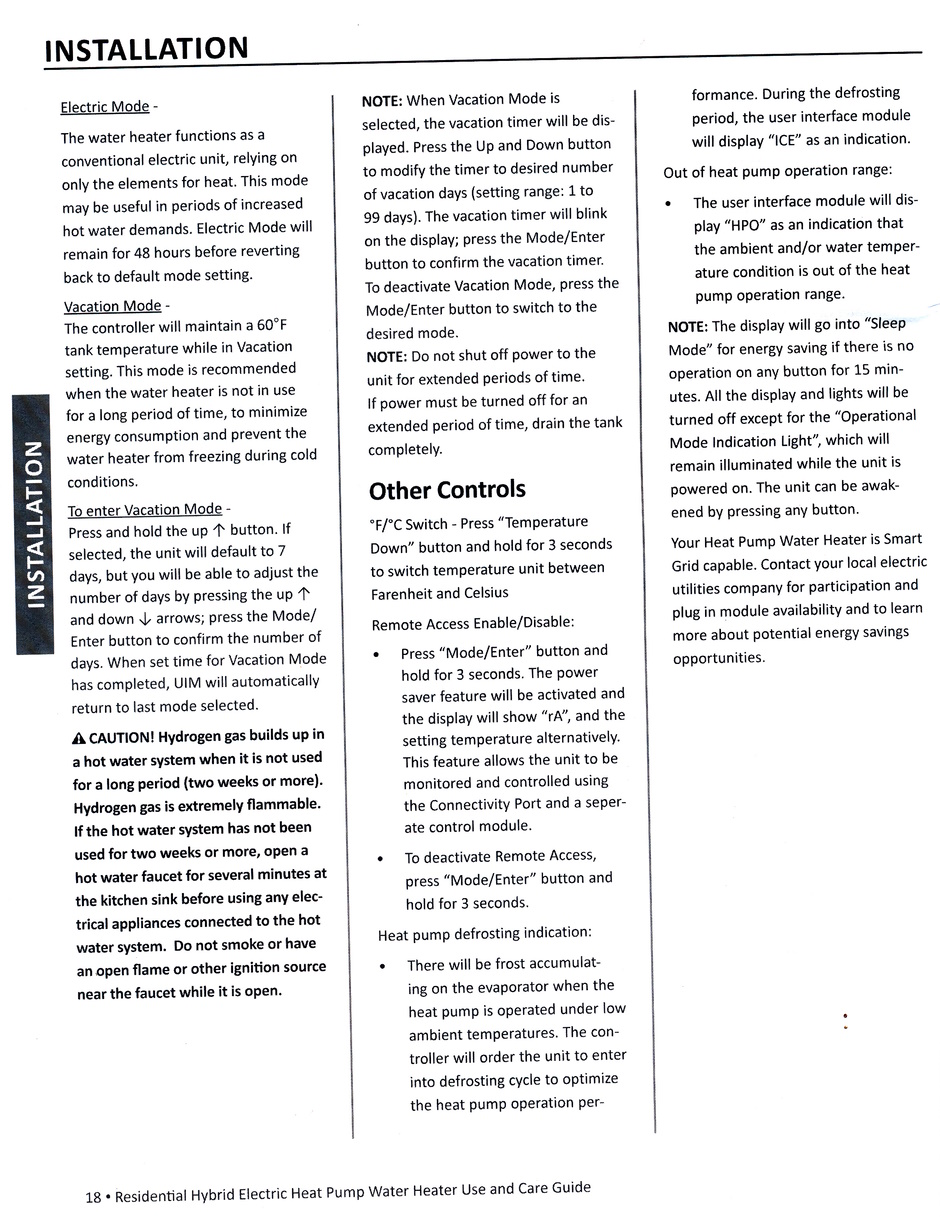
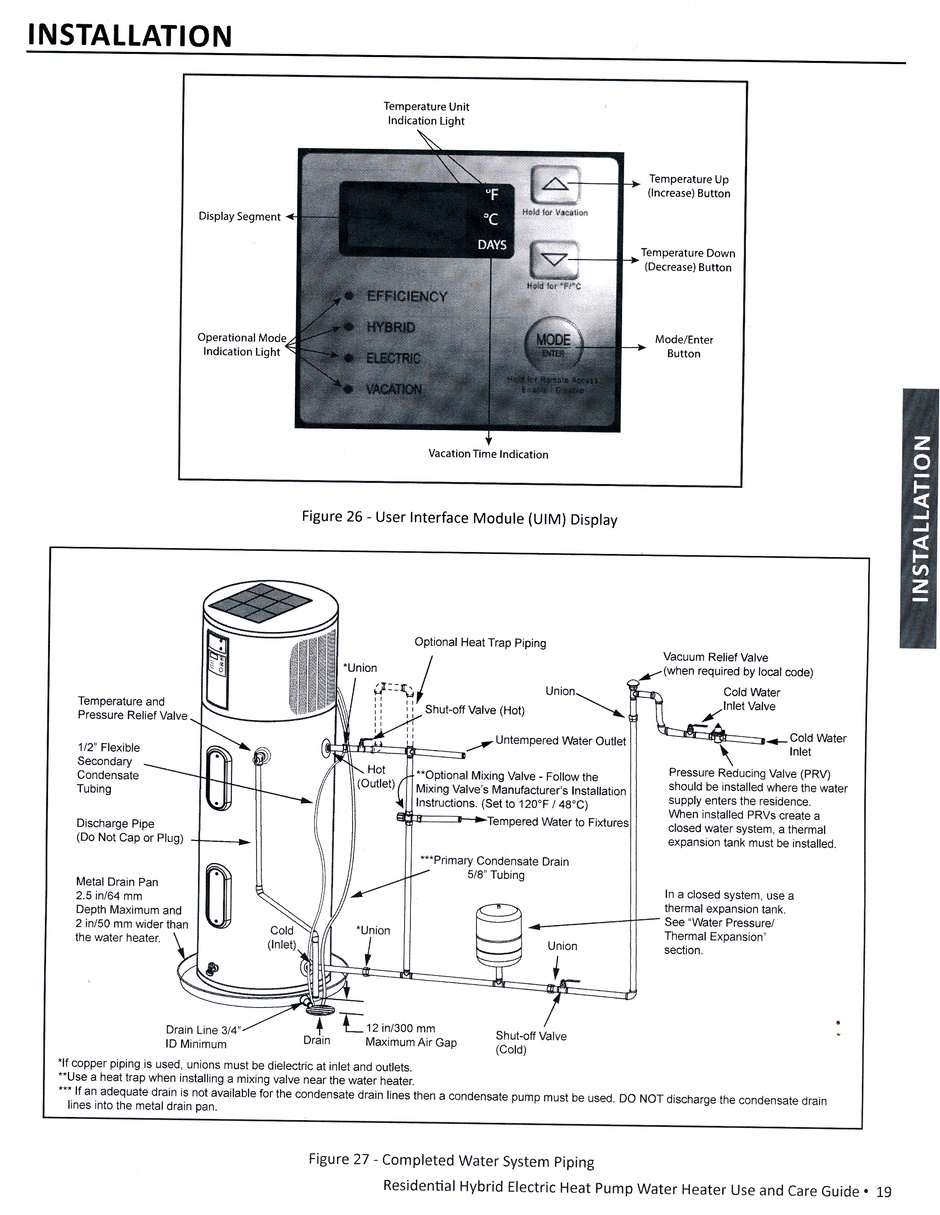
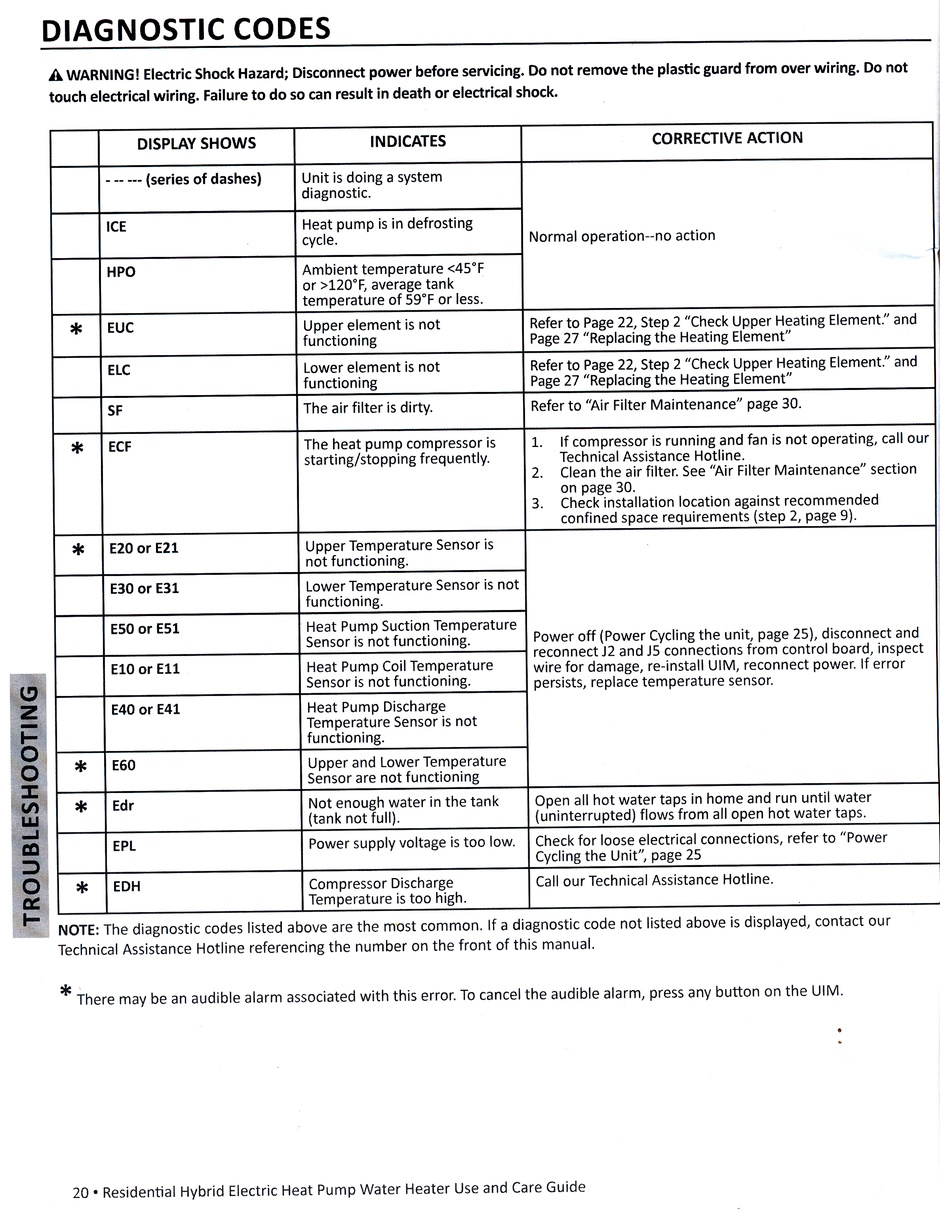
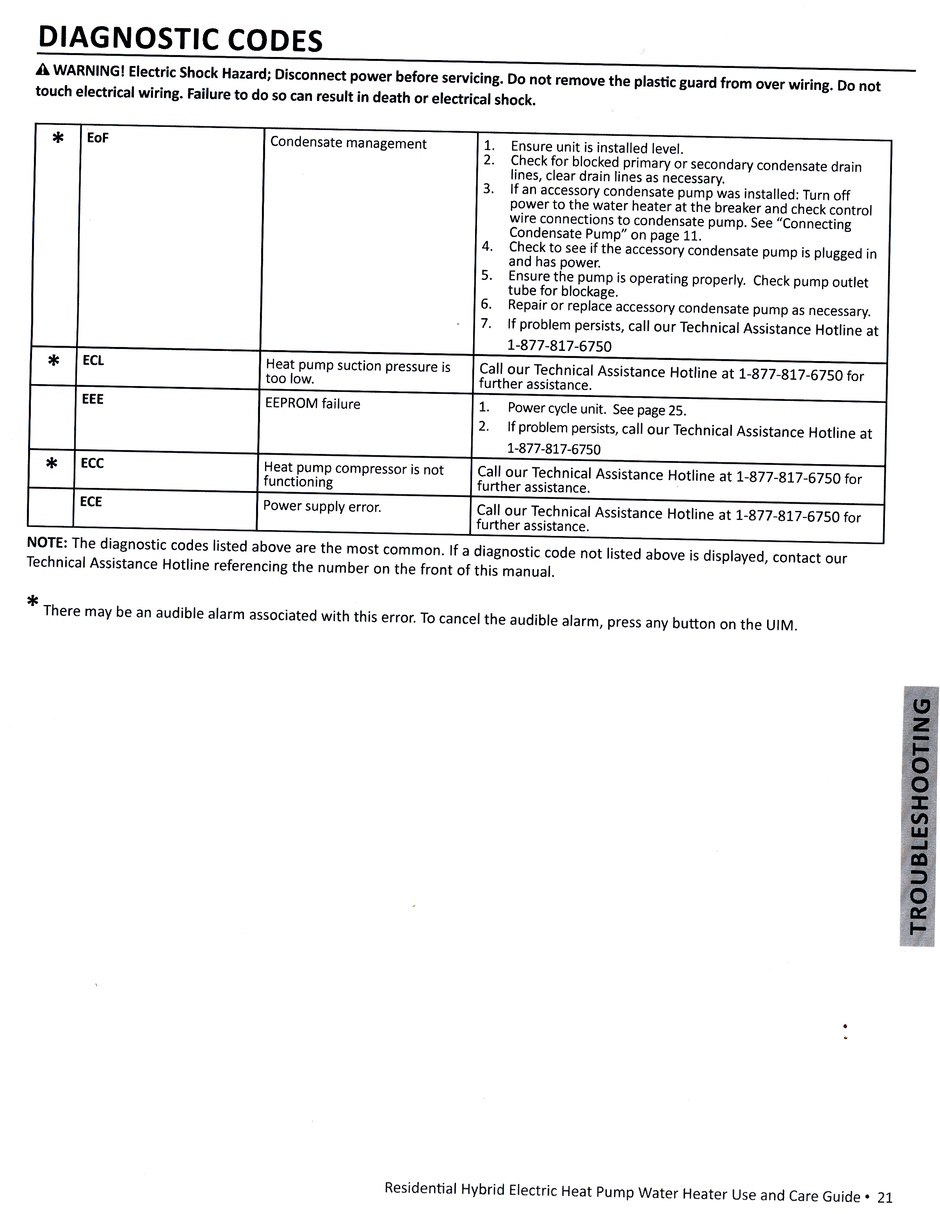
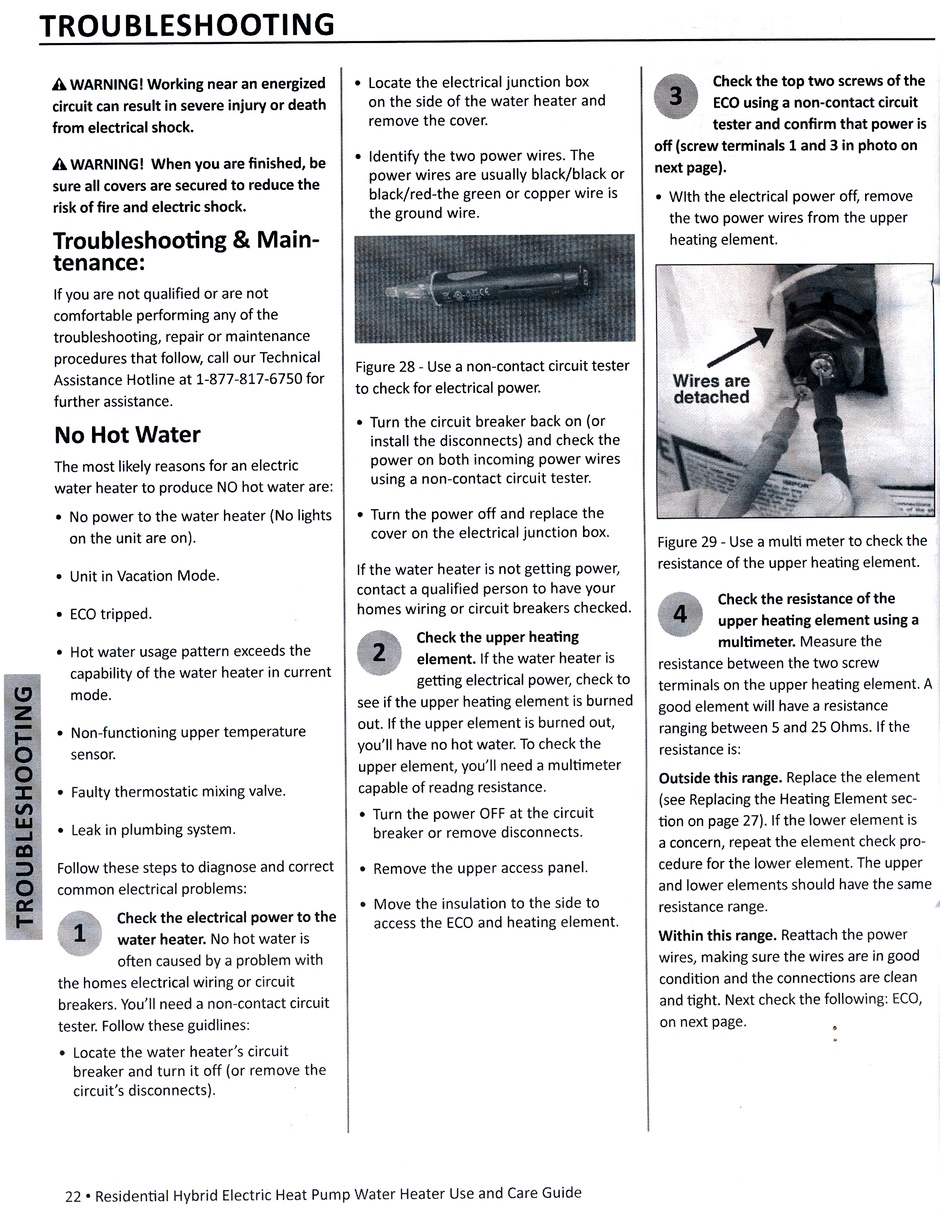
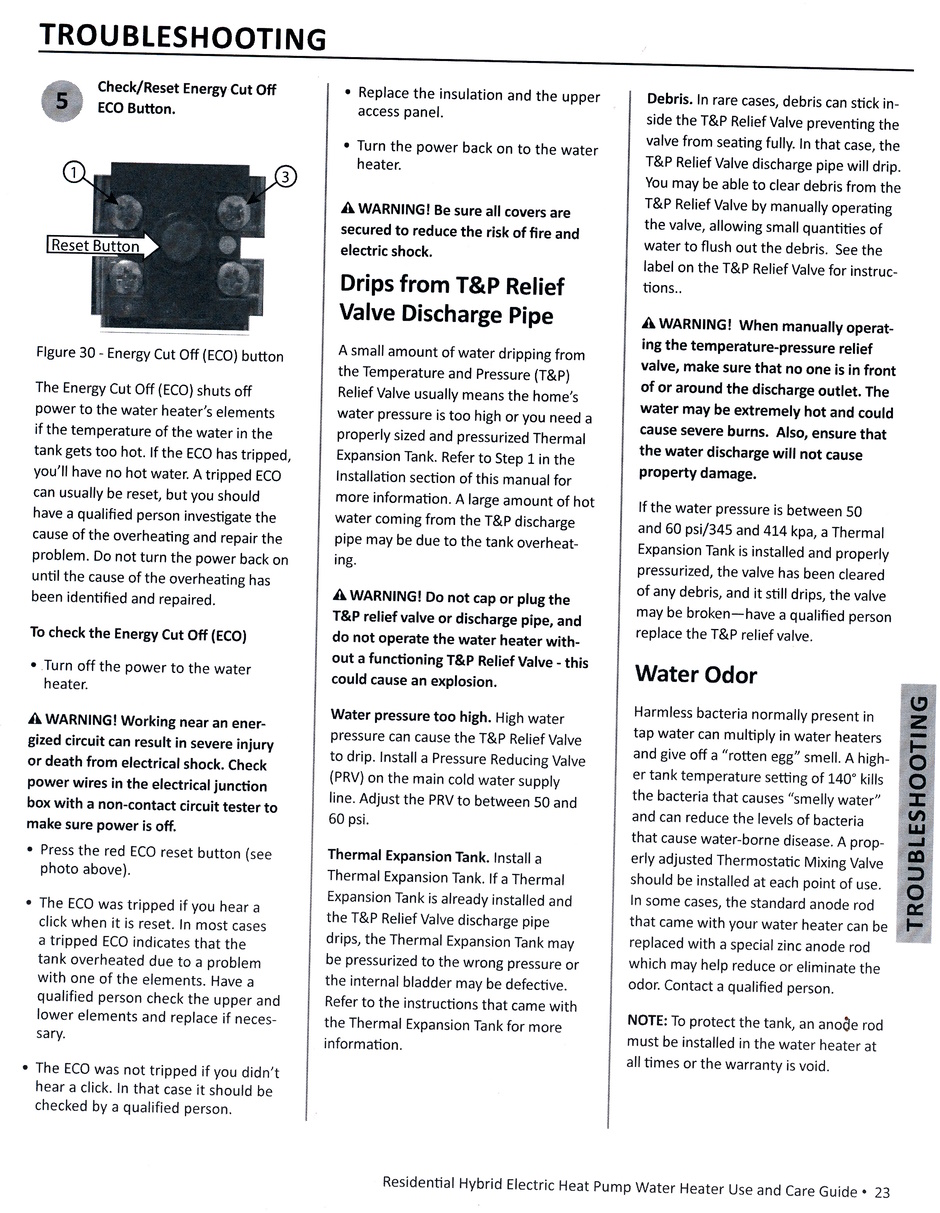
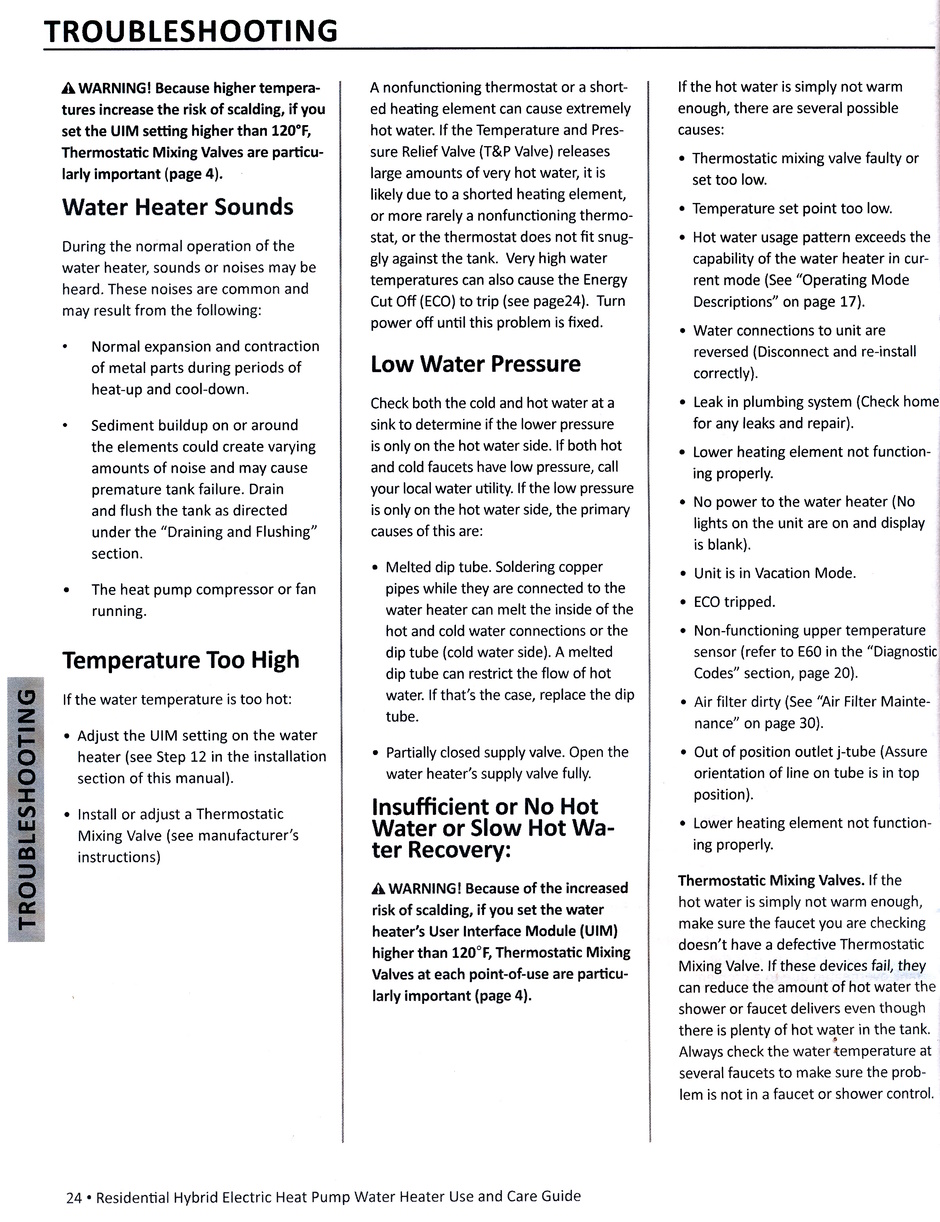
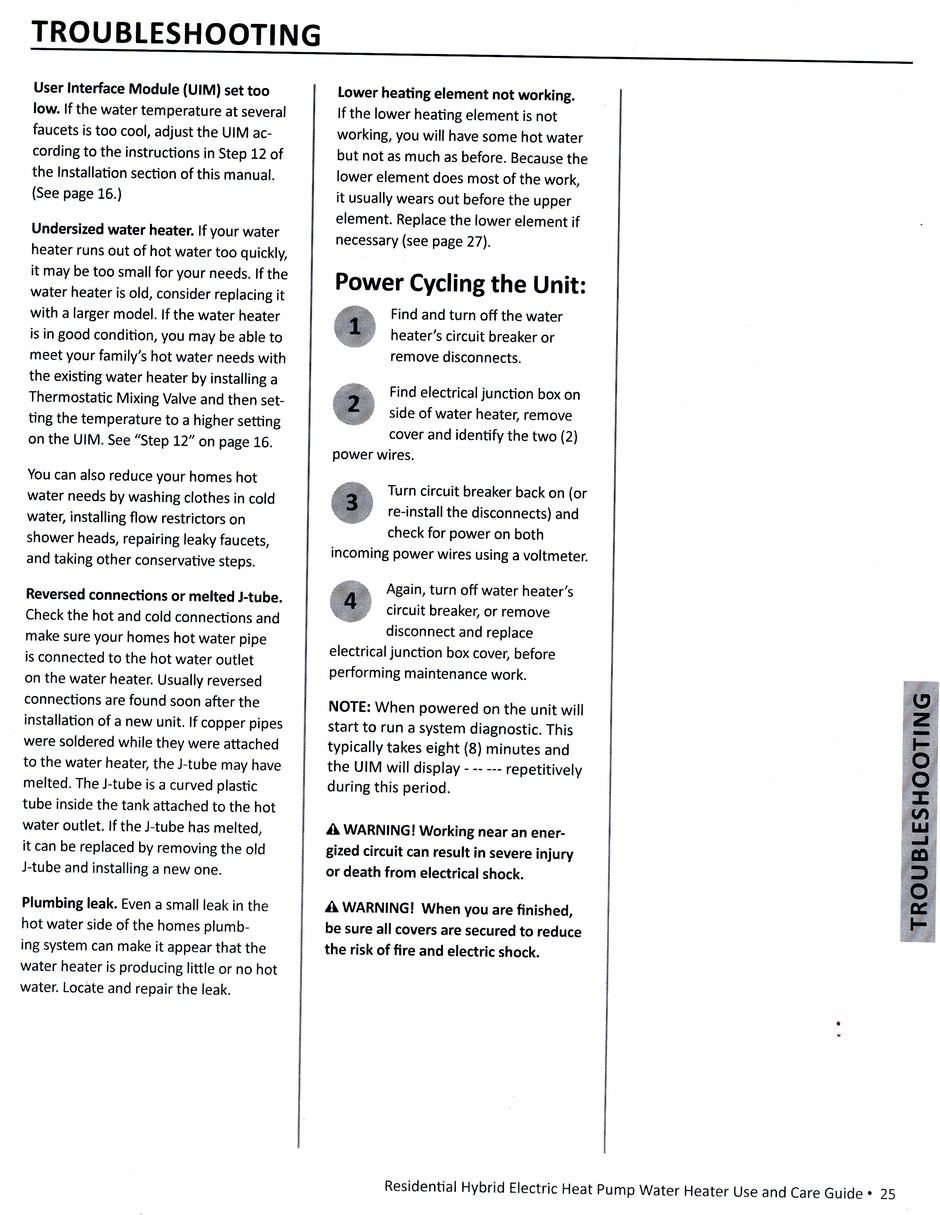
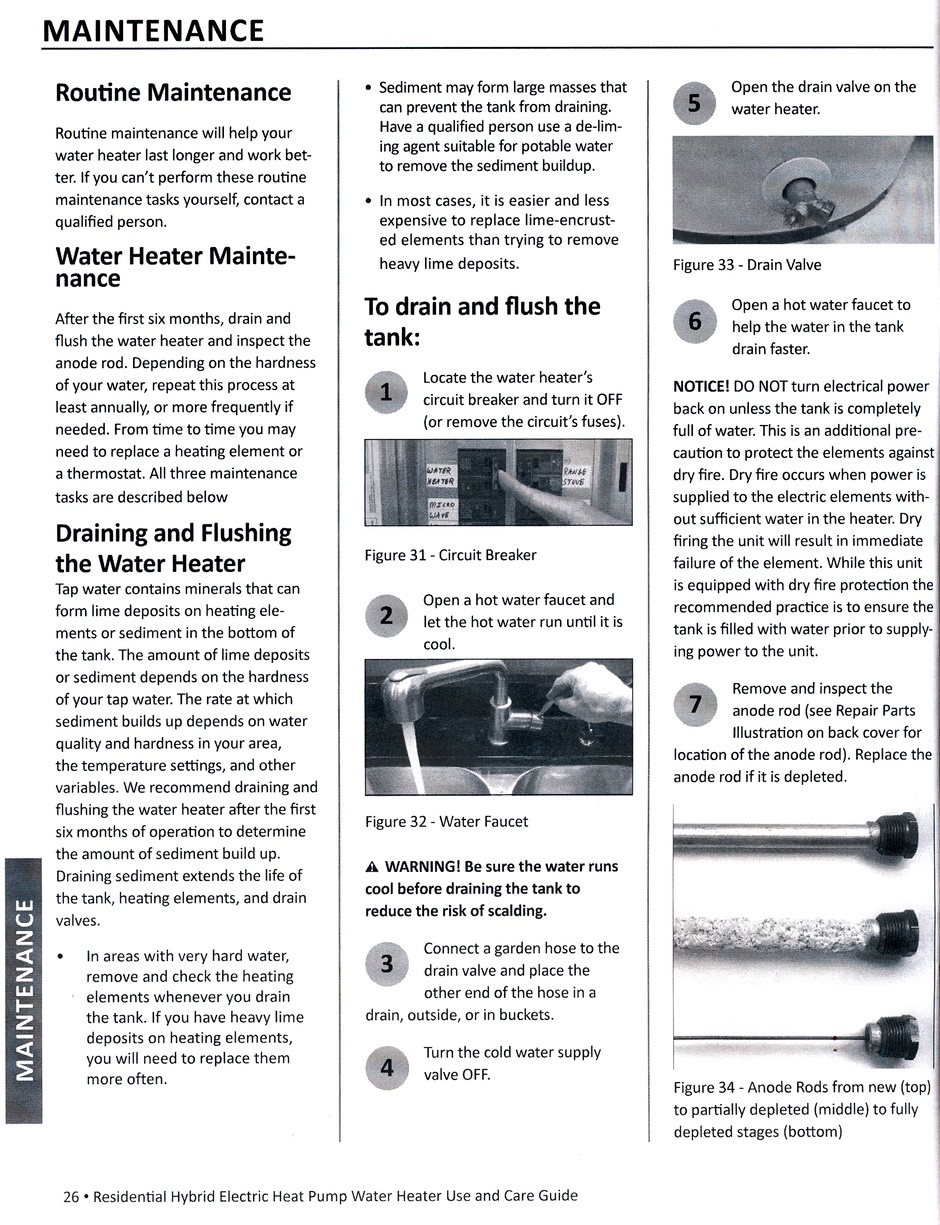
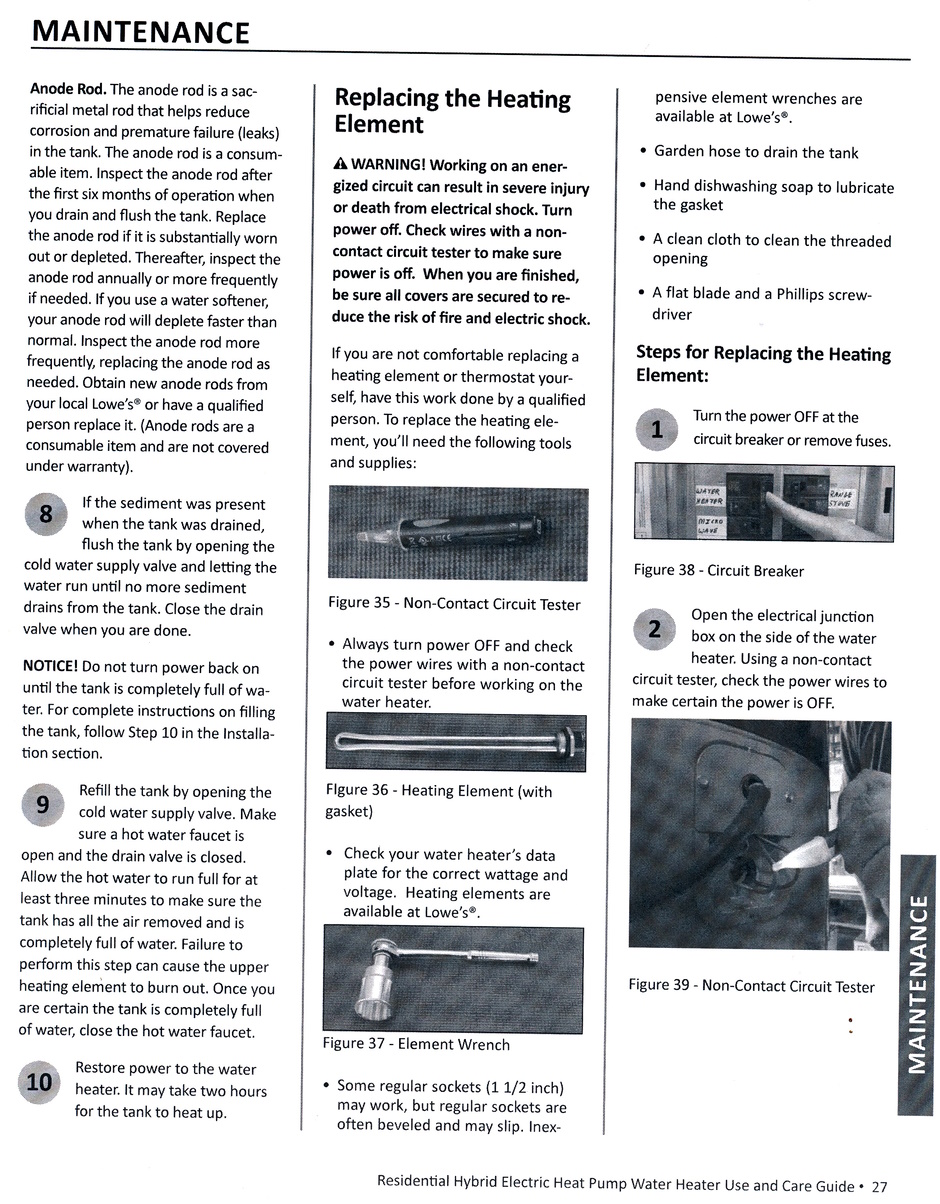
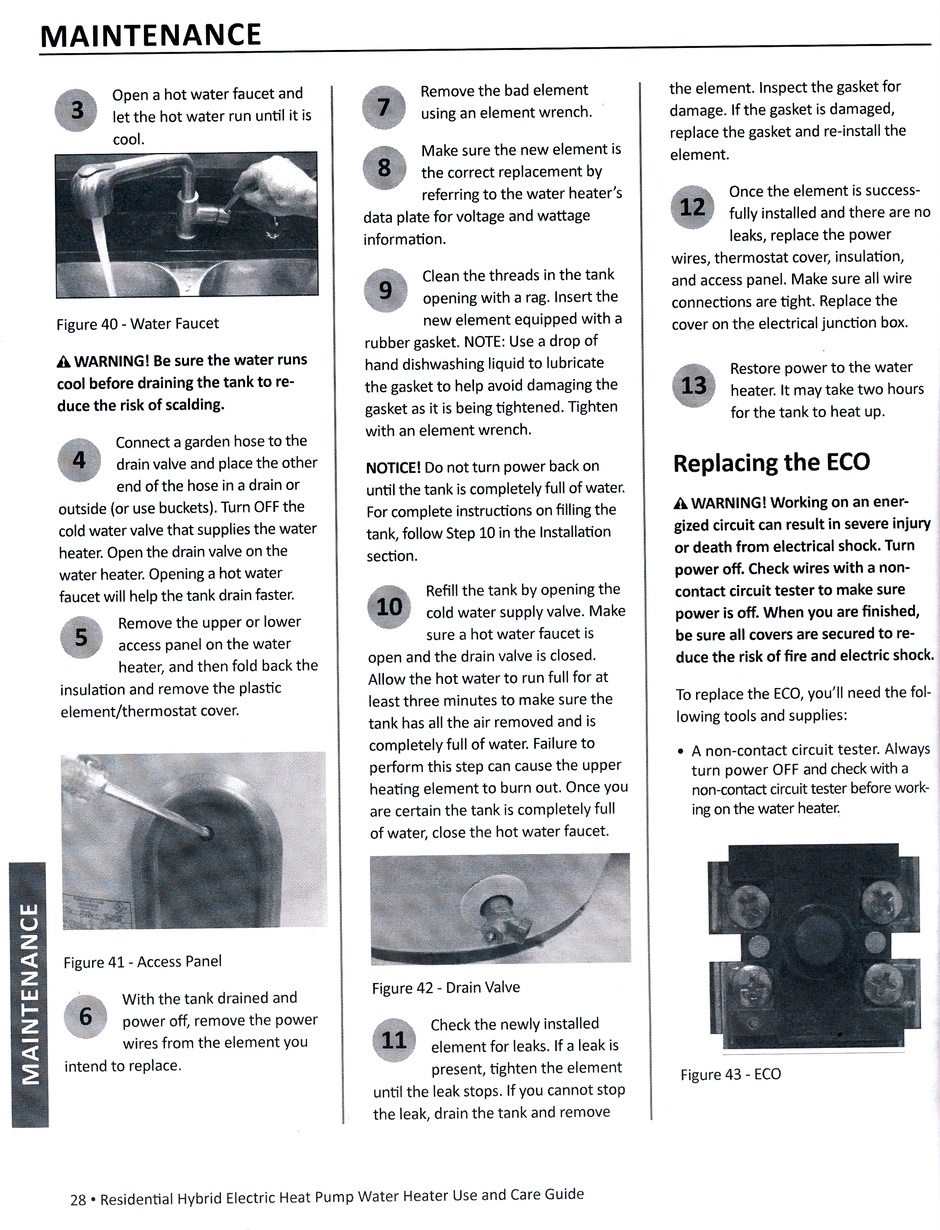
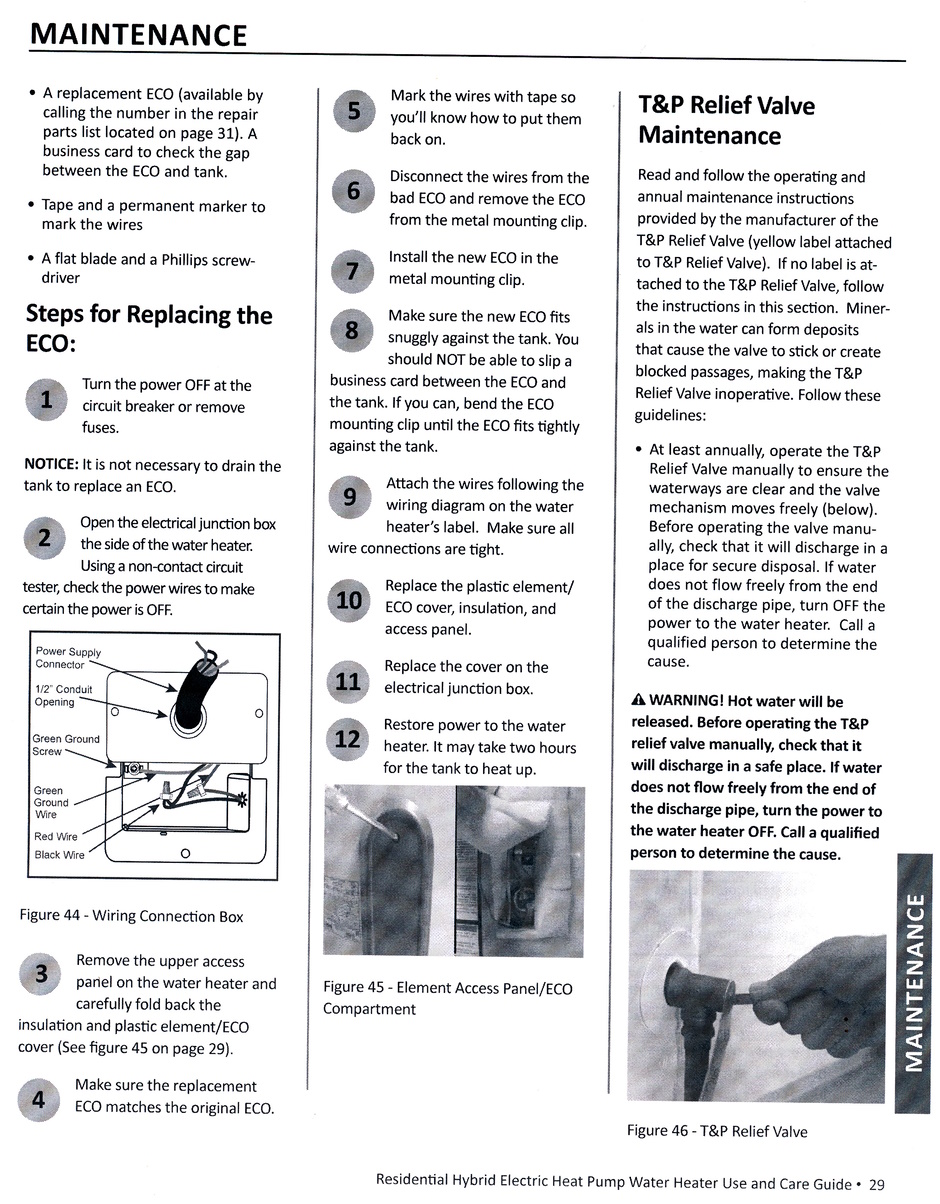
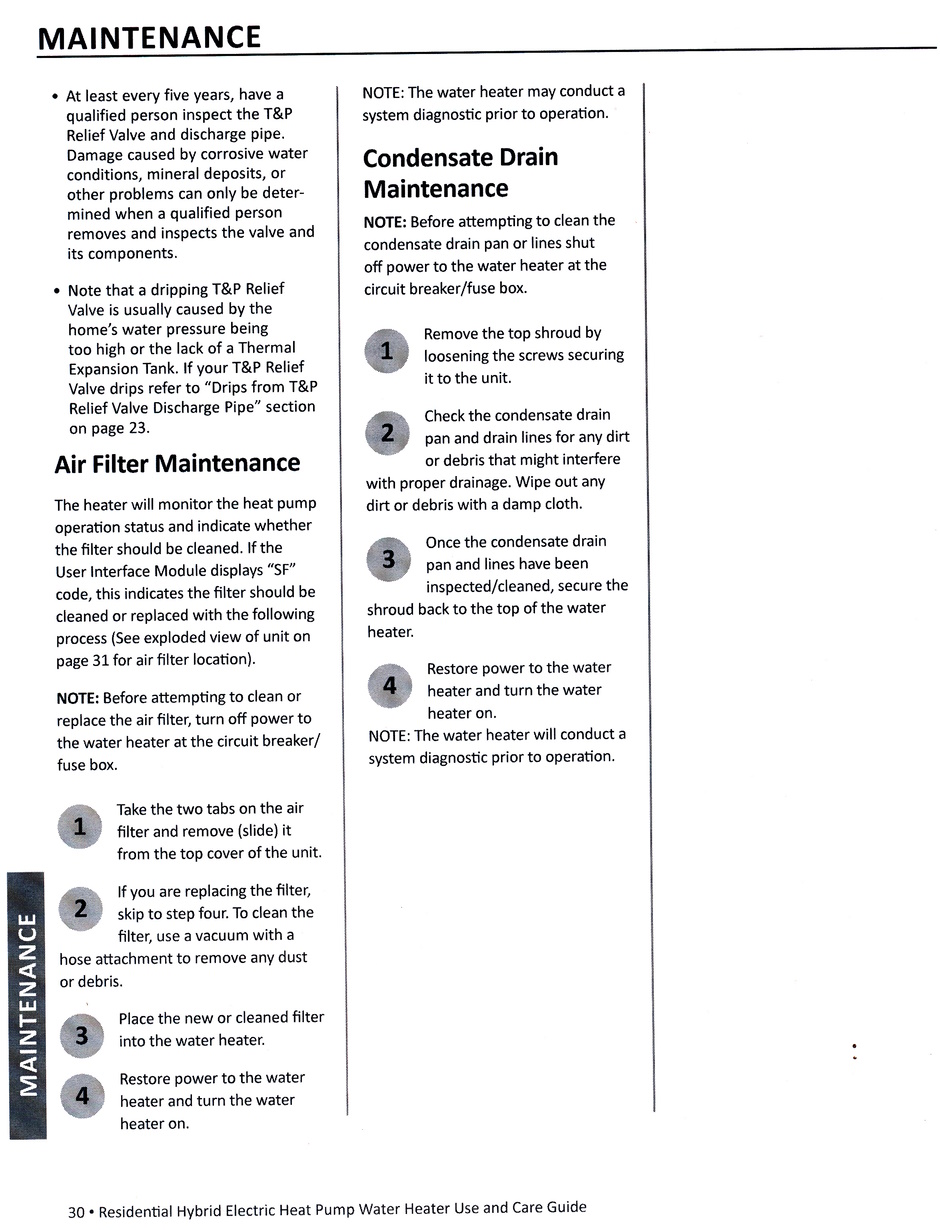
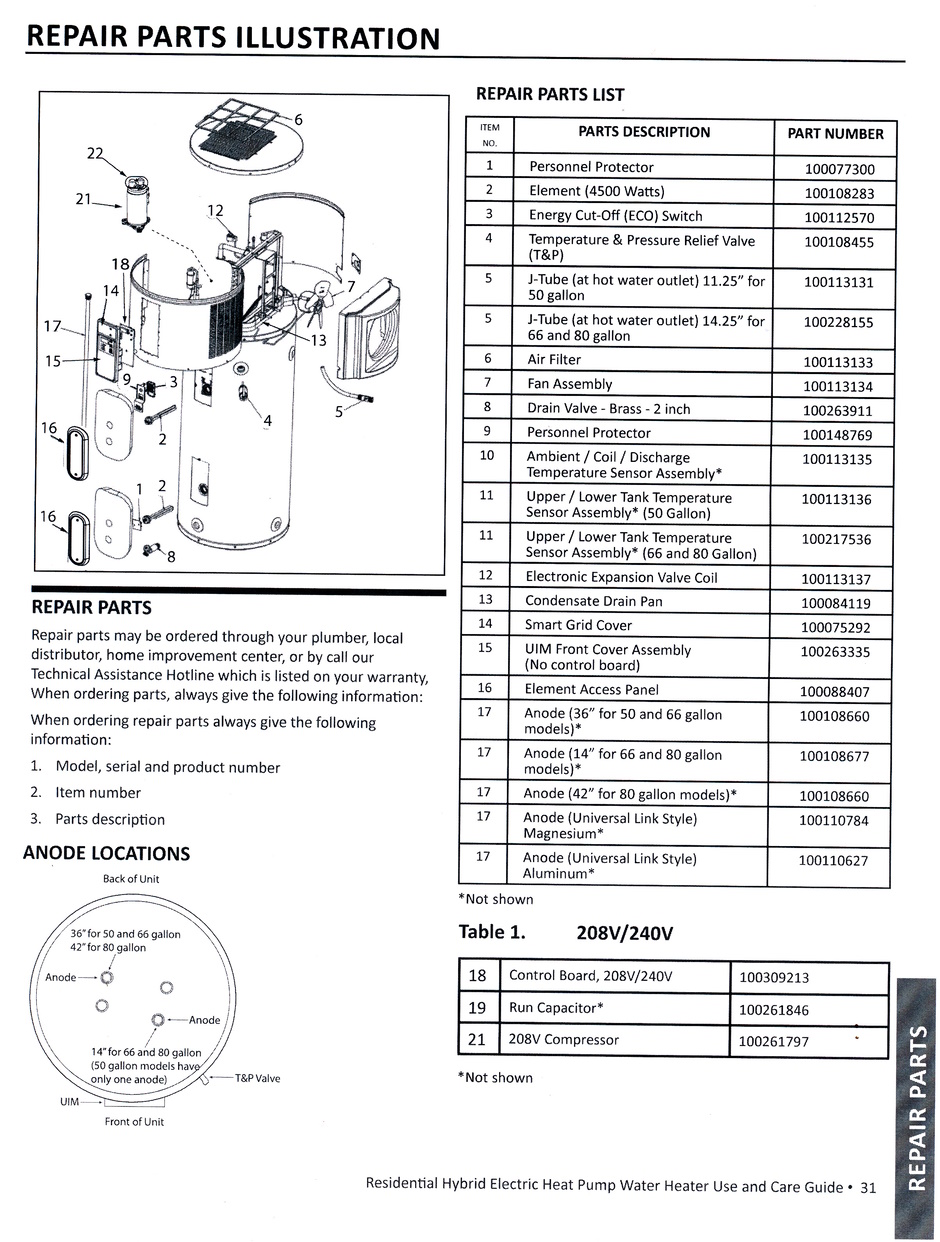

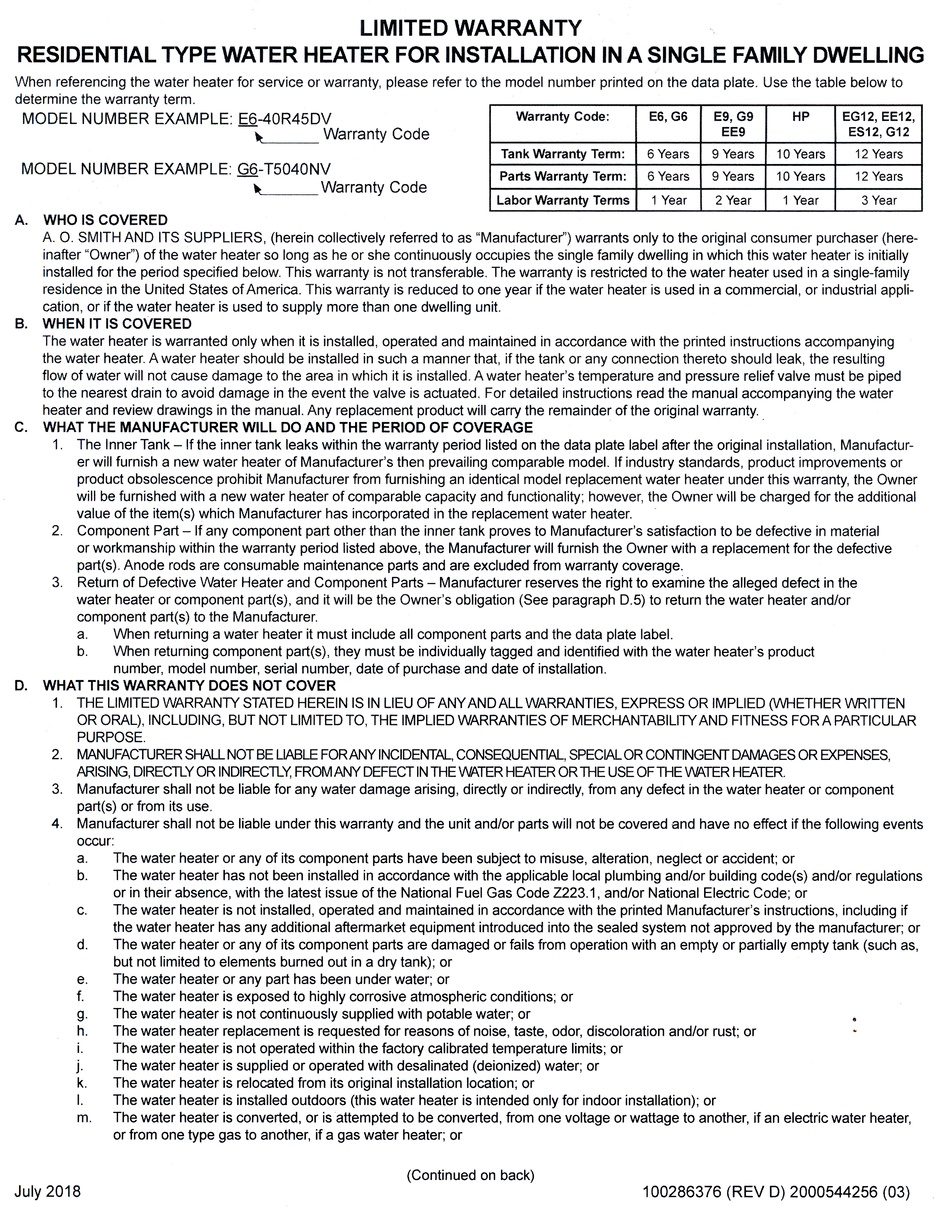
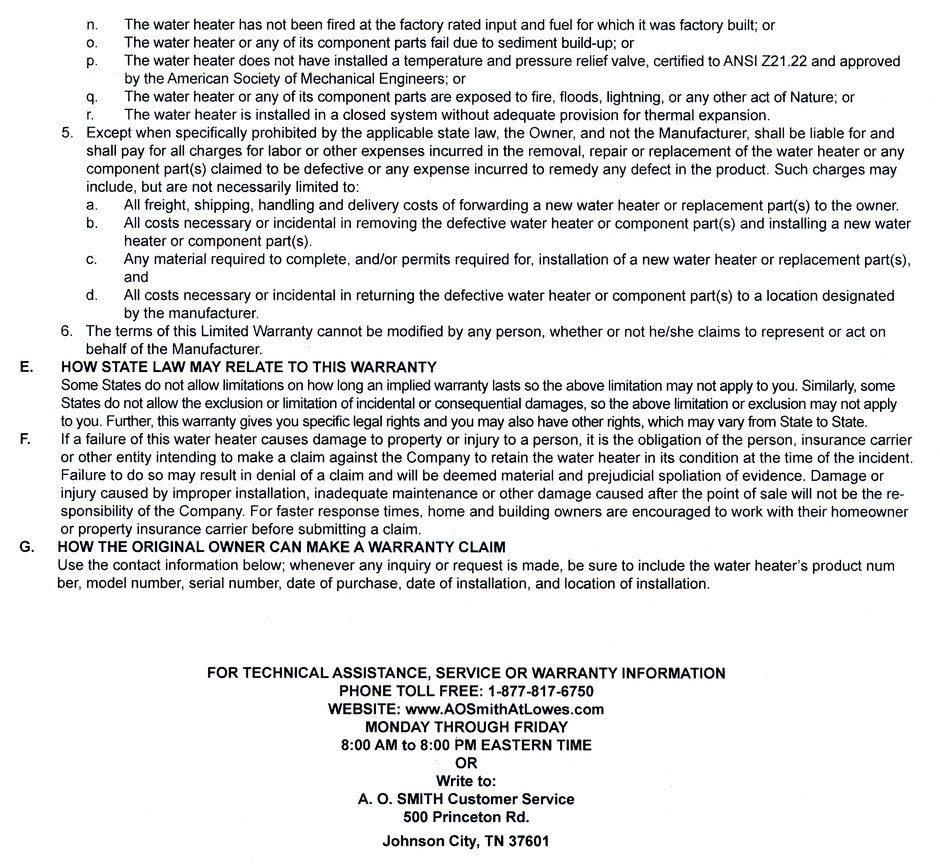
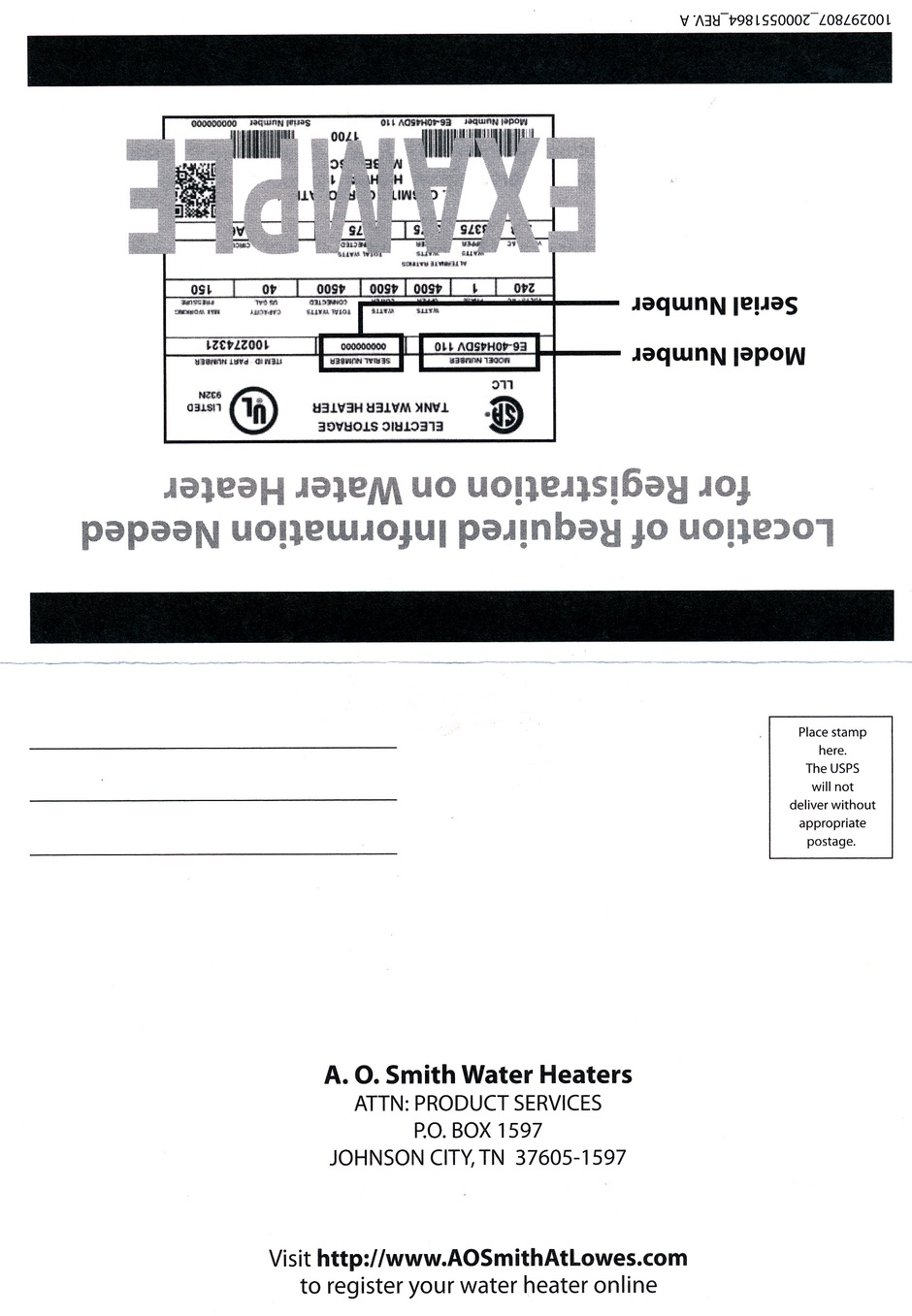
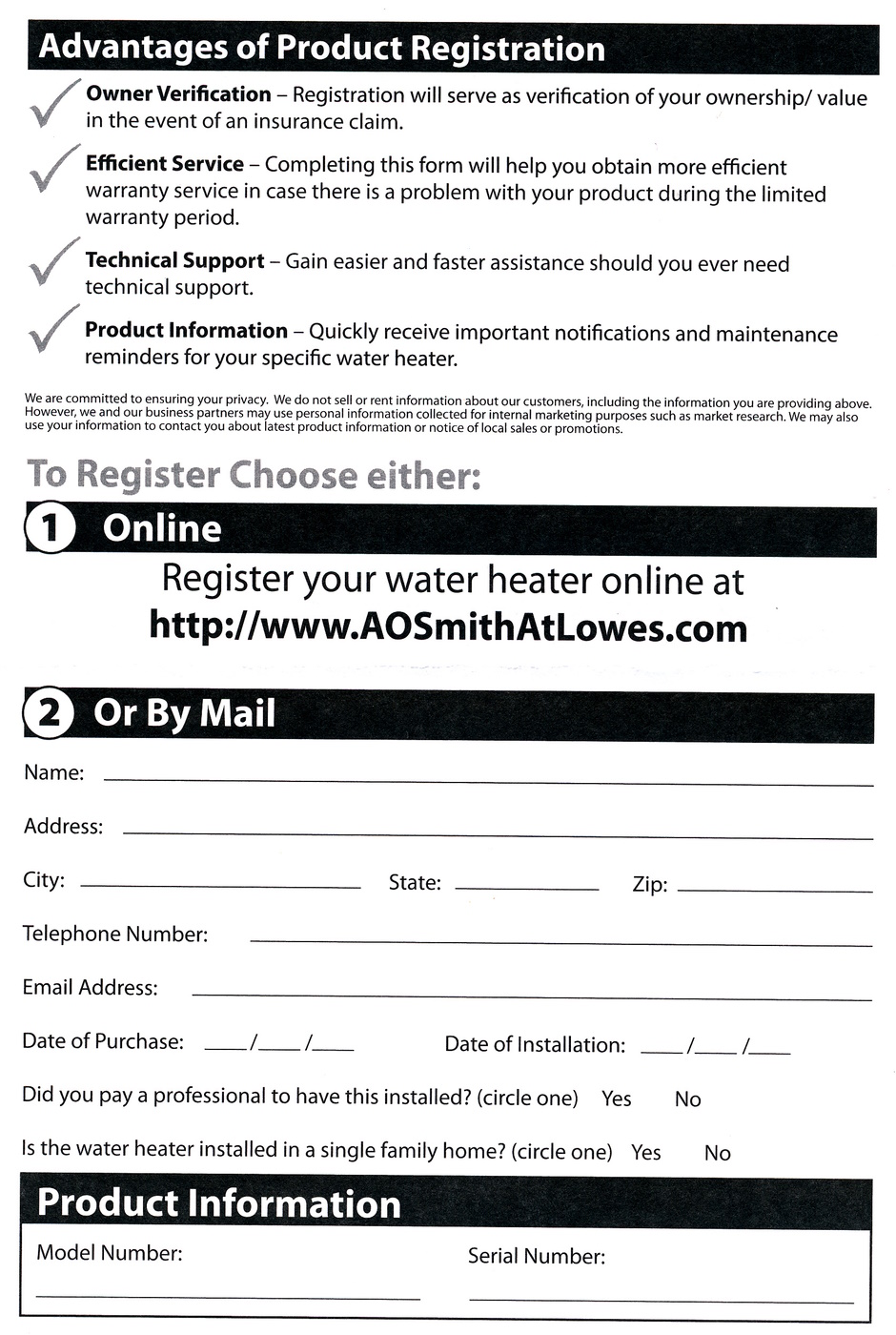
Short
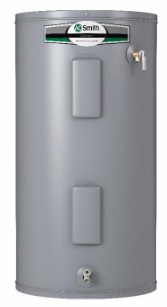
Tall
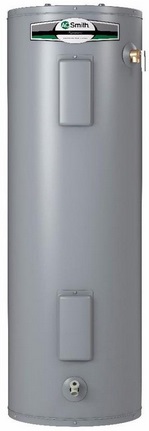
https://www.lowesforpros.com/pd/A-O-Smith-Signature-50-Gallon-Tall-6-year-Limited-Warranty-4500-Watt-Double-Element-Electric-Water-Heater/1000216817 $449 - 10% + tax.
Two elements vs single element
With a two element water heater, the upper thermostat first sends electrical energy to the upper element until the water temperature in the upper third of the tank reaches the thermostat setting. Power is then transferred to the lower element until the remaining water reaches the lower thermostat setting. If the water temperature exceeds 170°F, the high limit control switch will trip, shutting off power to the elements.
Single element water heaters have one element mounted at the bottom of the tank, controlled by a single thermostat and high limit switch.
Use two tanks
Using two tanks allows incremental buy, avoids someone using all the hot water, provides two heating elements, and provides redundancy from failure. One serves one set of bathrooms and the other serves another set. Provide shutoff valve mechanism for switching all bathrooms to one heater in case of failure. Use one Geyser heat pump to feed both water heaters.
As all the hot water distribution to the house is PEX pipe in a star configuration, I divide into two zones so that someone using massive amounts of hot water in one bathroom (family bathroom) does not deprive another bathroom (my bathroom). Connect the Geyser to tank one. The hot water from tank one feeds zone 1 (family bathrooms) and also feeds into the 'cold' inlet on tank 2. Zone 2 (my bathroom) is fed from the hot outlet on tank 2. Geyser have approved this configuration.
Expansion tank
Connect the Thermal Expansion Tank to the cold water supply line near the water heater. The expansion tank contains a bladder and an air charge. To work properly, the Thermal Expansion Tank must be sized according to the water heater’s tank capacity and pressurized to match the home’s incoming water pressure.
Water expands when heated, and the increased volume of water must have a place to go, or thermal expansion will cause large increases in water pressure. Most plumbing systems today are “closed,” and almost all homes now need a Thermal Expansion Tank. A Thermal Expansion Tank is a practical and inexpensive way to help avoid damage to the water heater, washing machine, dishwasher, ice maker and even toilet valves. If your toilet occasionally runs for no apparent reason (usually briefly at night), that may be due to thermal expansion increasing the water pressure temporarily.
Note that if your house is fed from a well then there is already a pressure tank and this can in practice handle any increase in cold water pressure caused by water expansion as water is heated. I decided not to install an expansion tank, but it is possible that a building inspector may require one to be installed next to the hot water heater.
Having a good sized pressure expansion tank will help the sprinkler system work well (if you use 2" PVC pipe between the two systems).
